Mandalay - 2010
We had a 30 minute flight from Yangon to Mandalay.
Before checking into our hotel we had a cruise on the Irrawaddy River.
The Ayeyarwady River is the major river and most important commercial waterway in Myanmar.
It flows north-south through the country past former capitals, Mandalay and Bagan before emptying
through the Irrawaddy Delta into the Andaman Sea.
Note the hand-rail for our gang-plank.
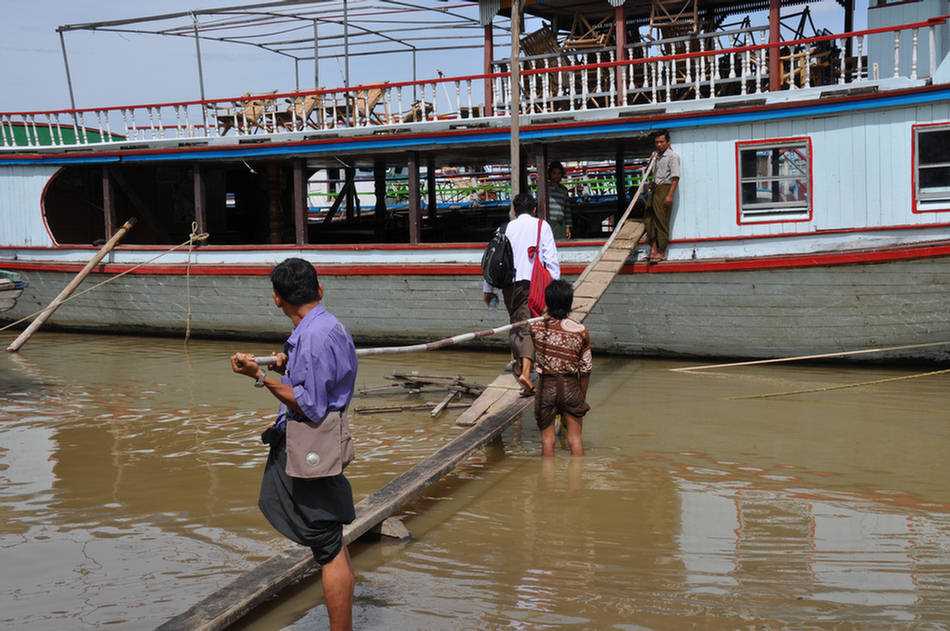
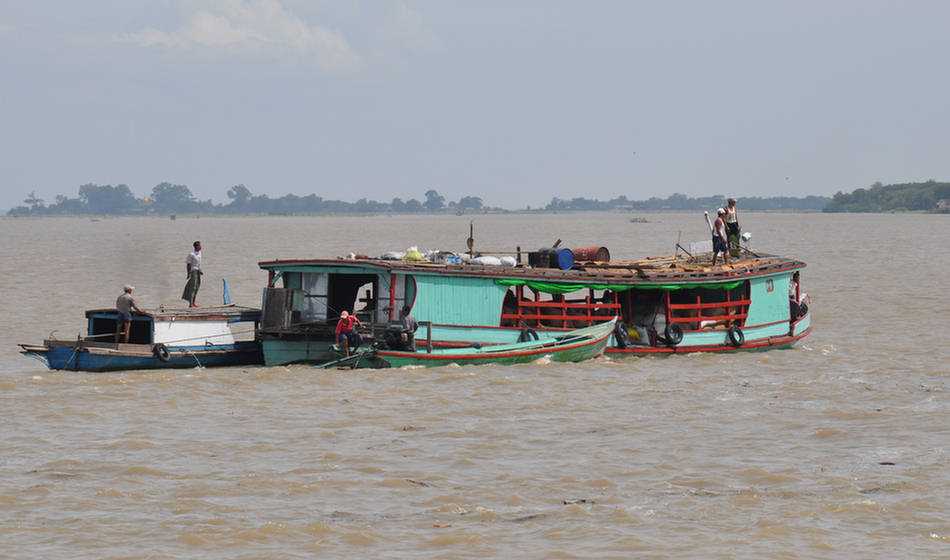
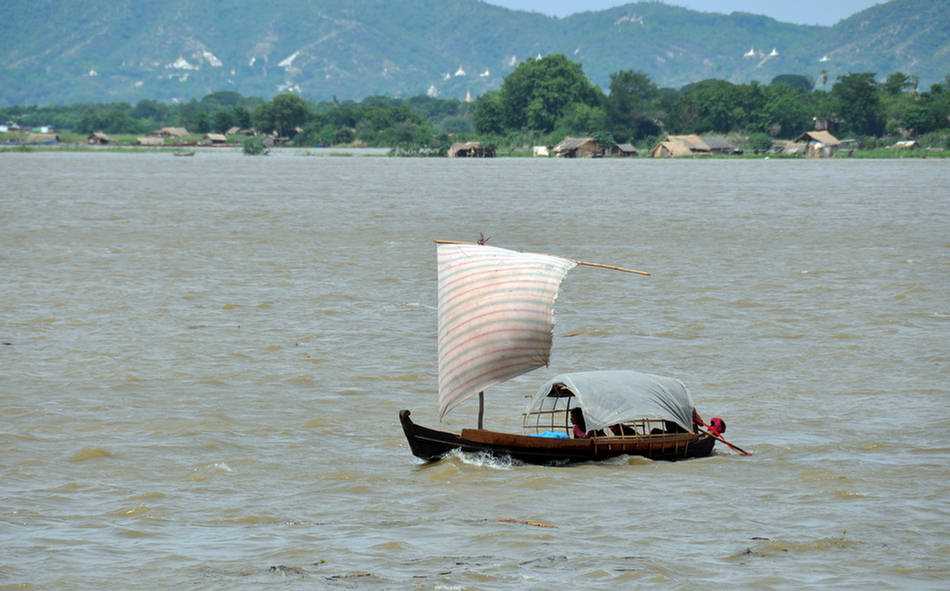
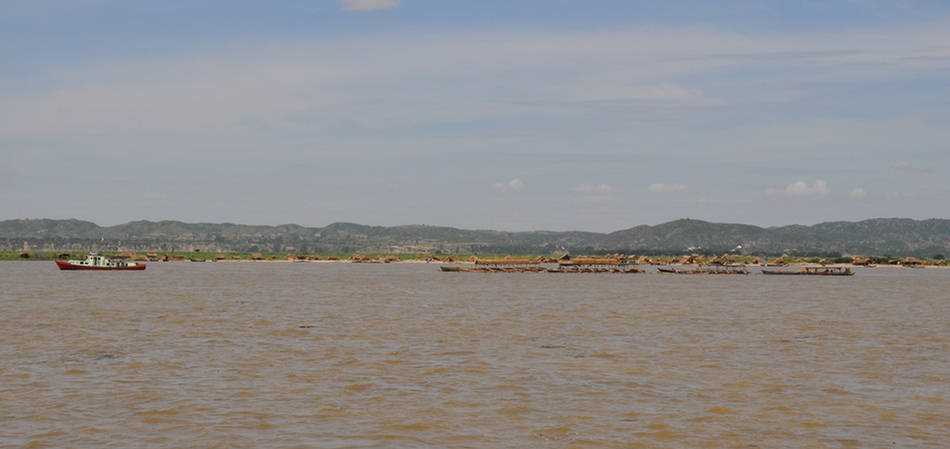
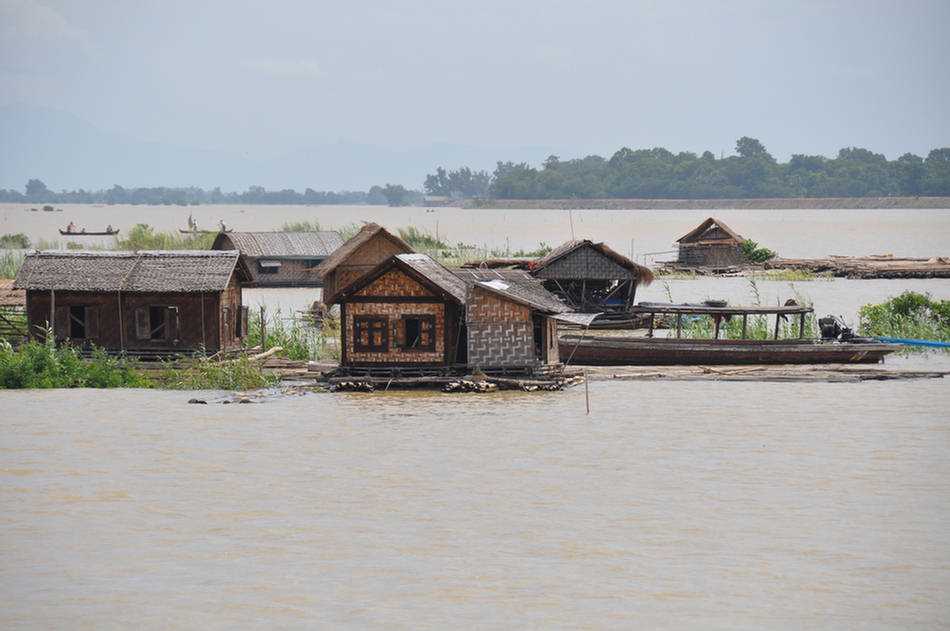
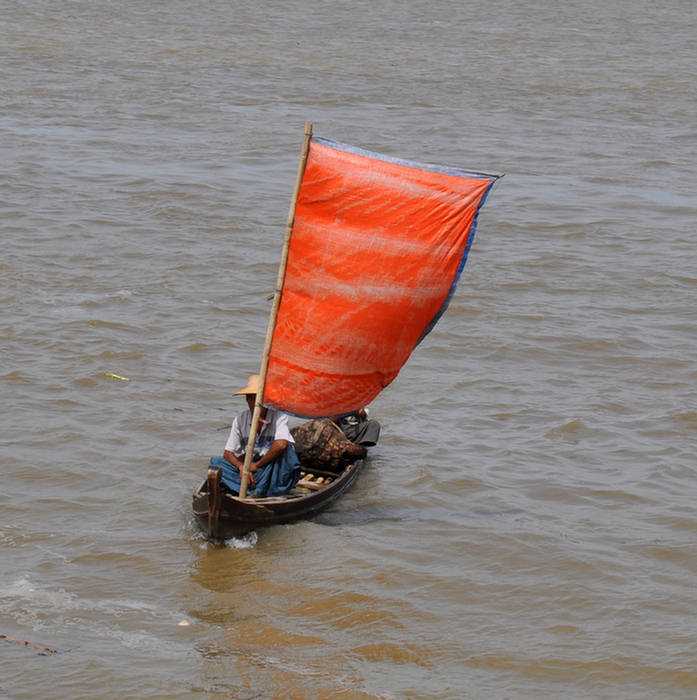
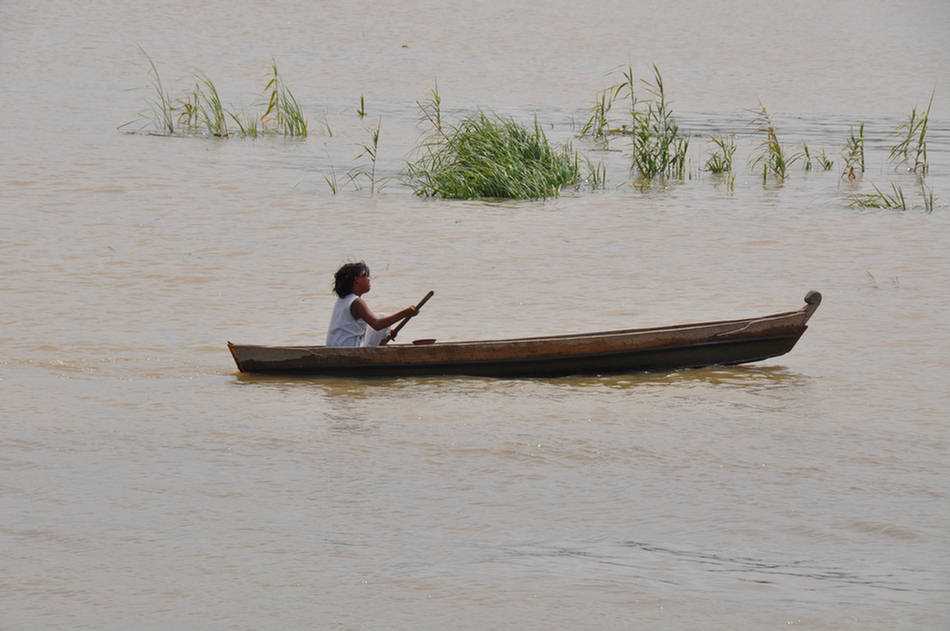
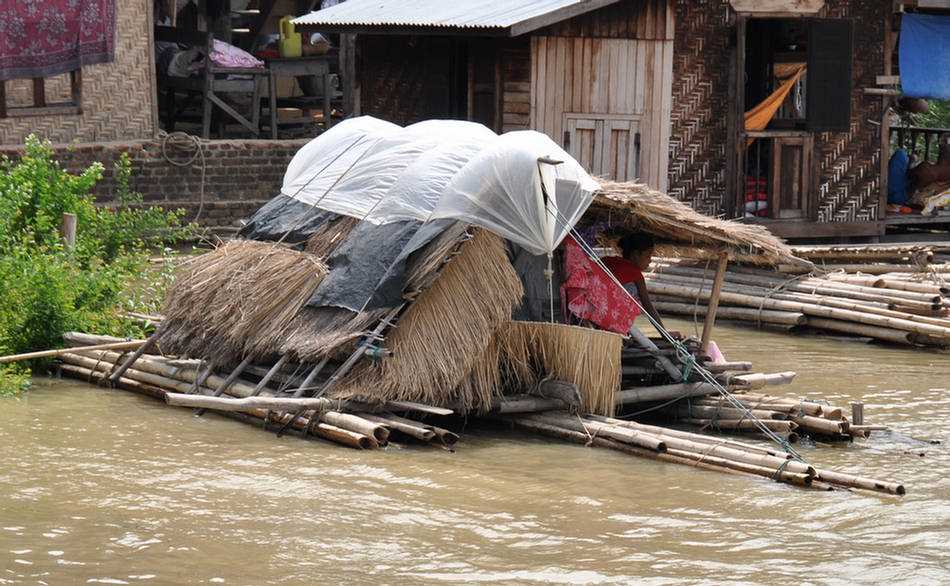
An old reprobate taking it easy.
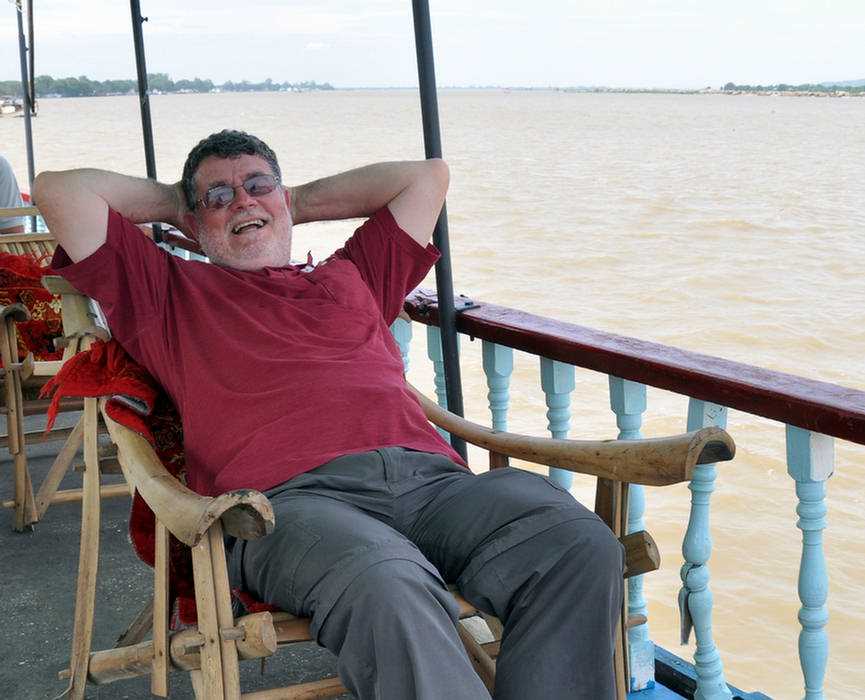
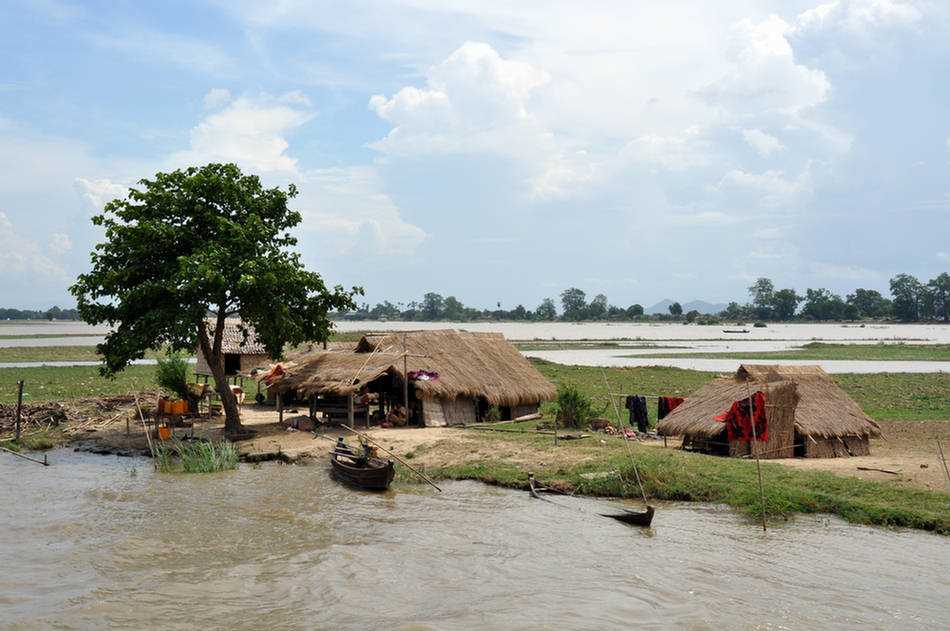
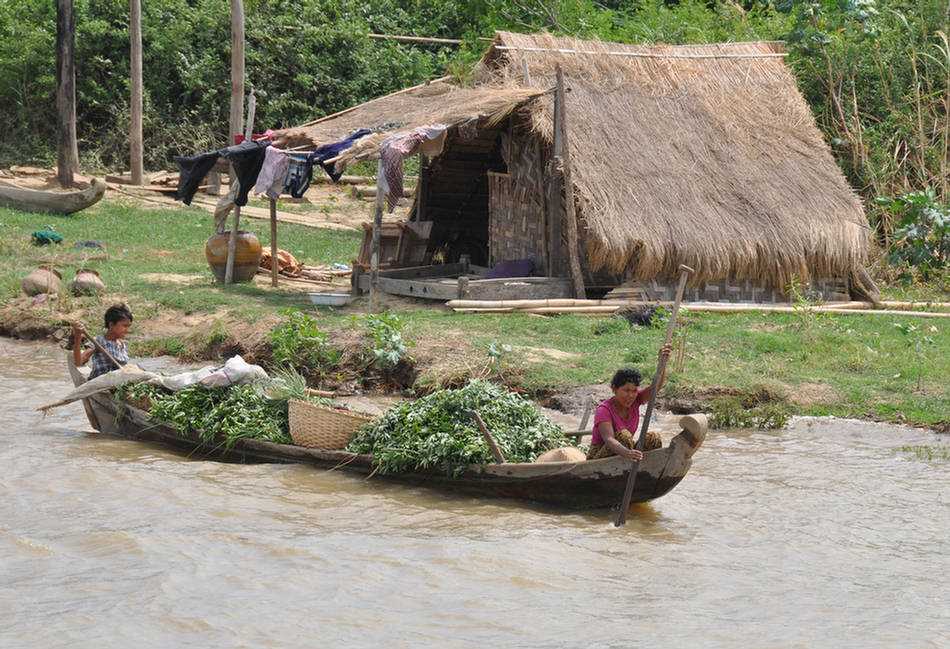
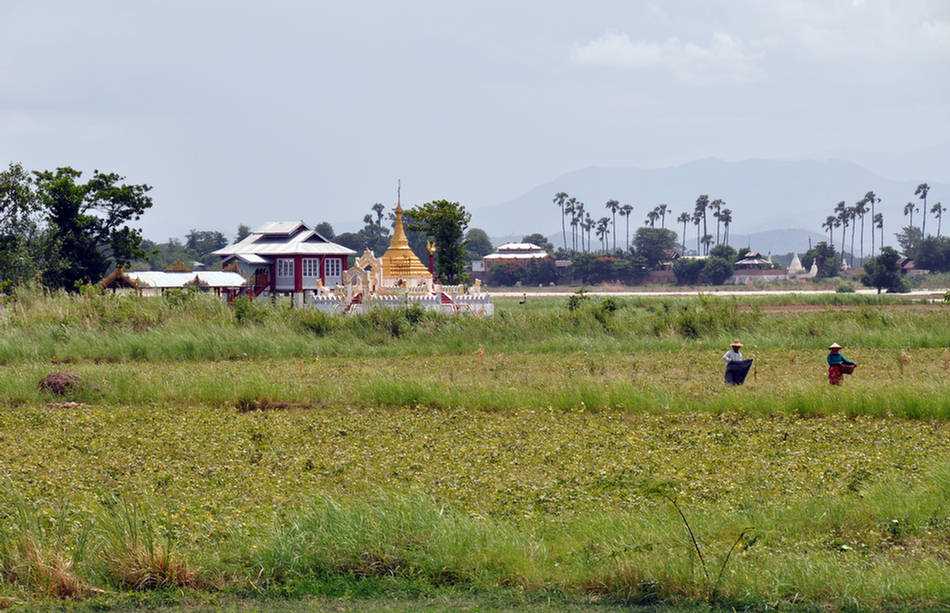
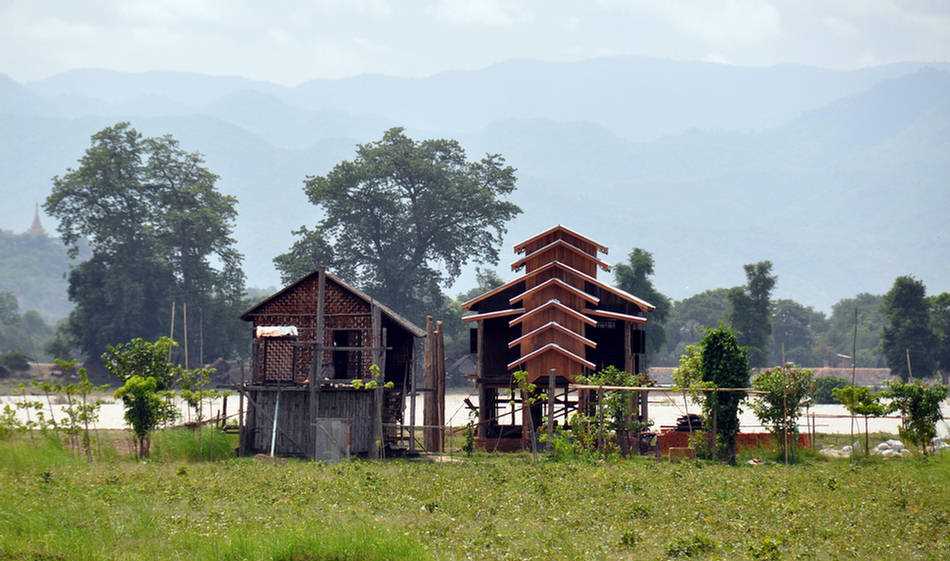
Mingun Pahtodawgyi
Mingun is about 11km north of Mandalay.
The construction of this massive unfinished Buddhist stupa was begun by King Bodawpaya in 1790.
Unfortunately when it had reached 50m, about a third of its intended height, he died, and construction stopped.
If it had been completed it would have been the highest Buddhist stupa in the world.
The remains are impressive, however, and claimed to be the largest pile of bricks in the world.
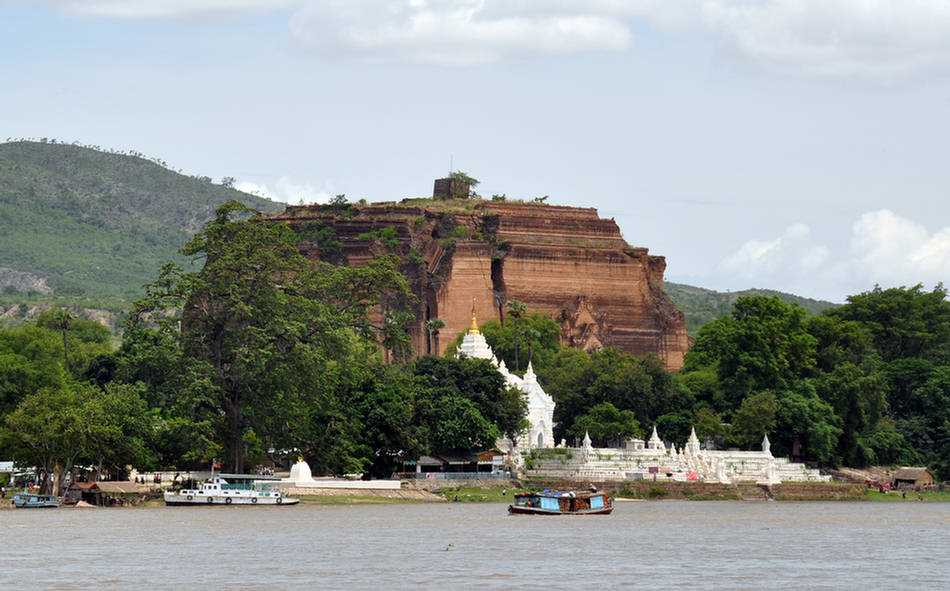
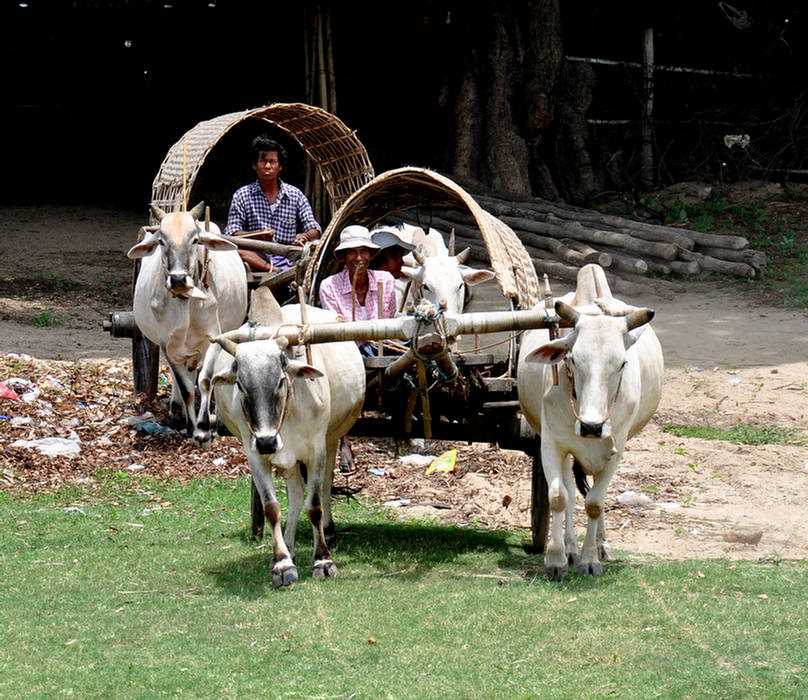
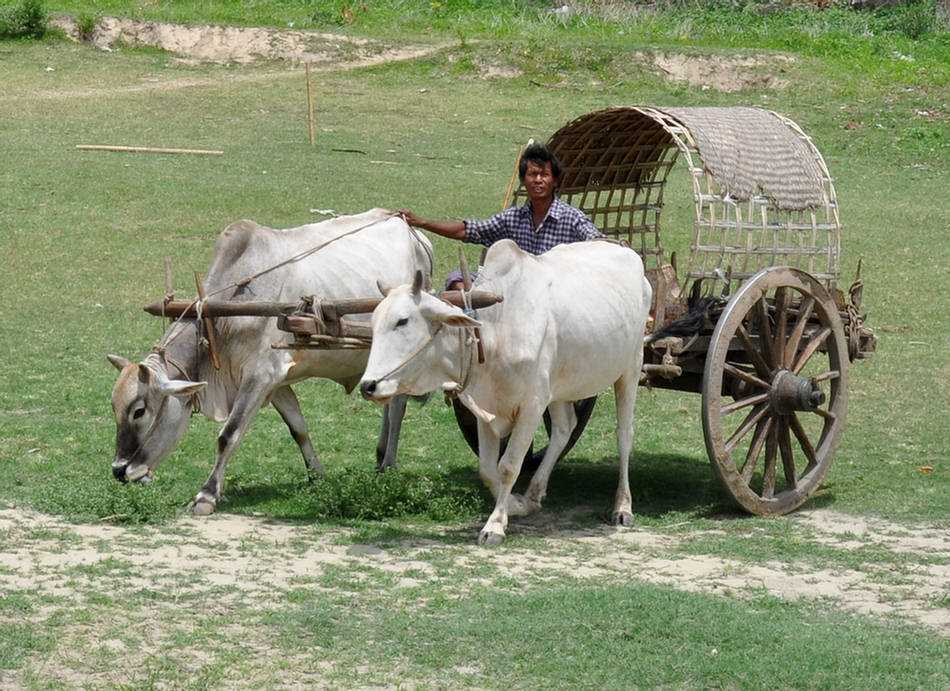
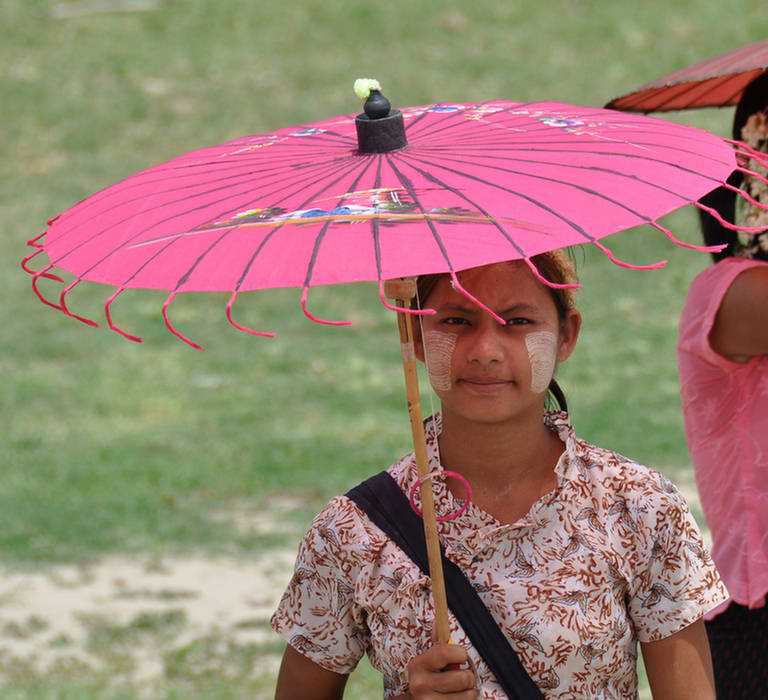
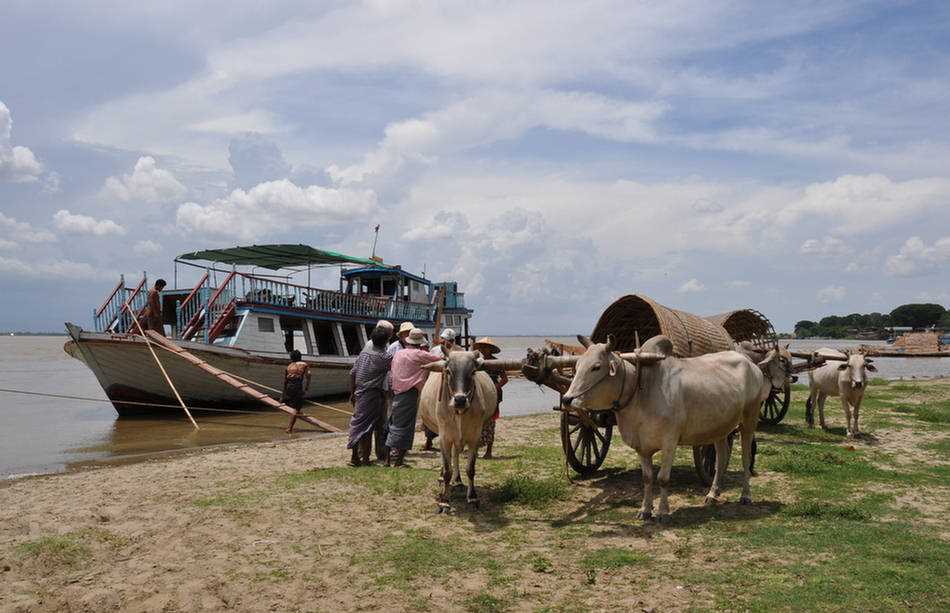
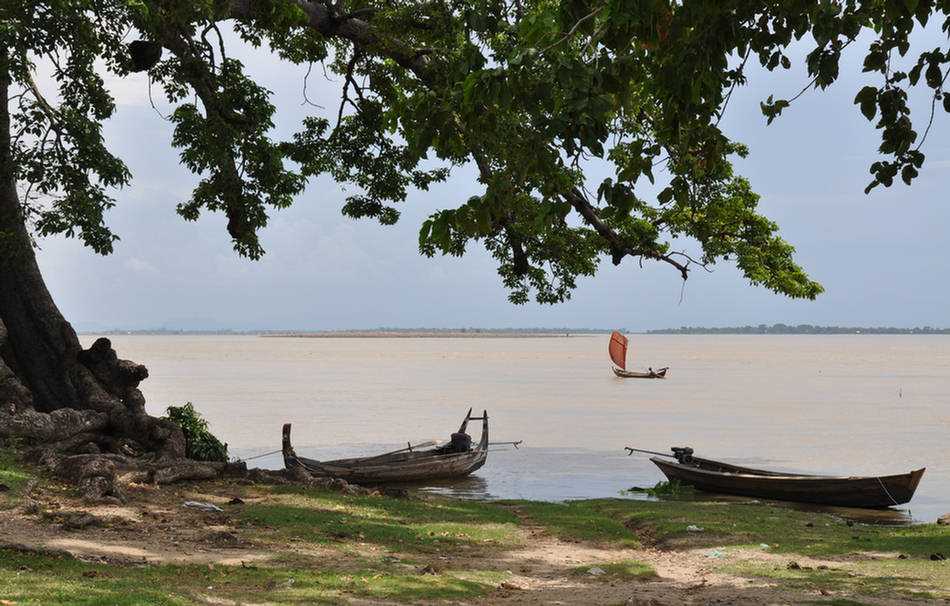
This model shows what the stupa would have looked like if it had been completed.
As you can see the rectangular base had almost been completed.
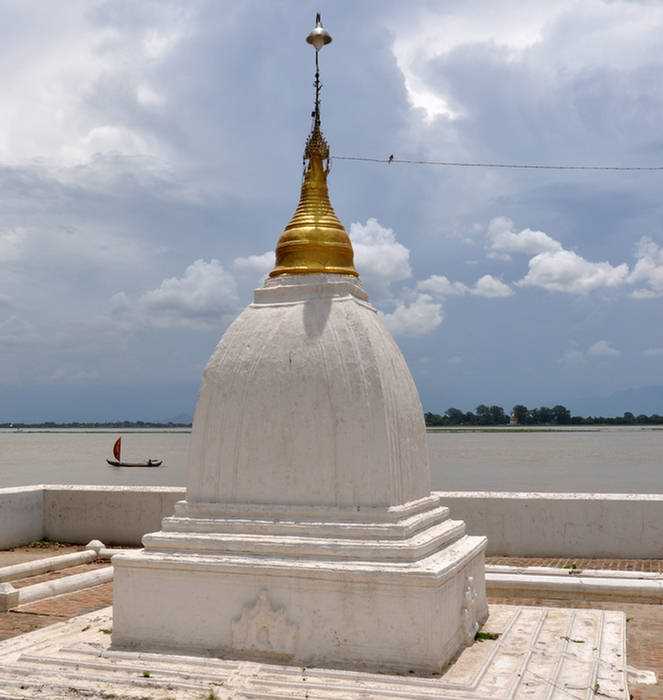
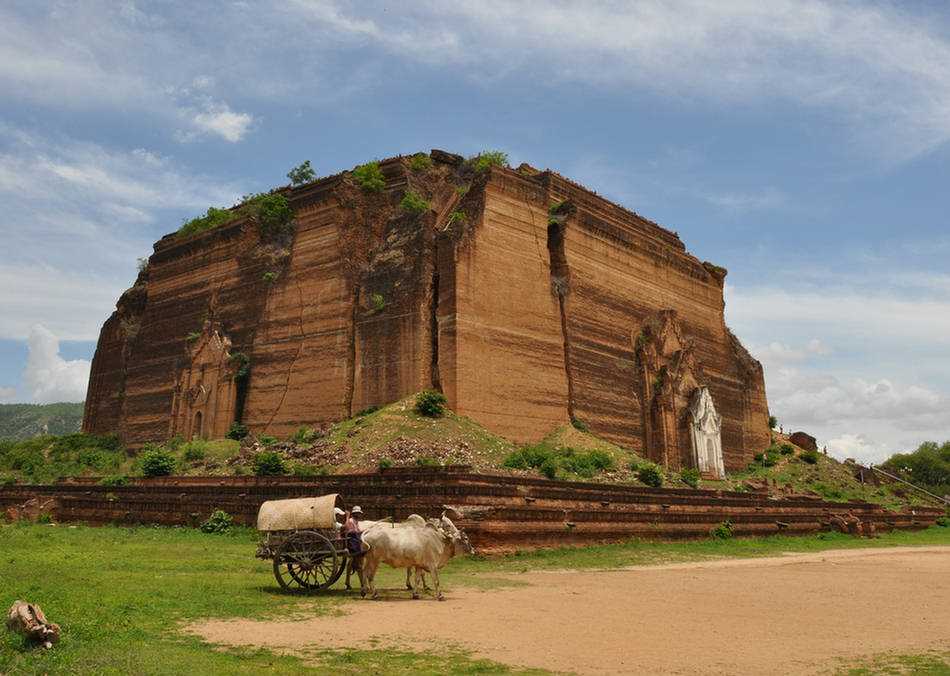
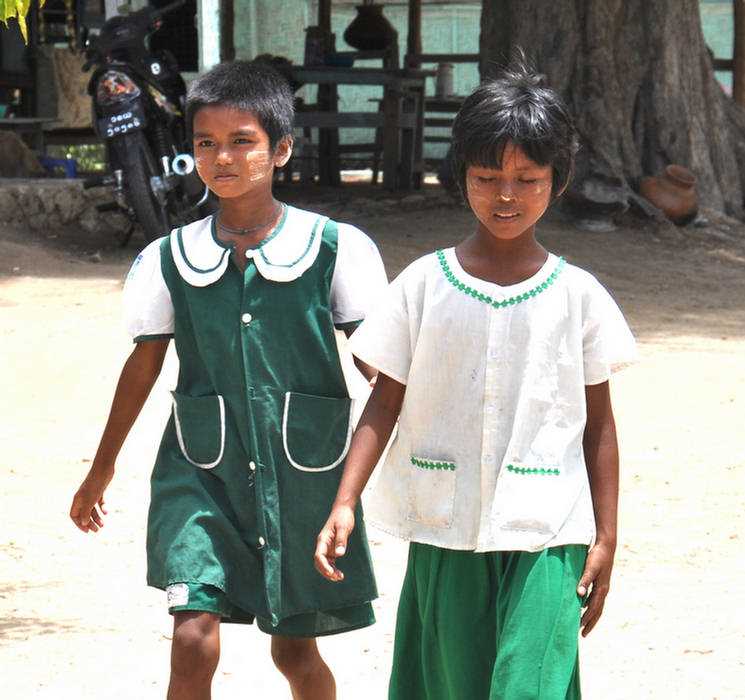
The were good views from the top.
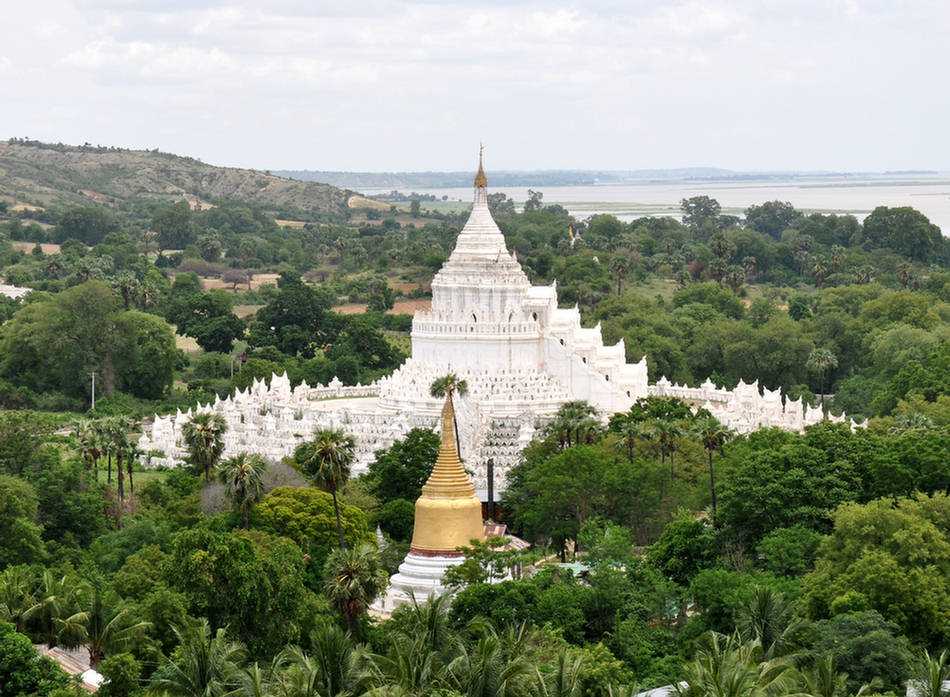
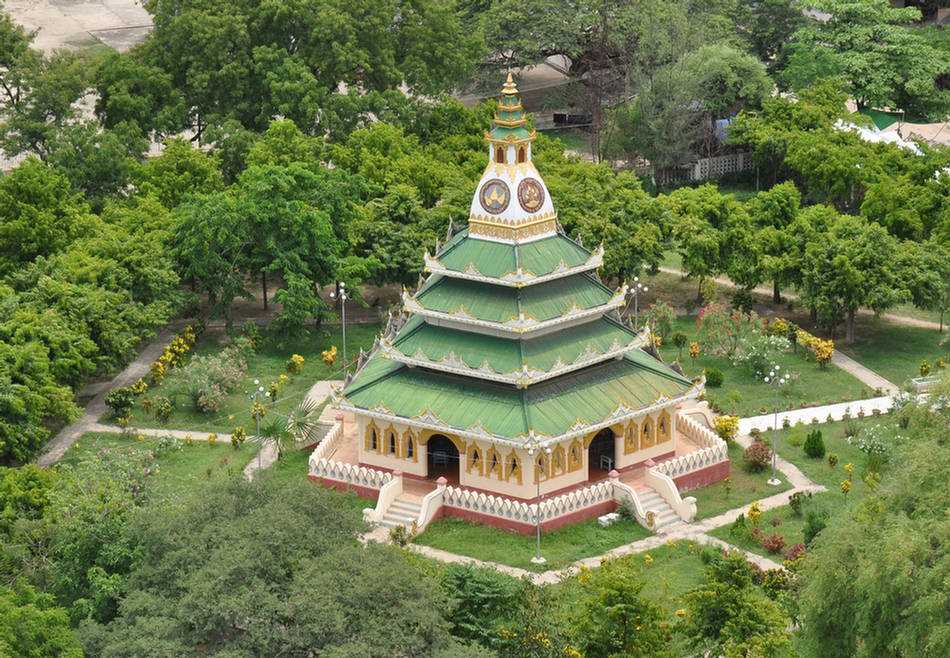
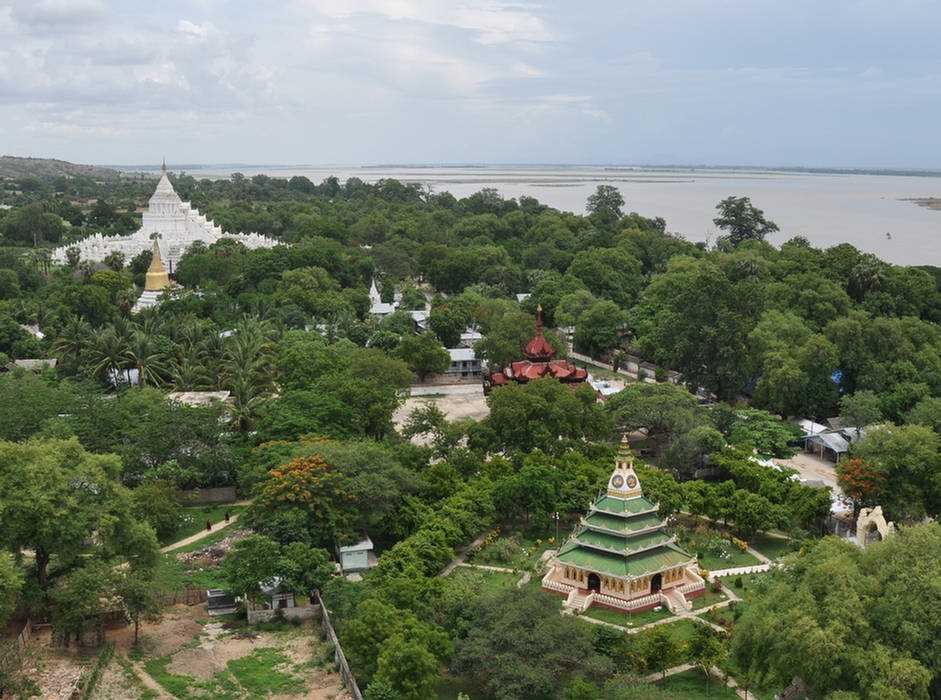
An old reprobate on the top.
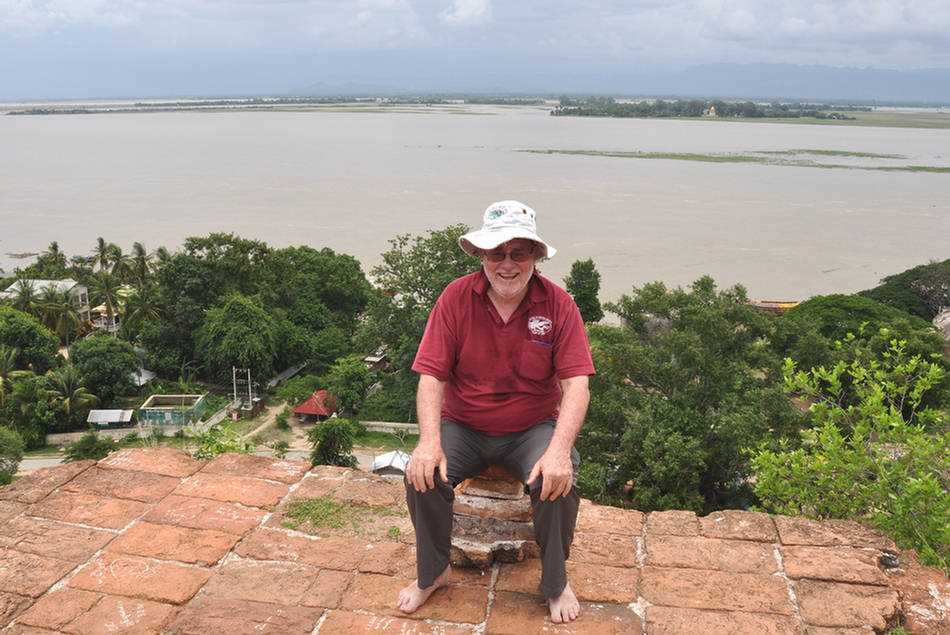
Once there were 2 giant stone lions guarding the entrance to the stupa from the river.
They were almost destroyed in an earthquake in 1839 which also caused damage to the stupa.
This picture shows part of one of the lion's paw.
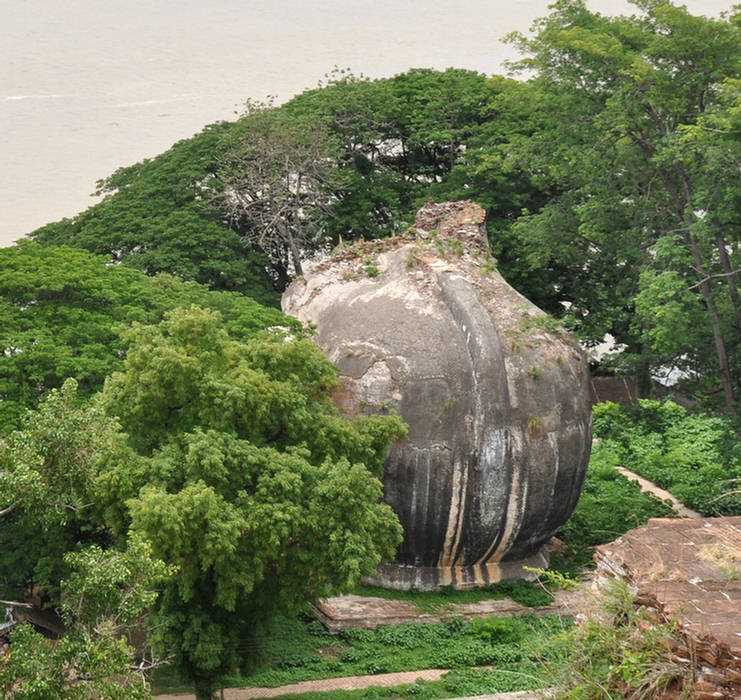
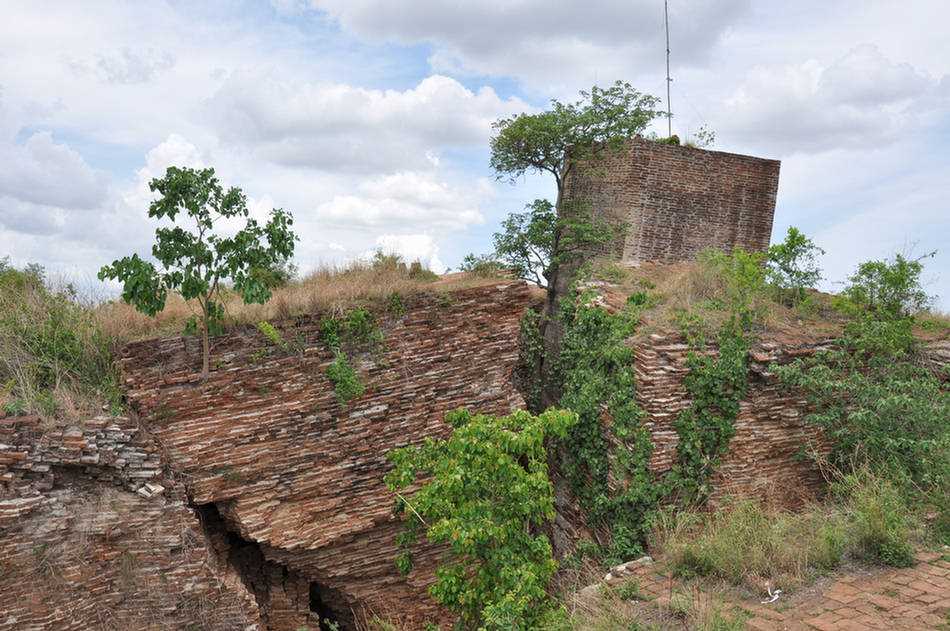
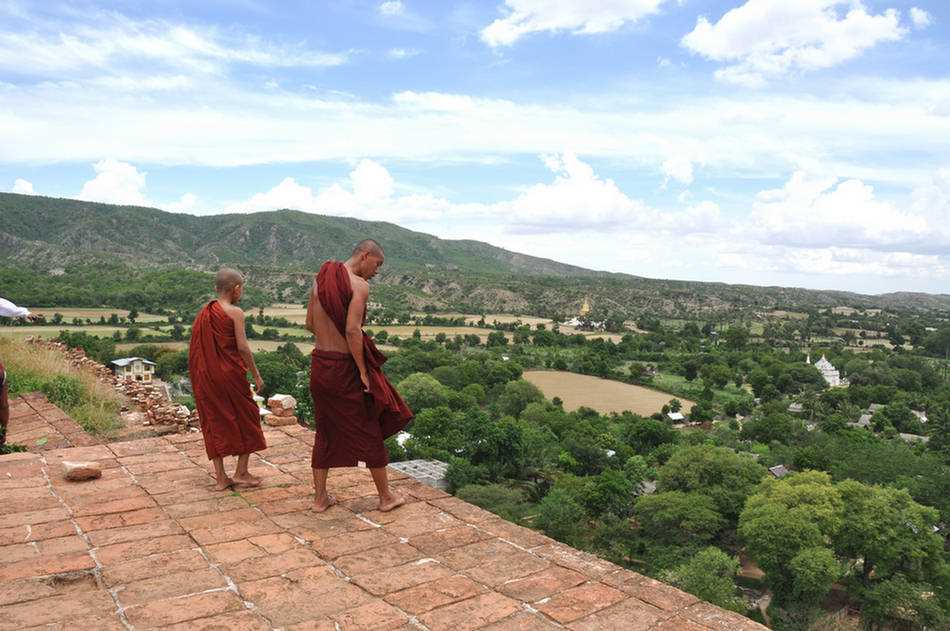
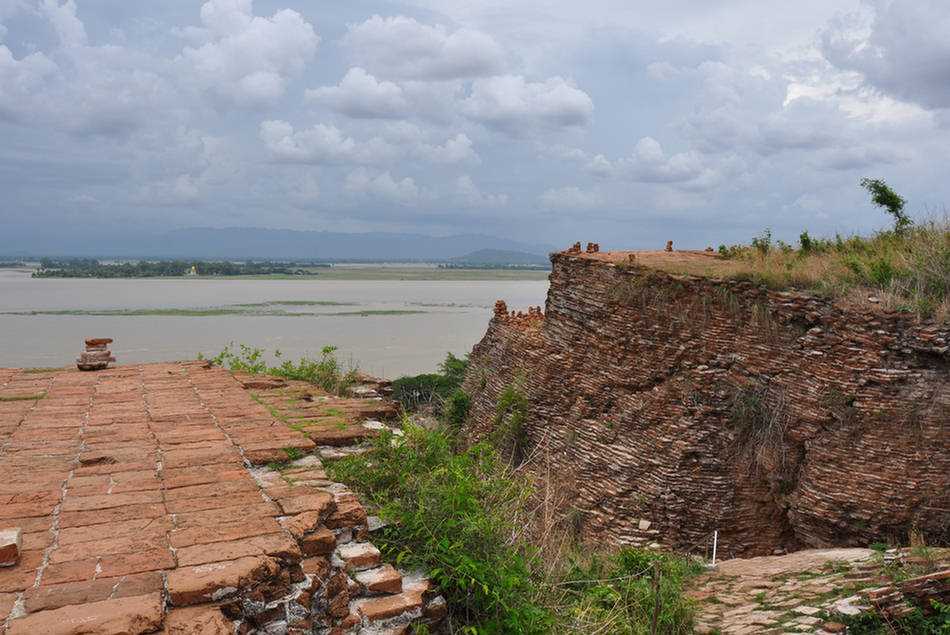
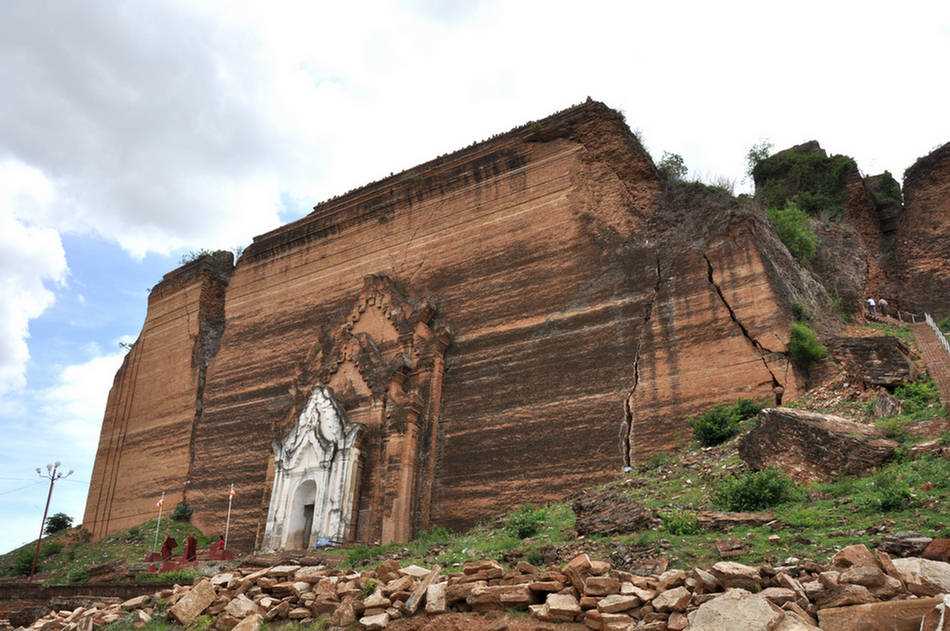
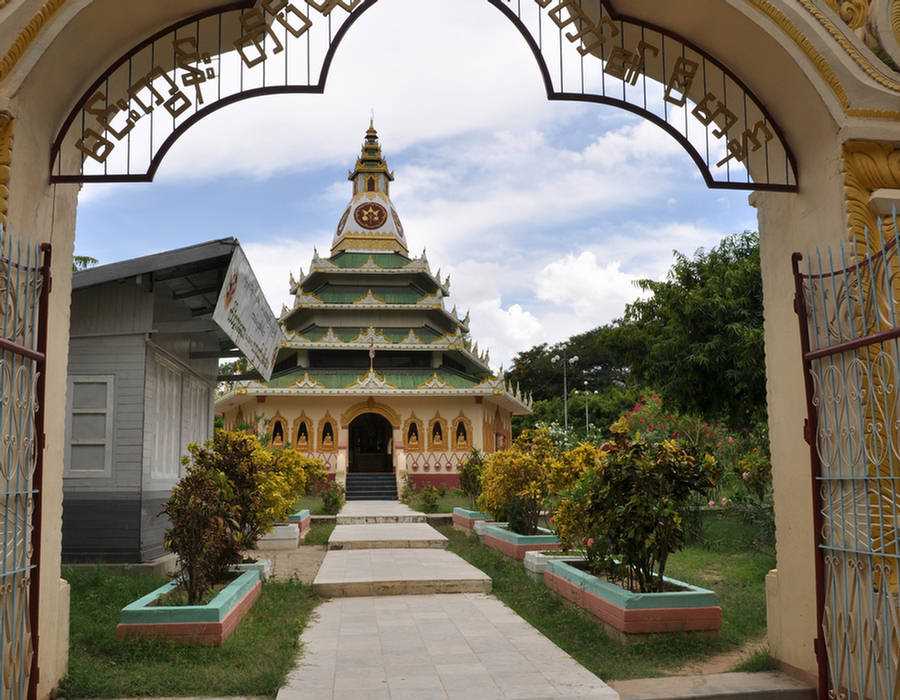
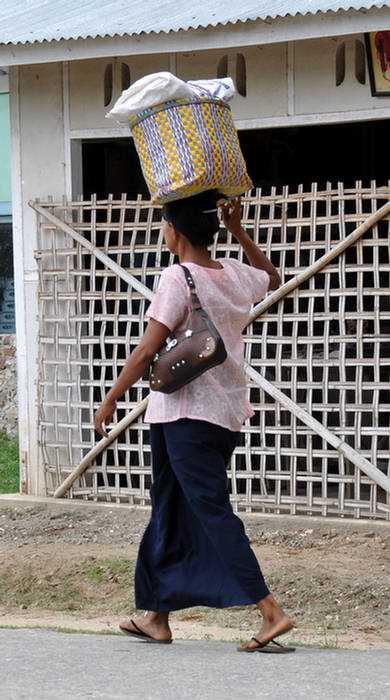
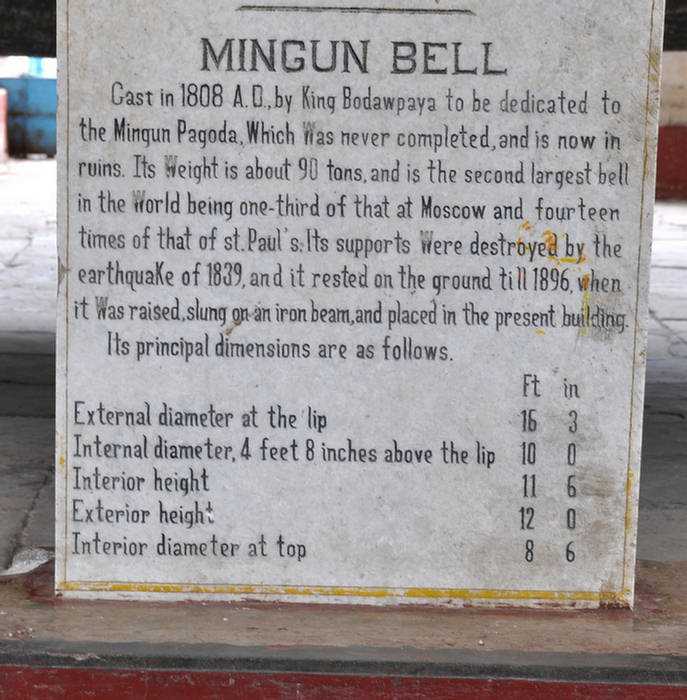
Ringing the world's largest ringable bell.
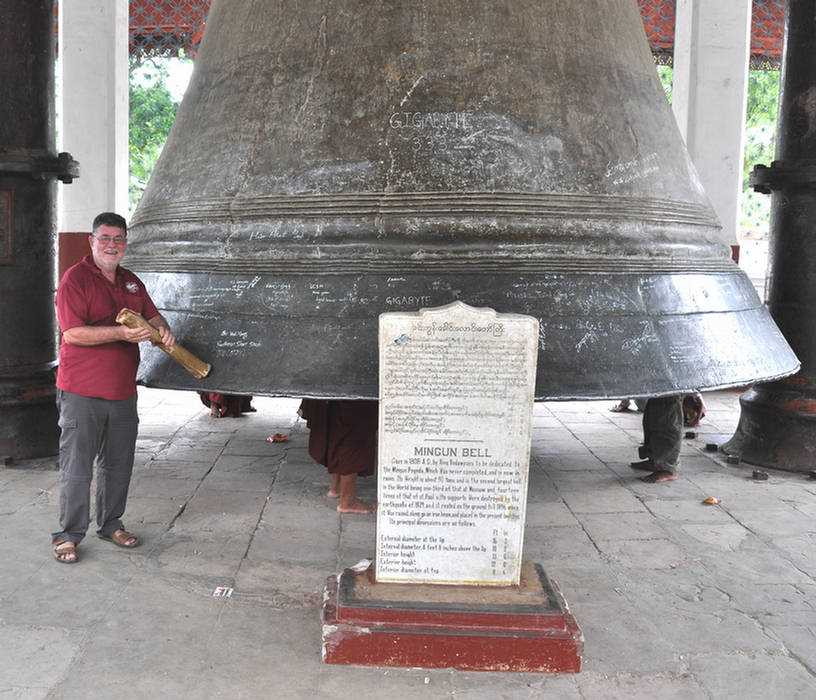
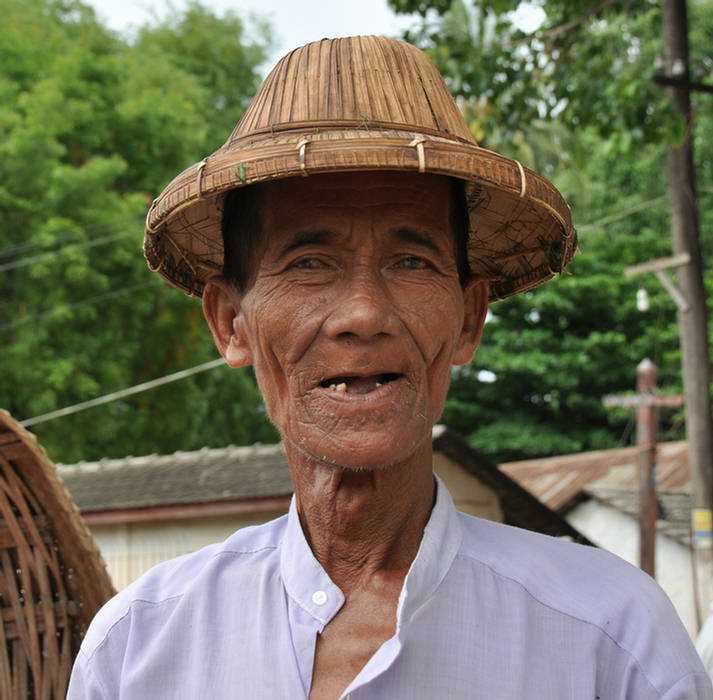
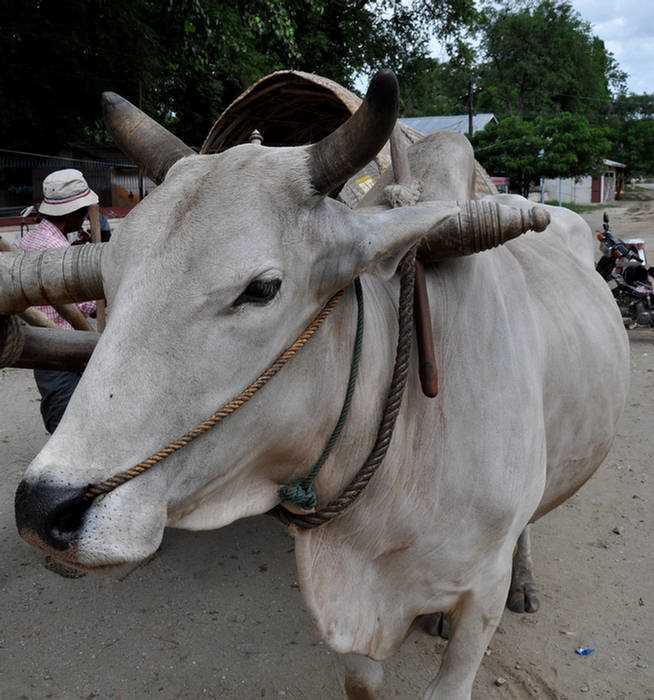
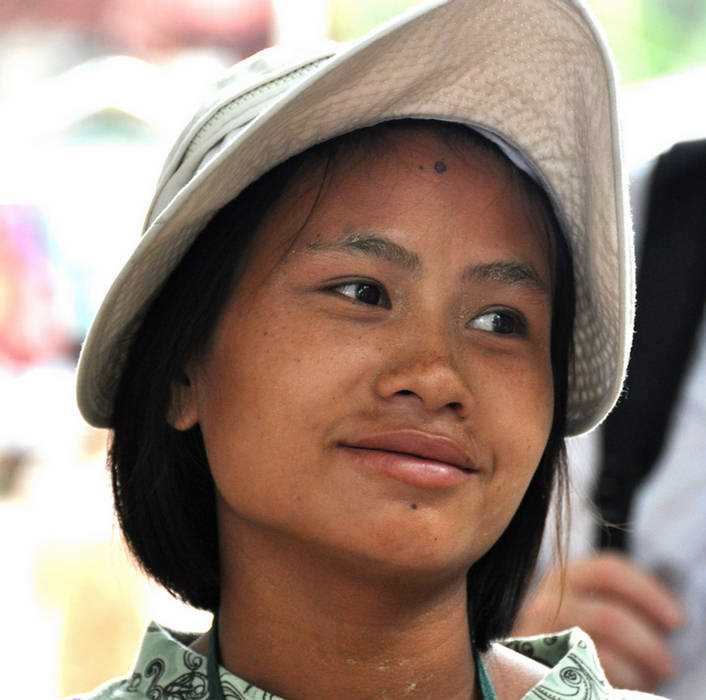
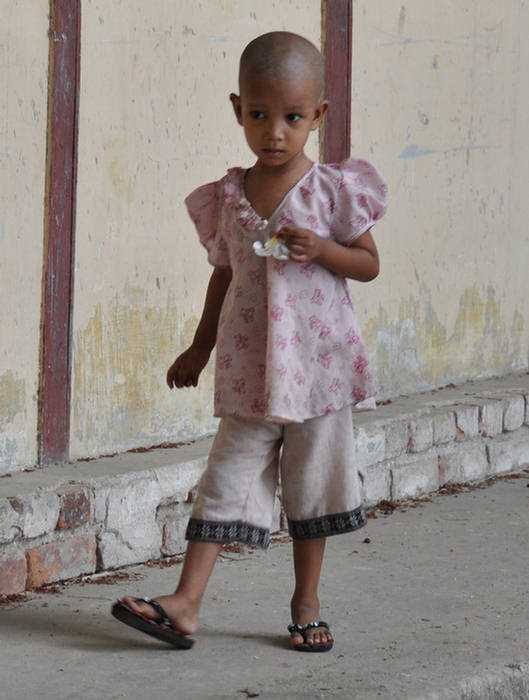
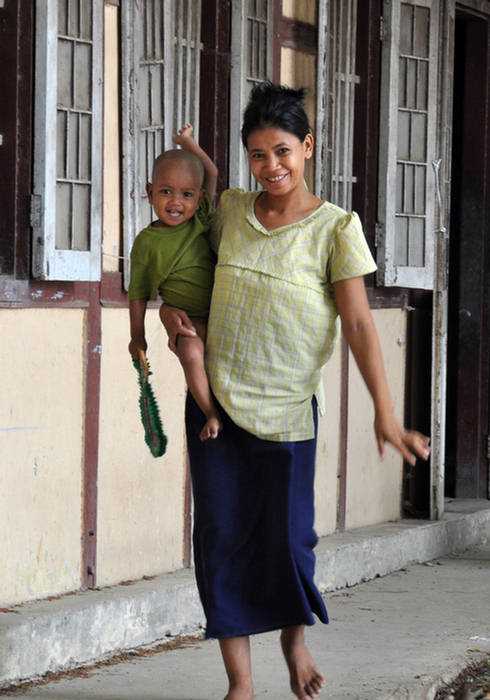
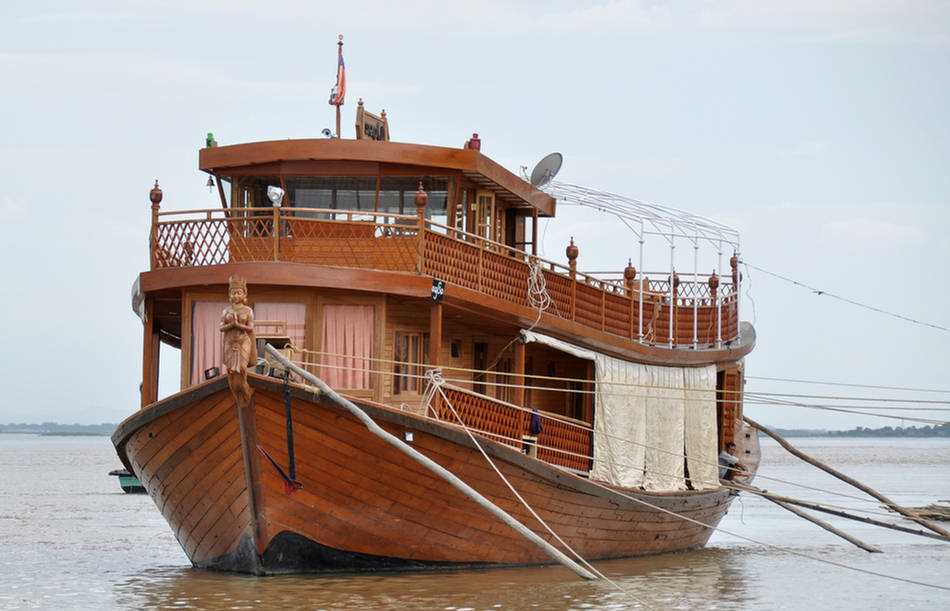
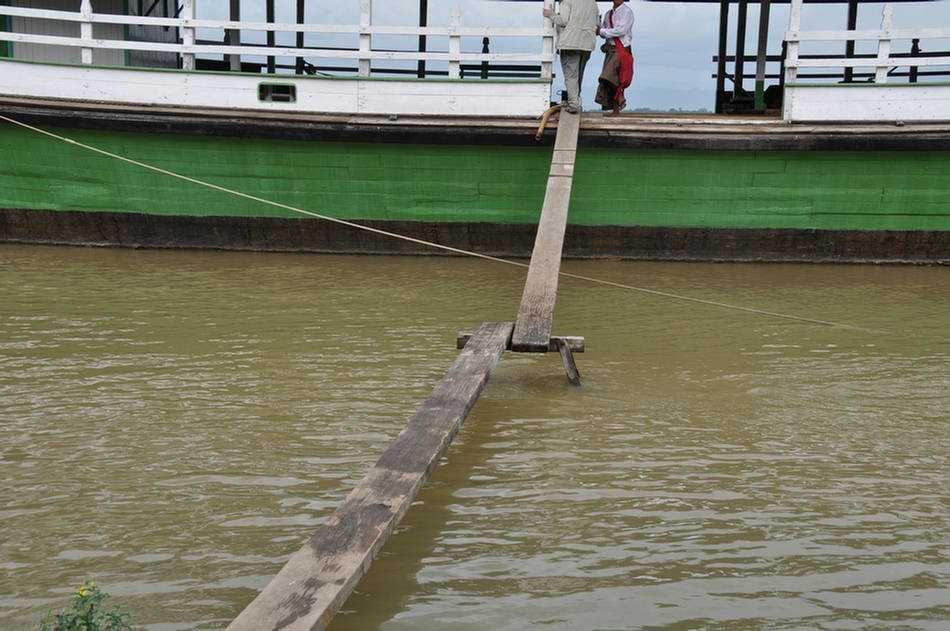
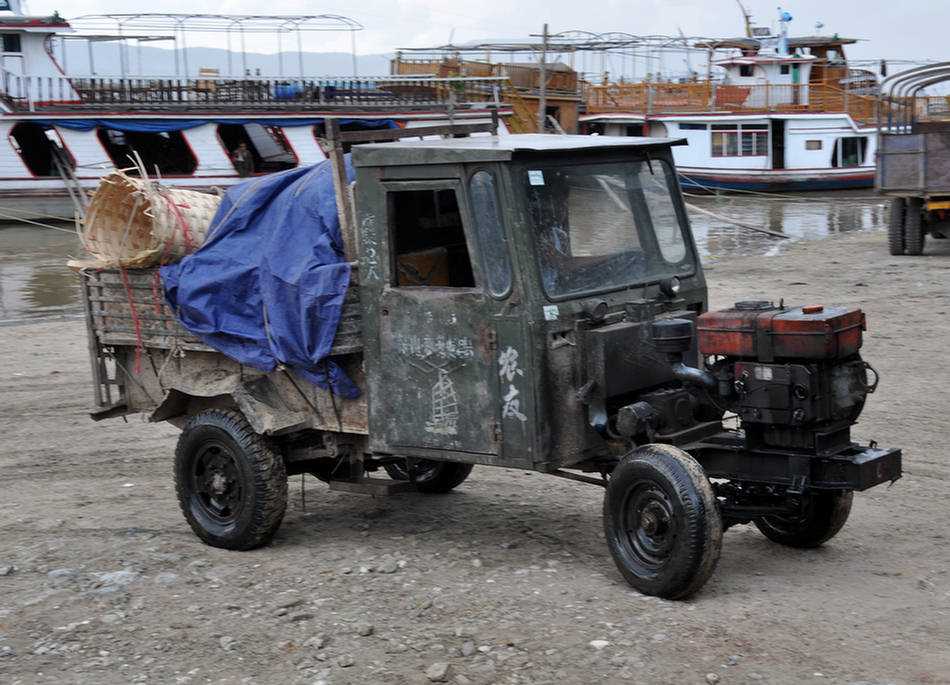
Beating gold into gold-leaf.
Pilgrims use it to gild Buddhist statues in the temples, hoping for good fortune.
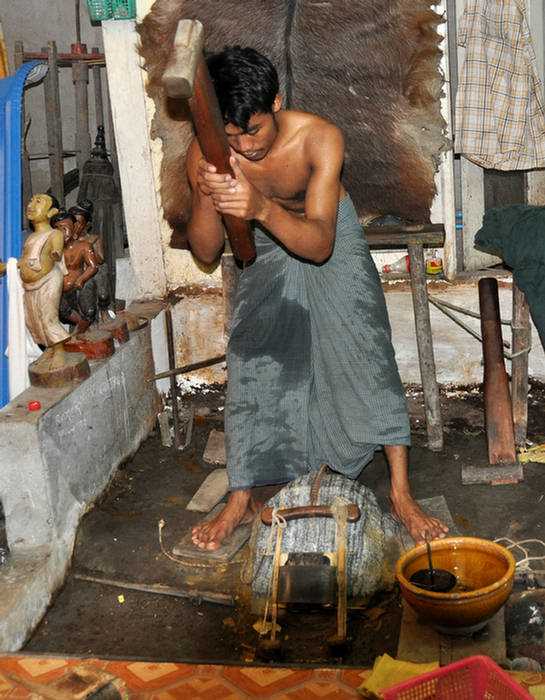
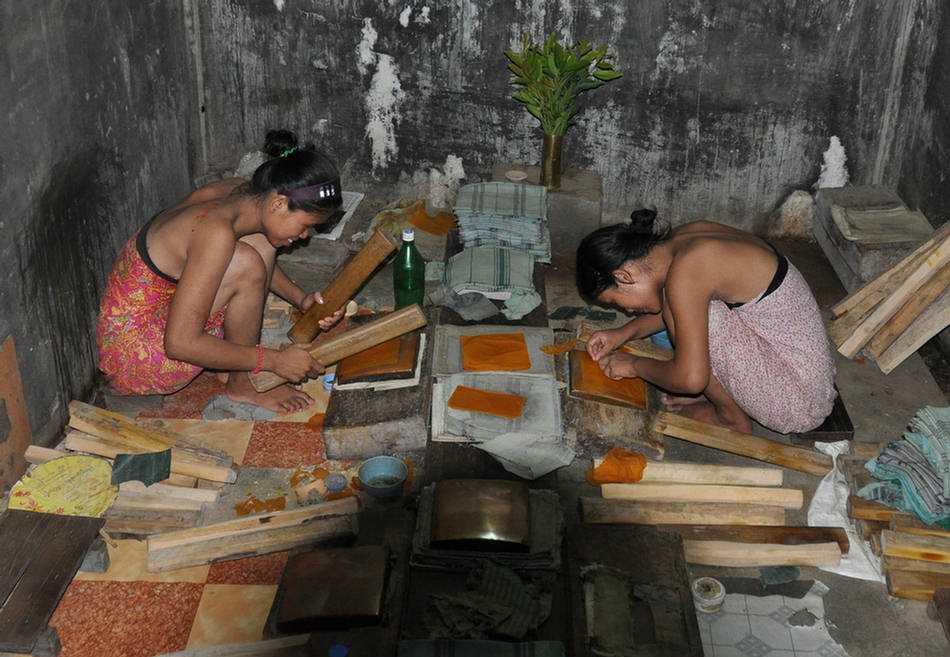
You can see the accumulation of gold on this Buddha.
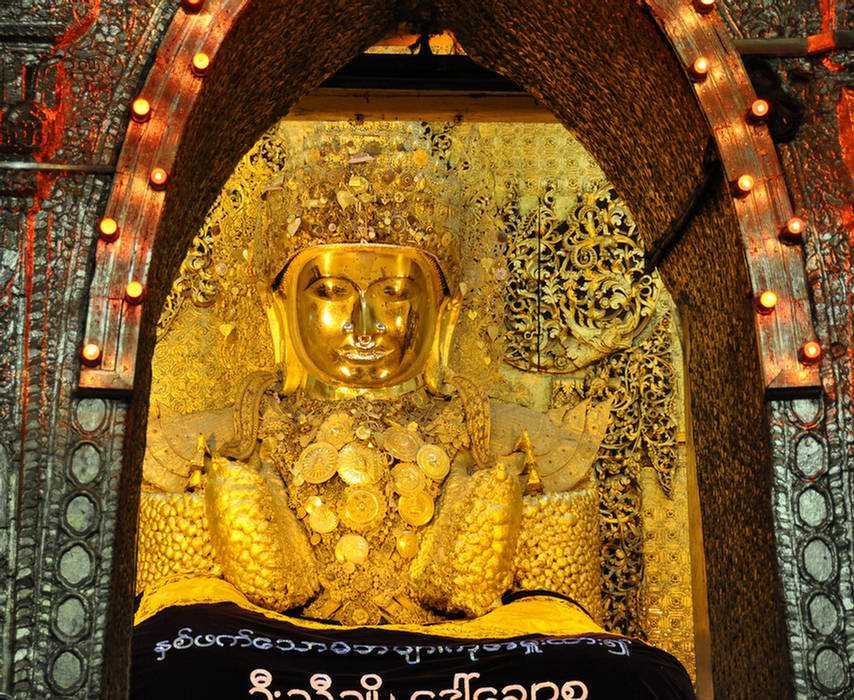
Carving stone Buddhas on the street.
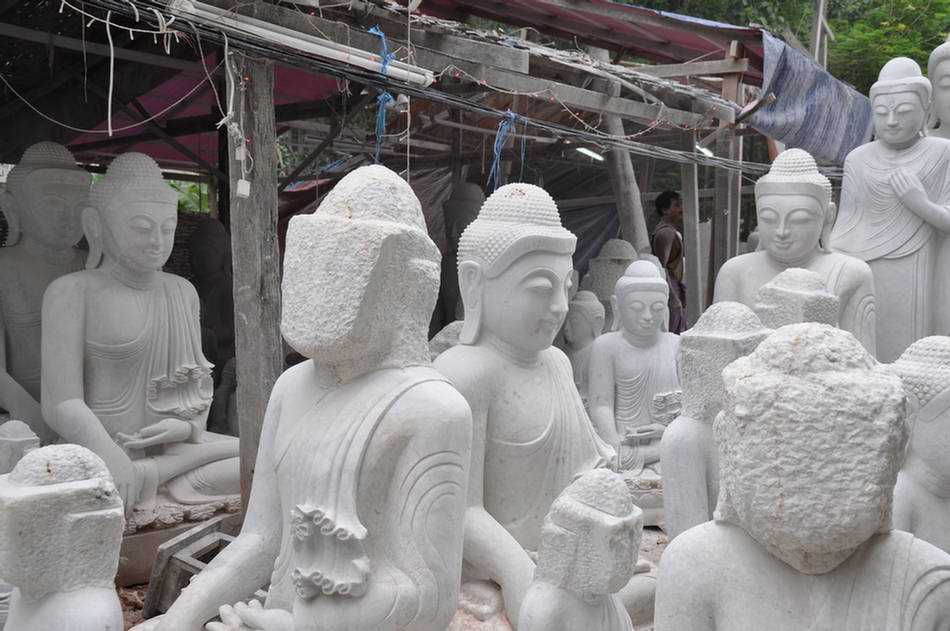
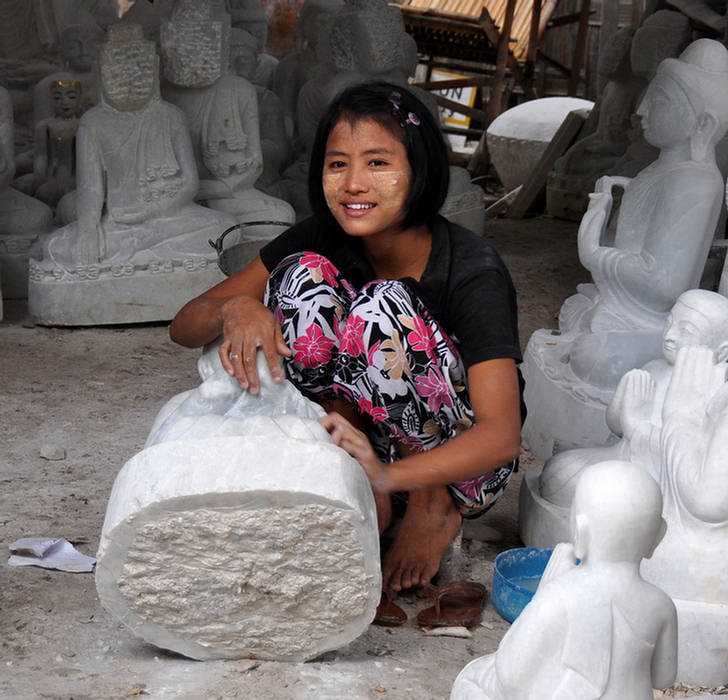
For a price you can have your face carved on one.
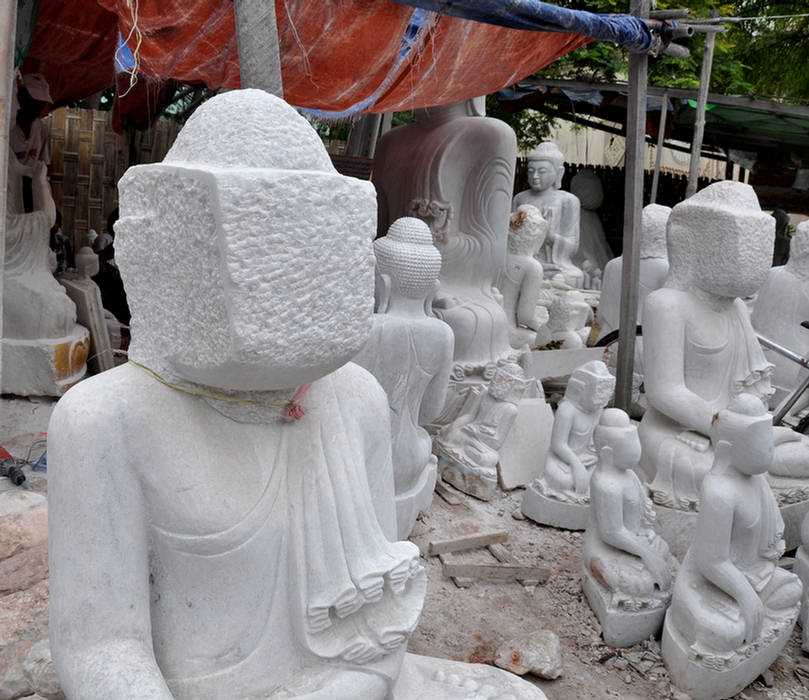
Tapestry.
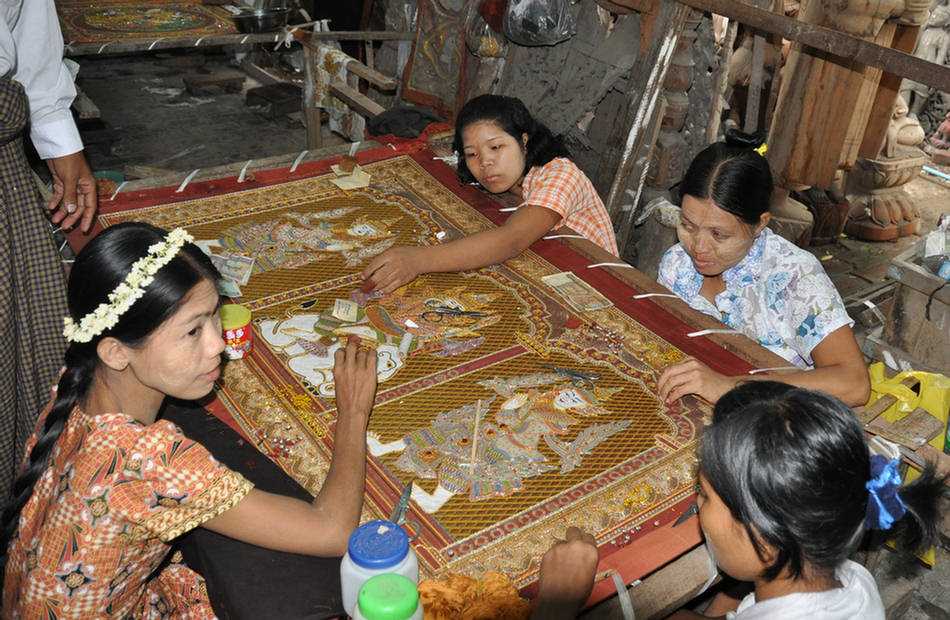
Carved teak.
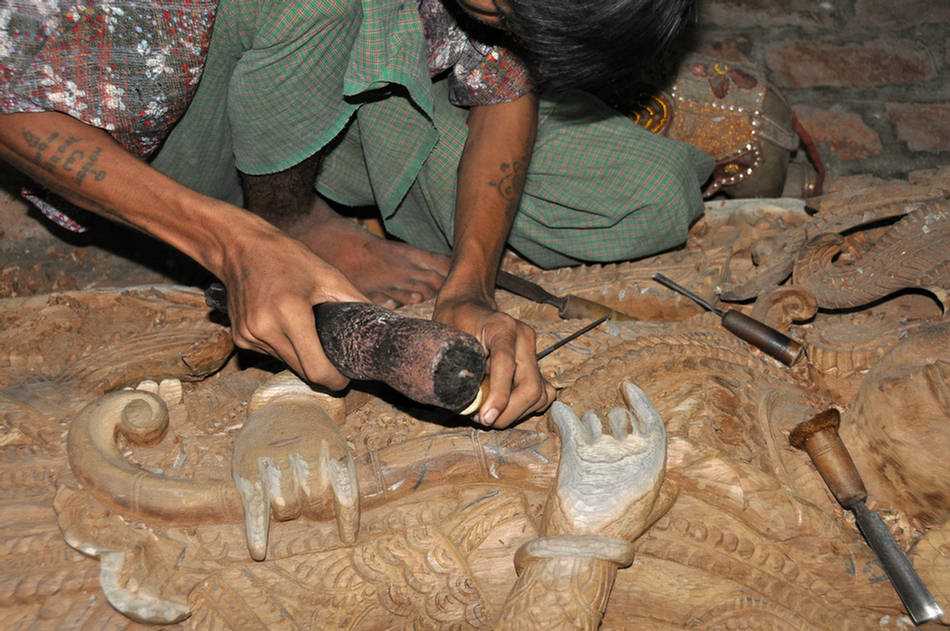
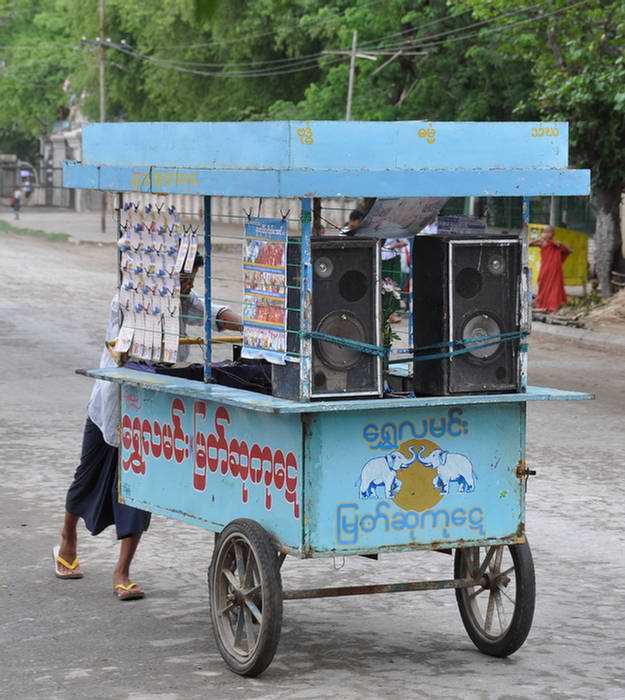
School children.
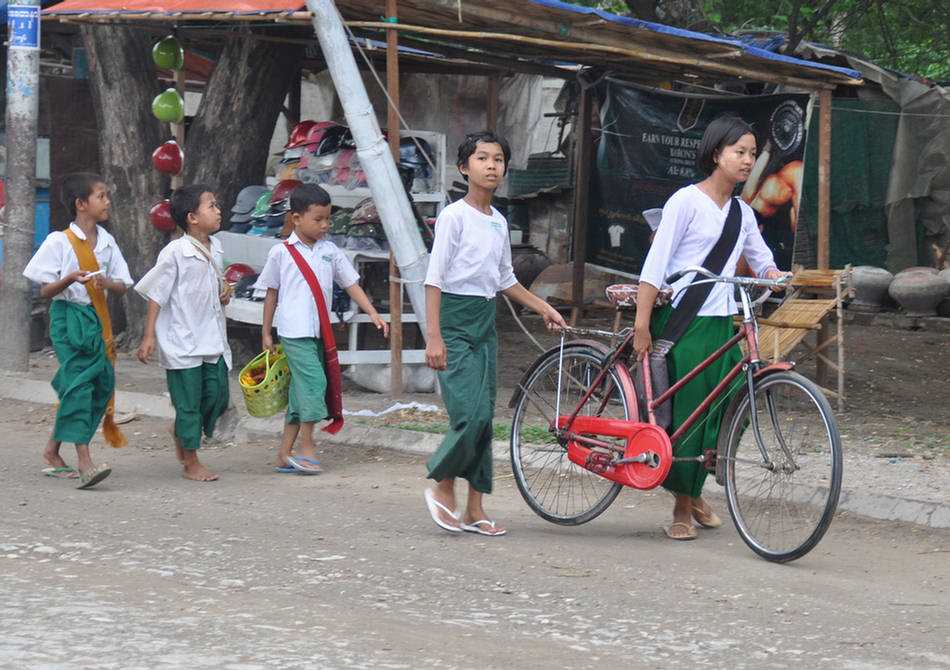
For a large price you could have a bronze Buddha of yourself cast.
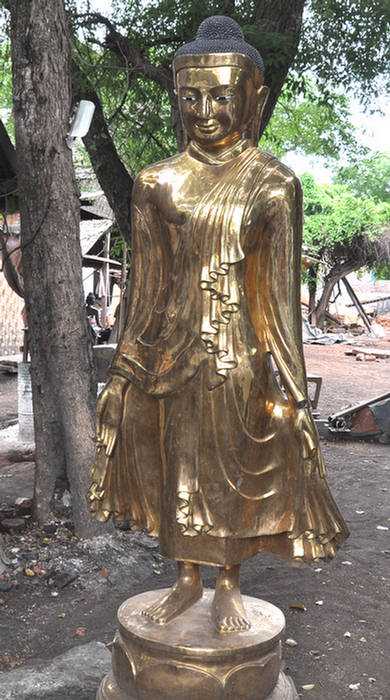
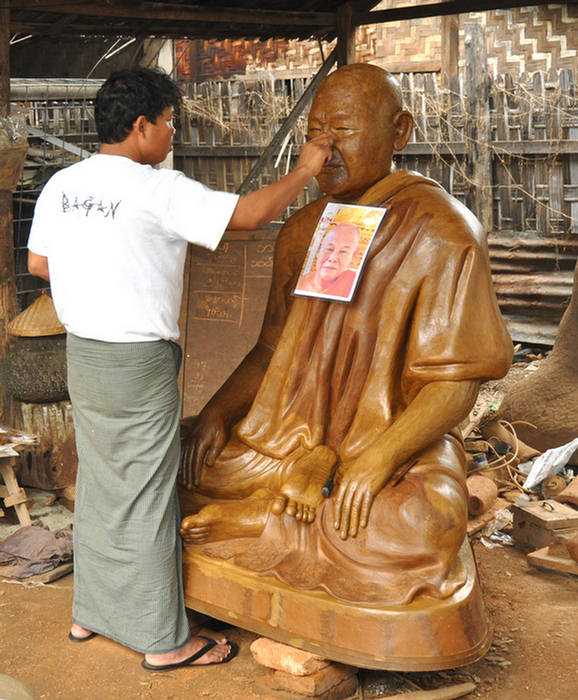
U-Bin Bridge
Claimed to be the world's longest wooden bridge, this 200 year old bridge is 1.2km long.
It is a pleasant place to watch the sun set.
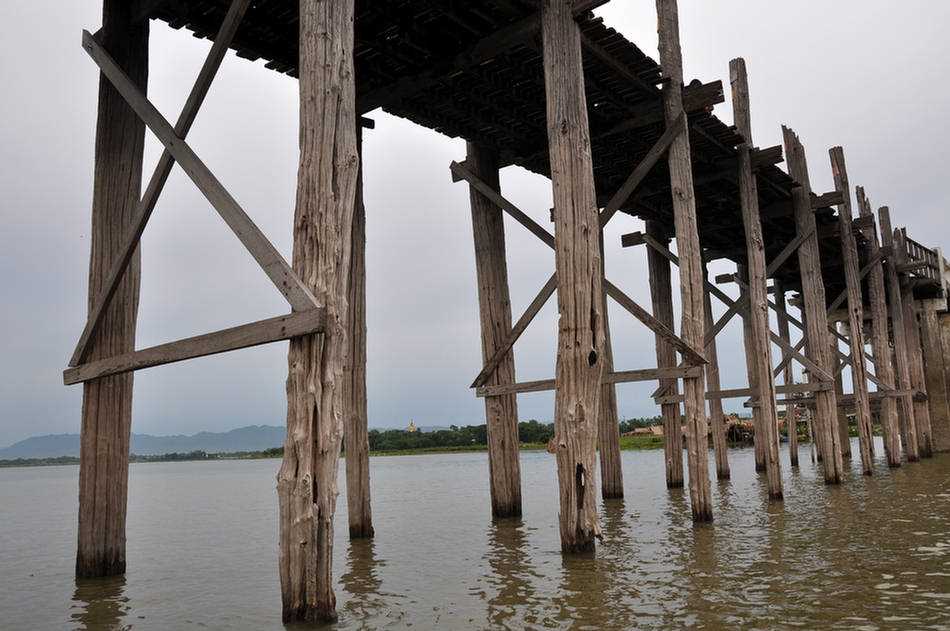
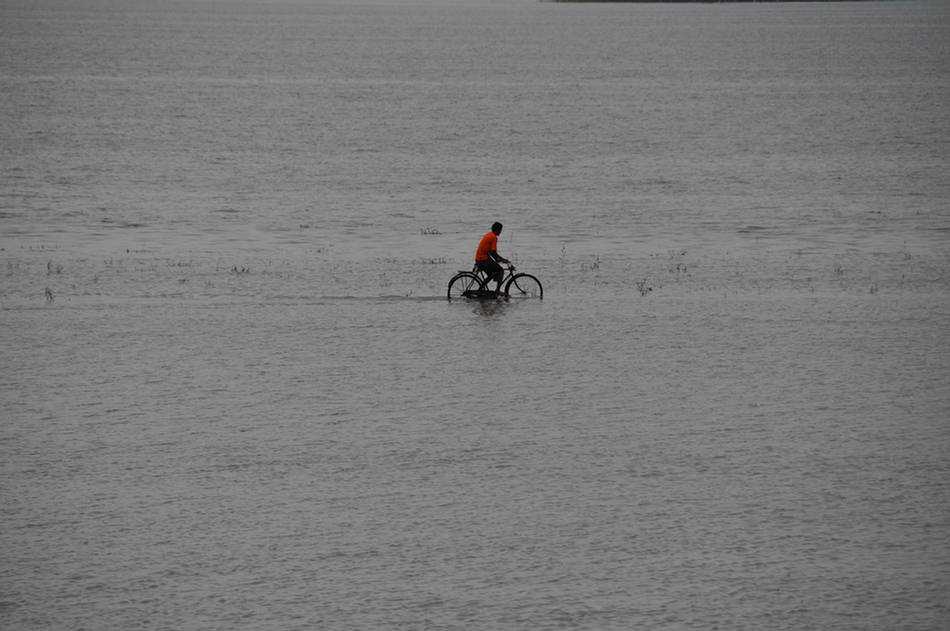
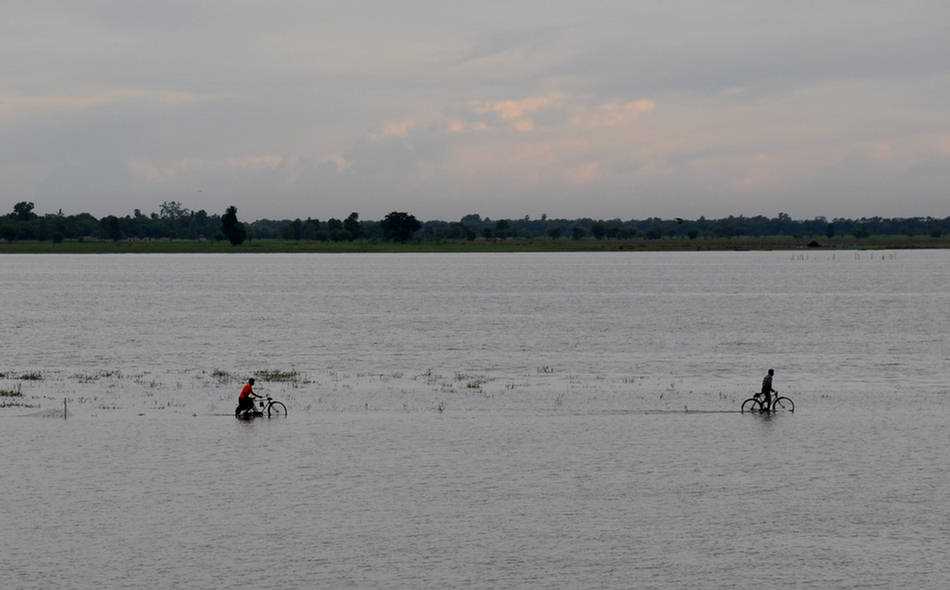
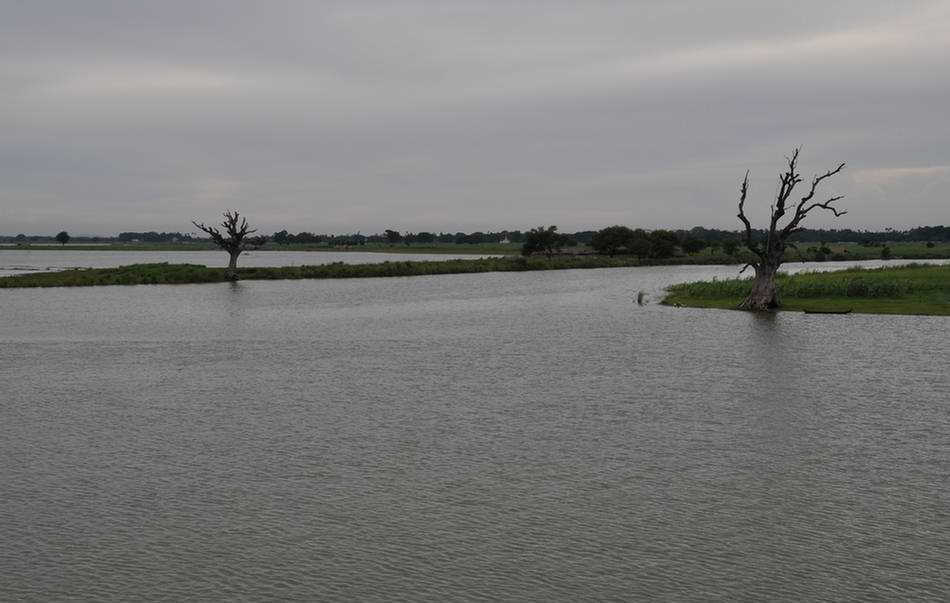
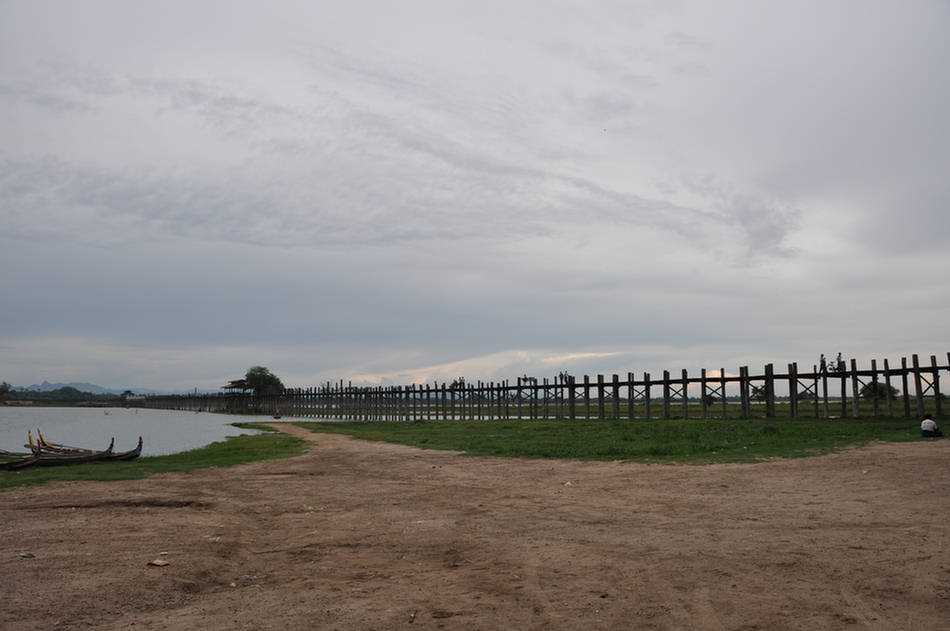
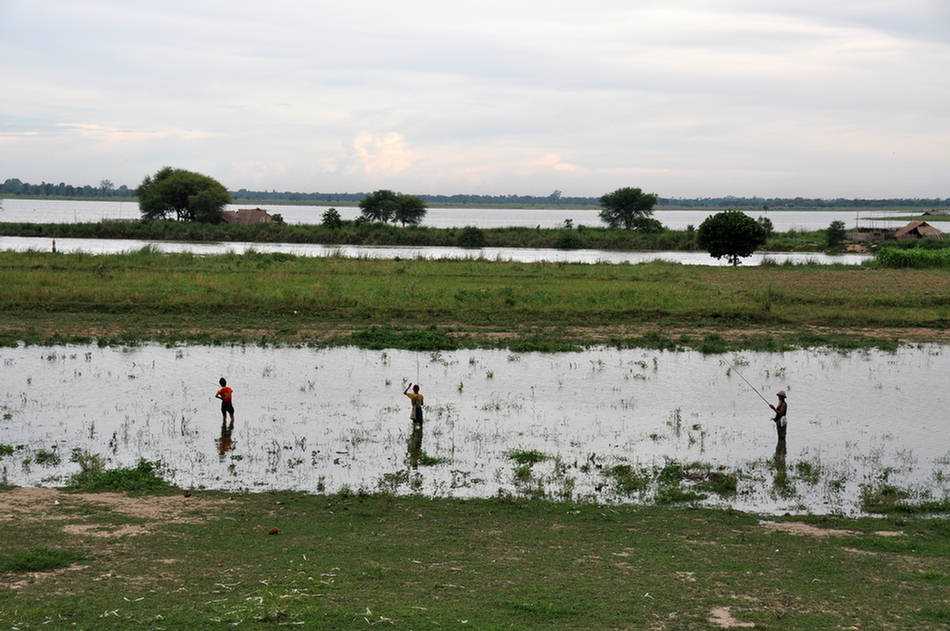
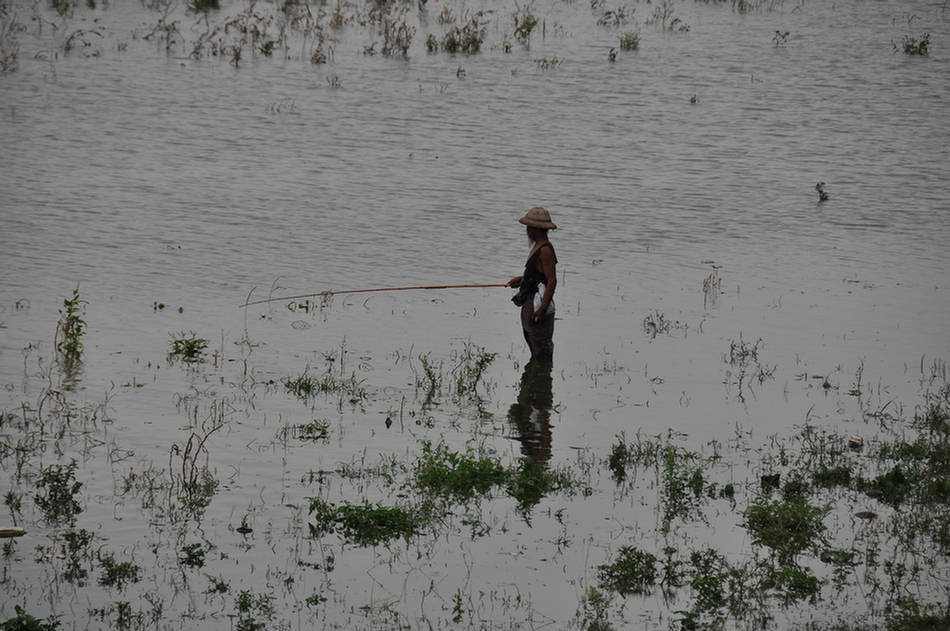
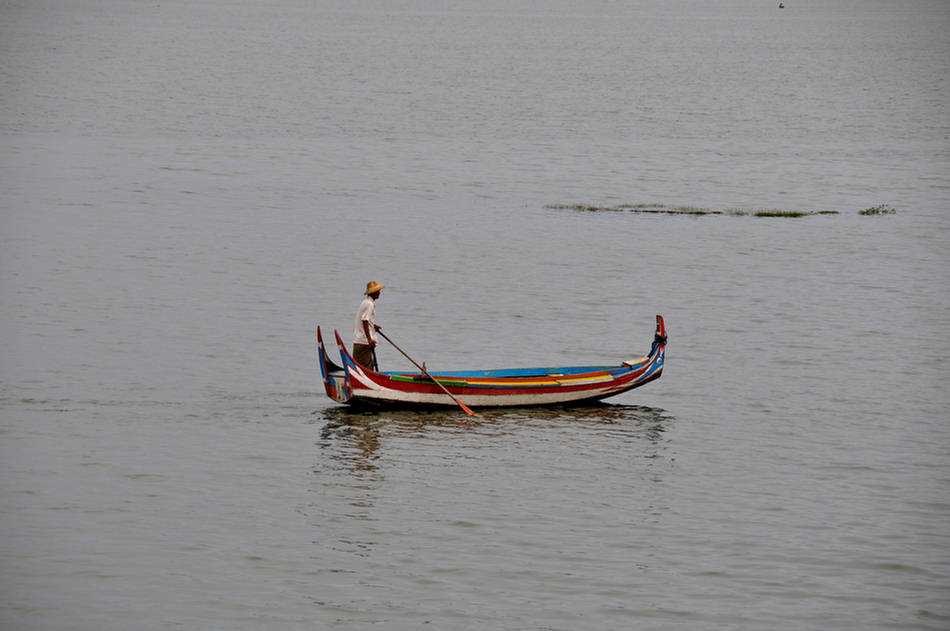
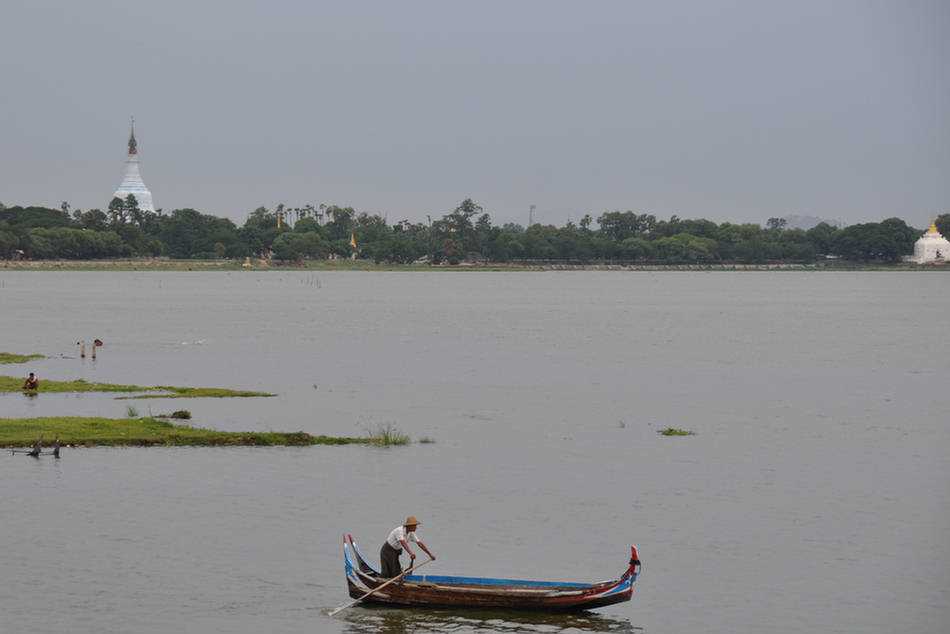
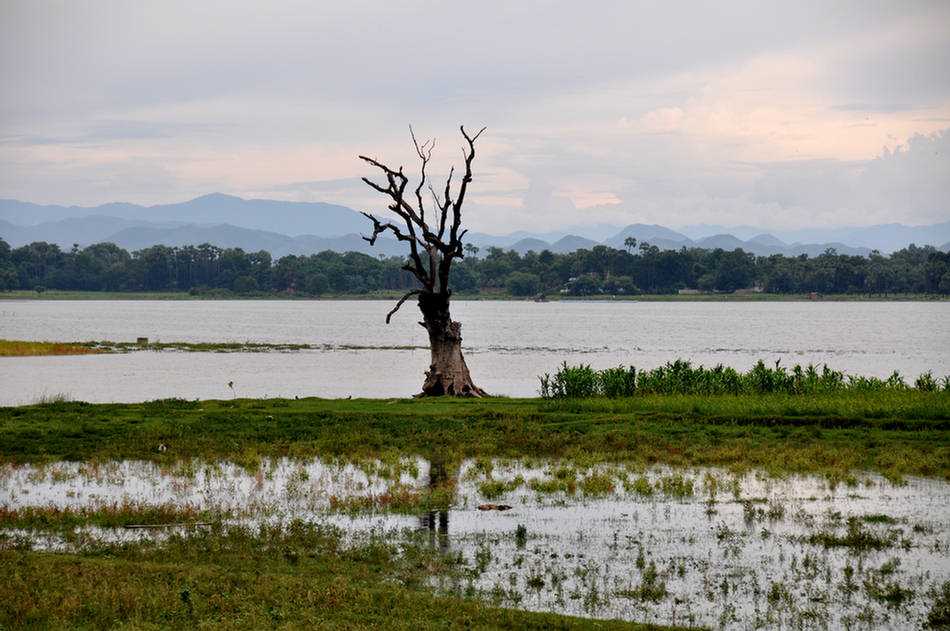
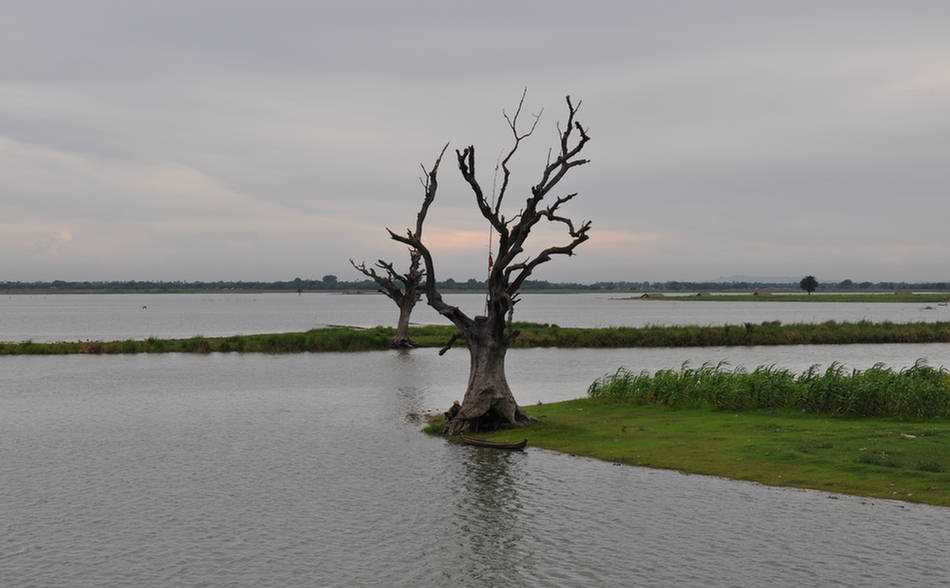
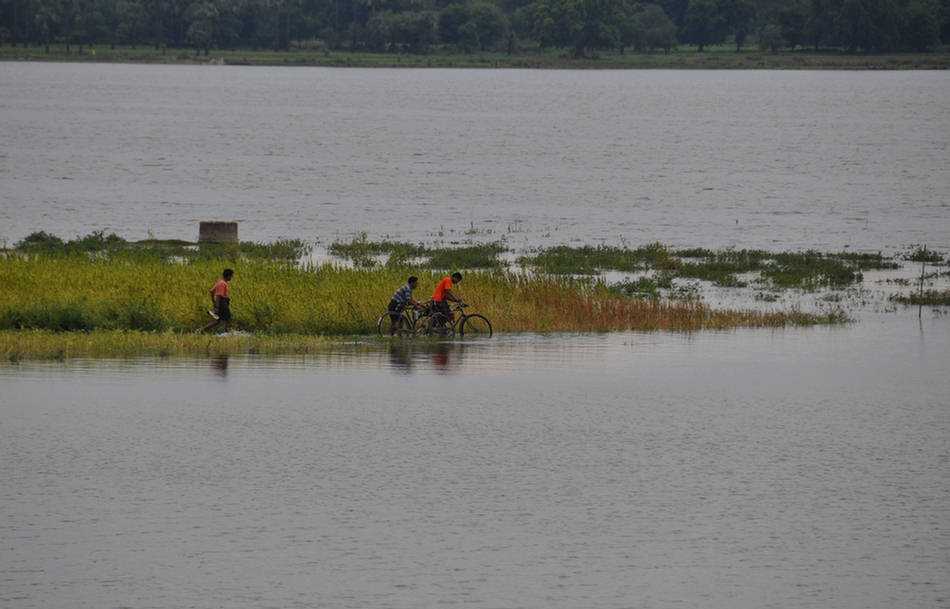
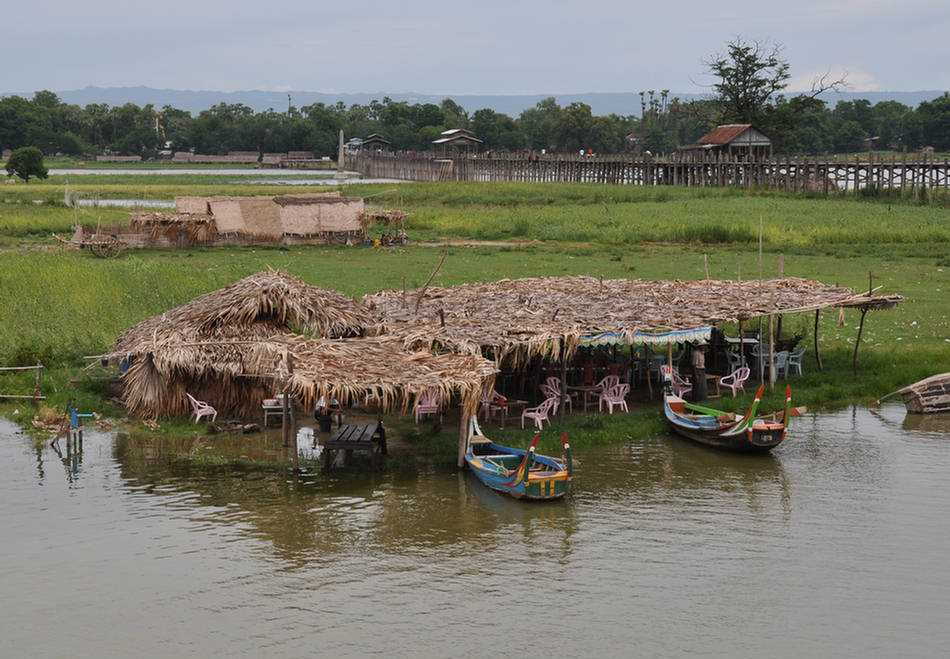
Some of the original 984 teak posts have been replaced by concrete.
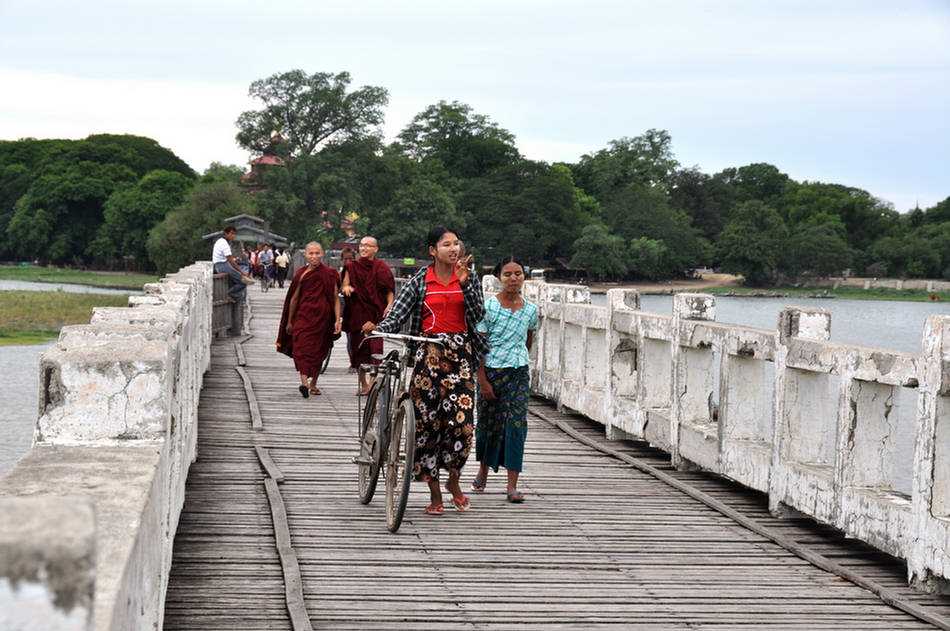
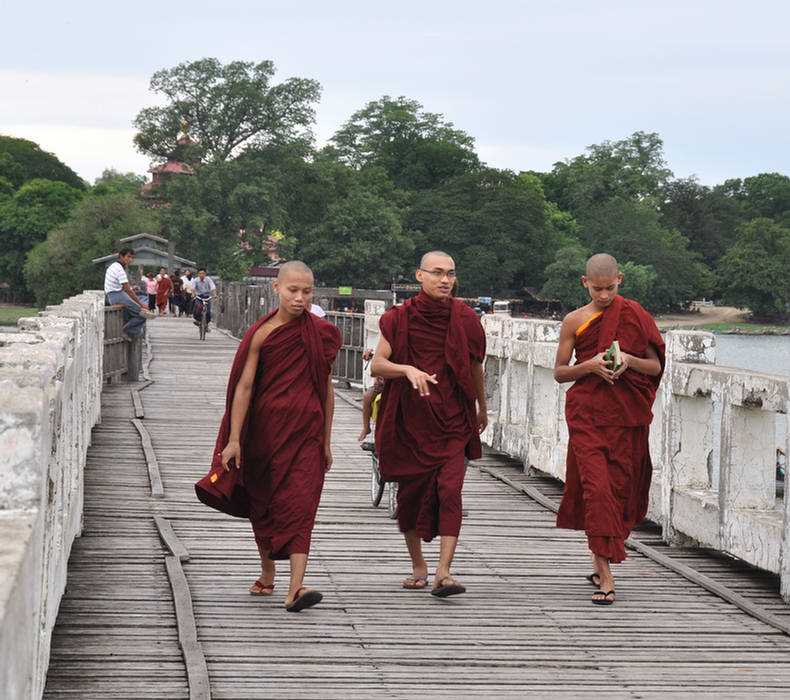
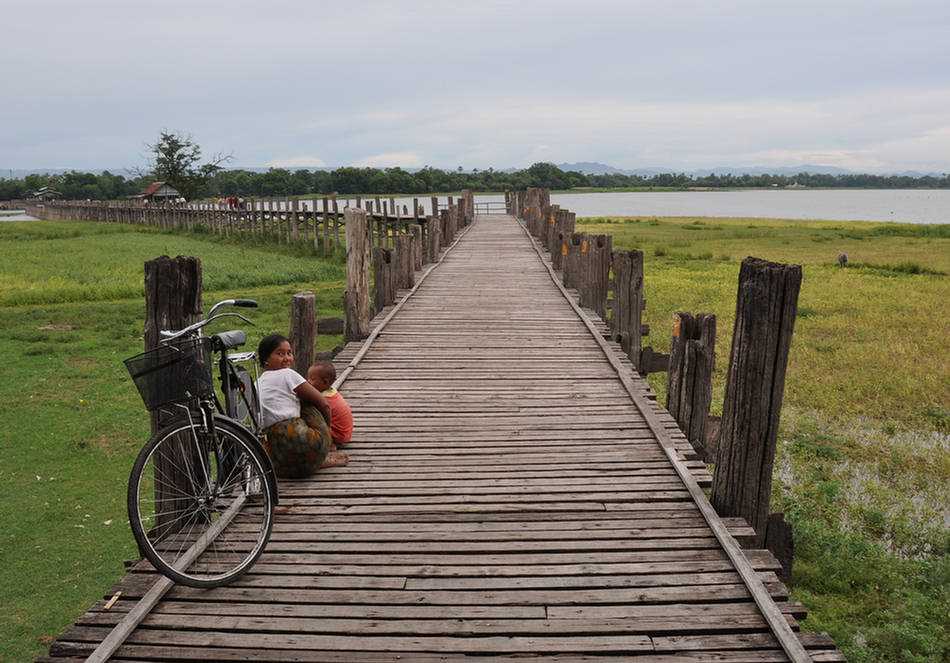
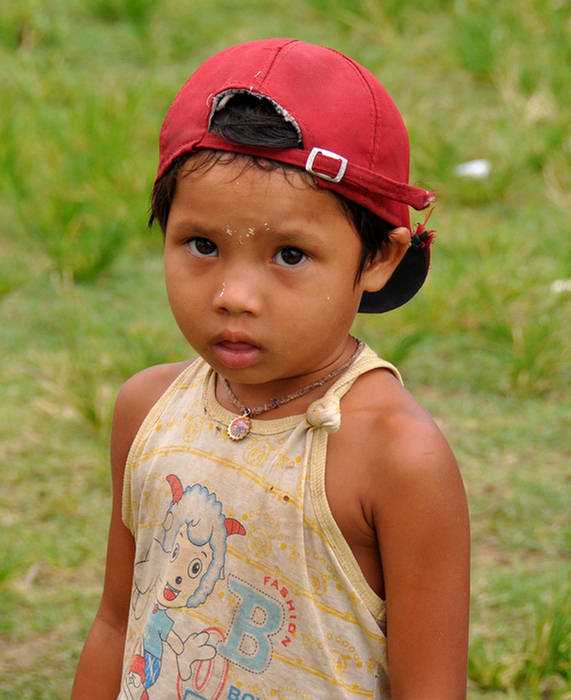
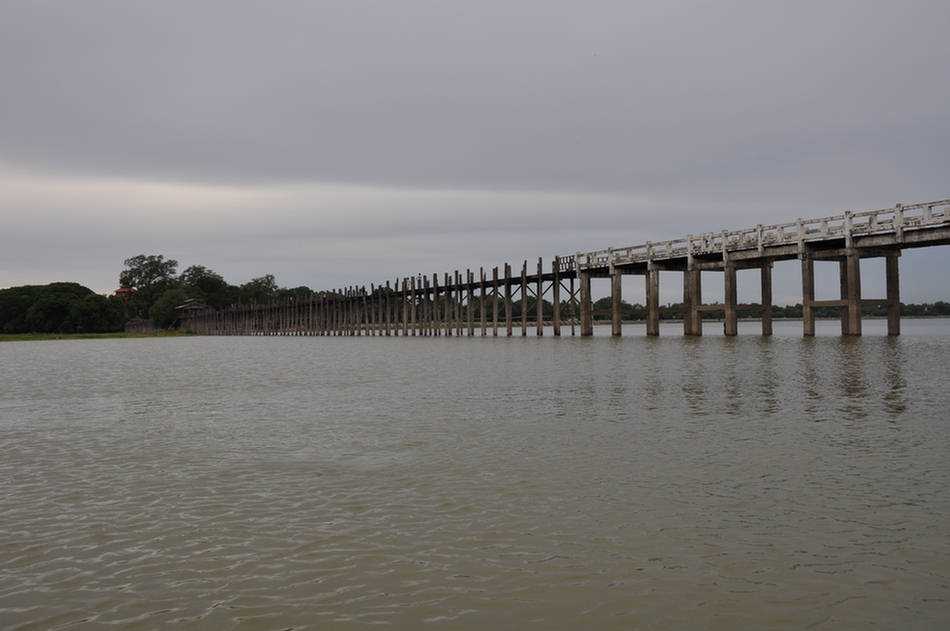
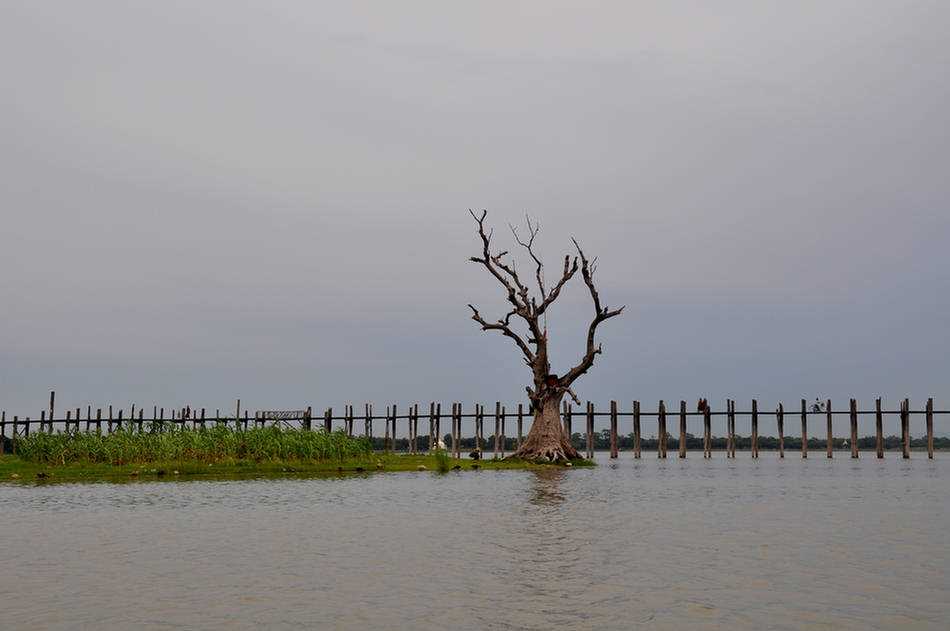
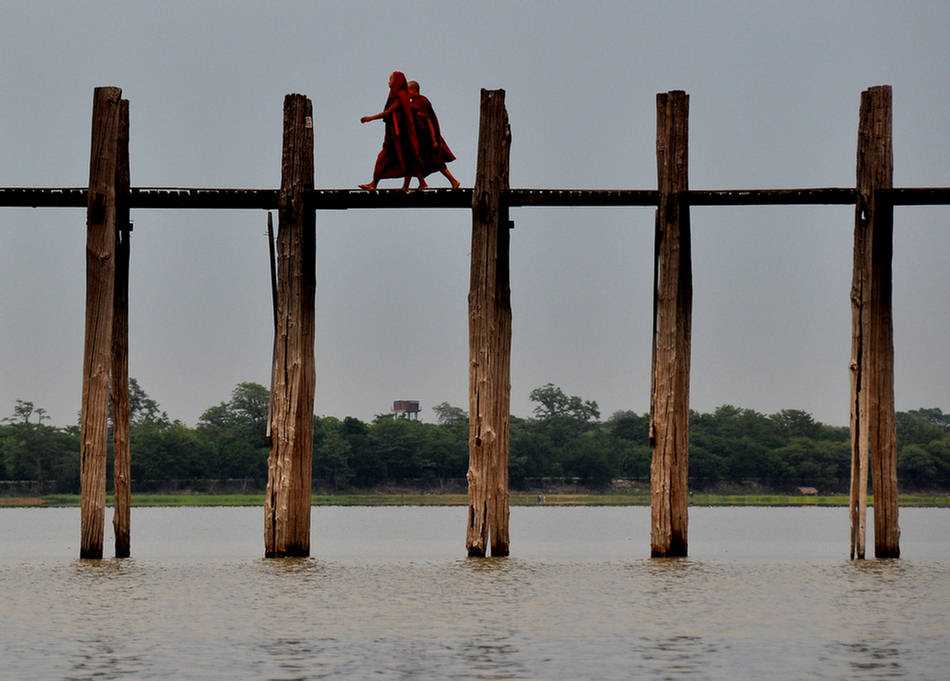
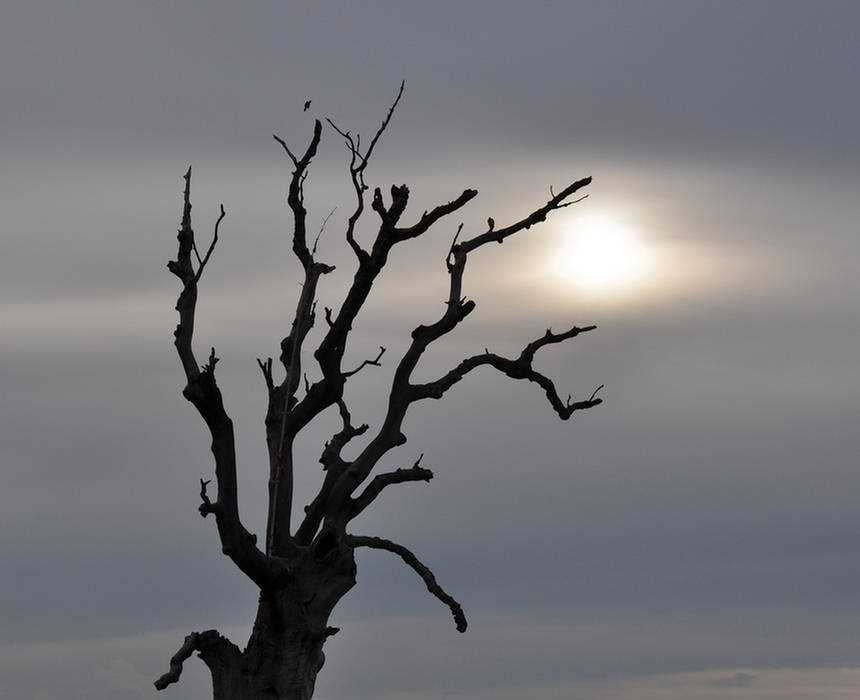
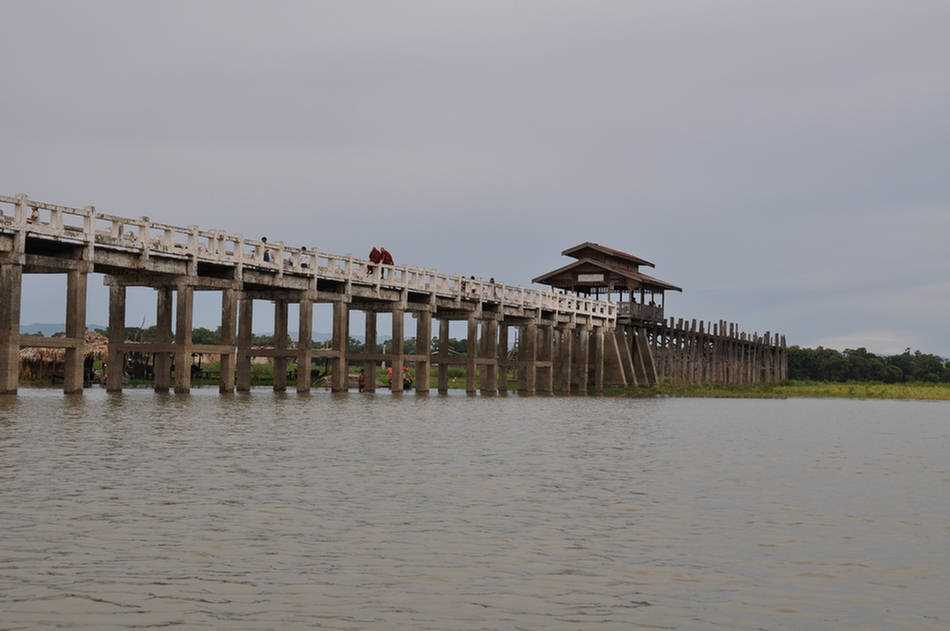
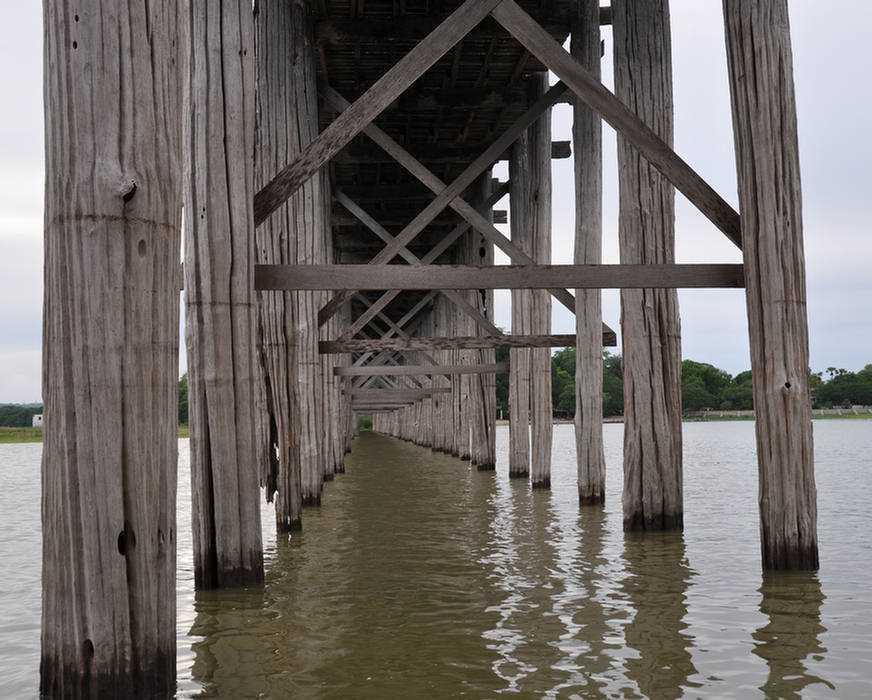
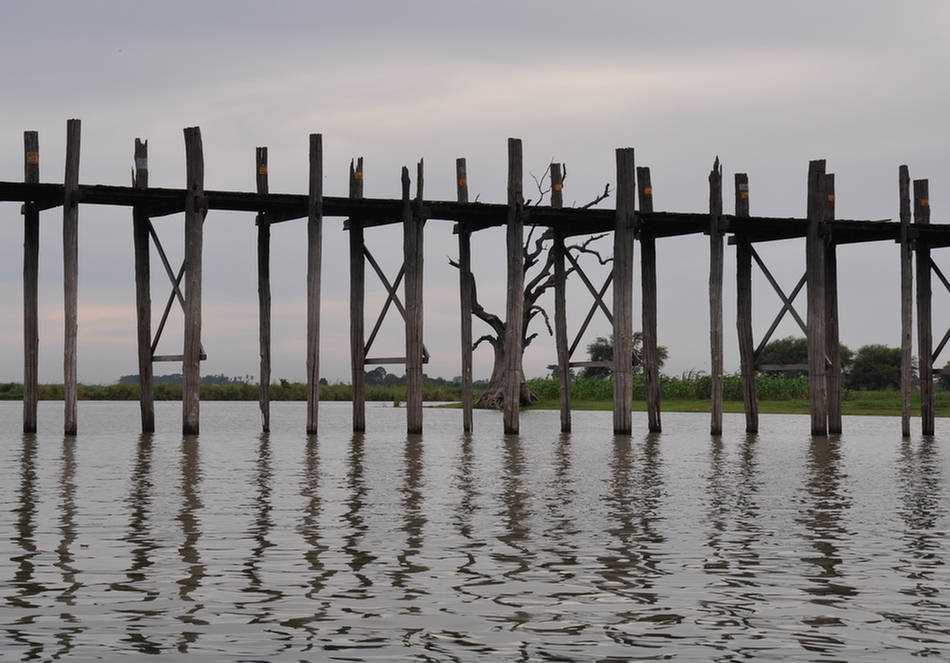
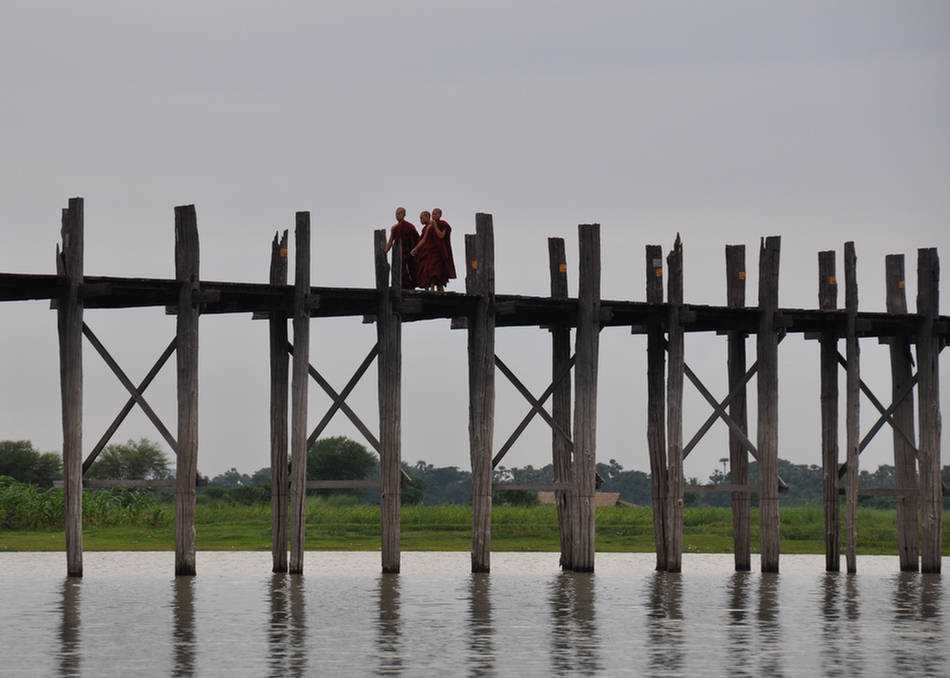
"World's Largest Book"
In the grounds of Kuthodaw Pagoda the Tipitaka Pali canon of Theravada Buddhism
(the "Buddhist Bible") is inscribed on 729 double-sided stone tablets.
Each tablet is housed in its own pagoda.
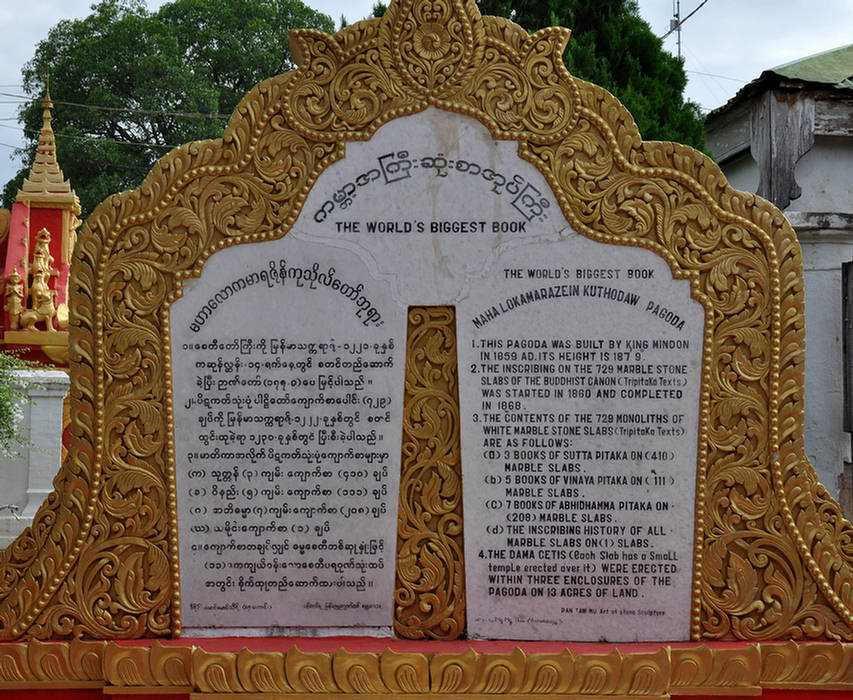
Work began in 1860 and the site was open to the public in 1868.
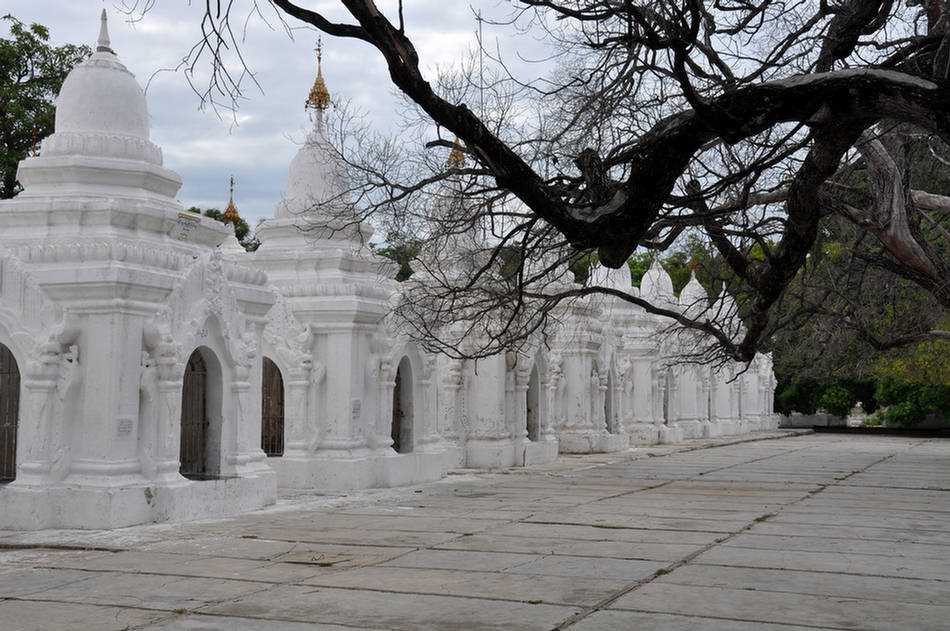
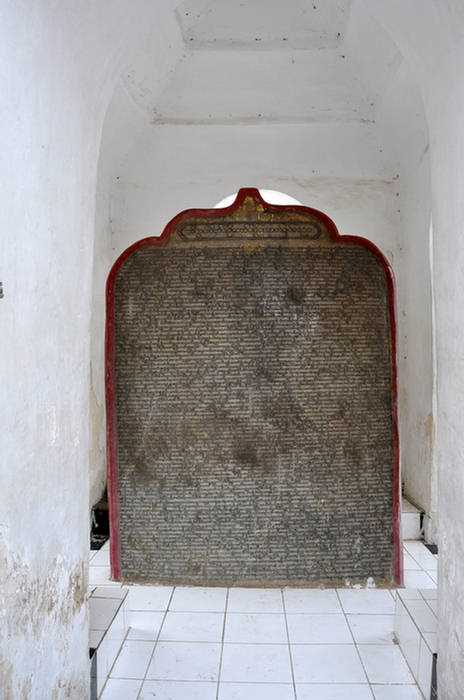
In 1900, a copy of the text on the slabs was printed.
There were 38 volumes, each of about 400 pages.
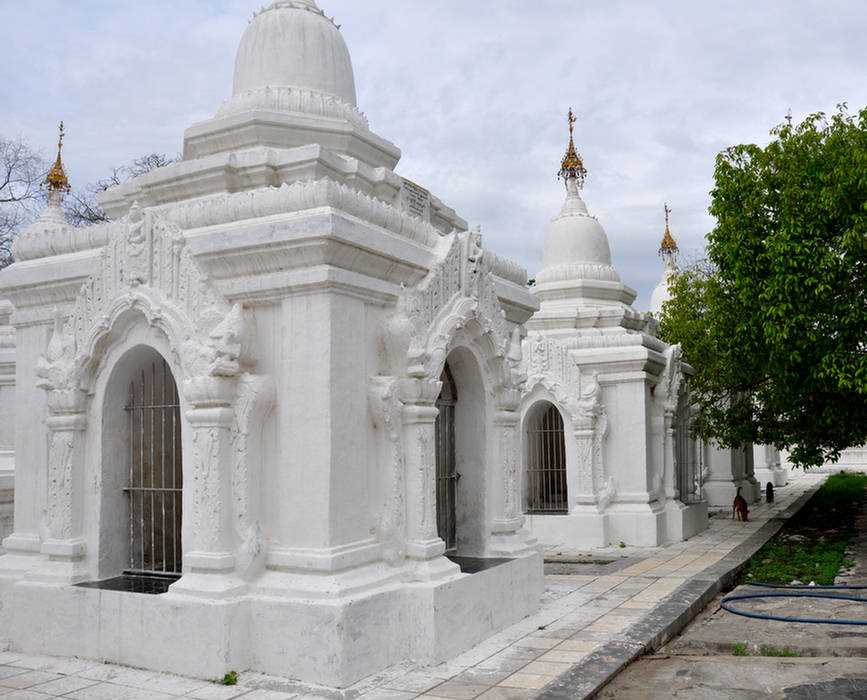
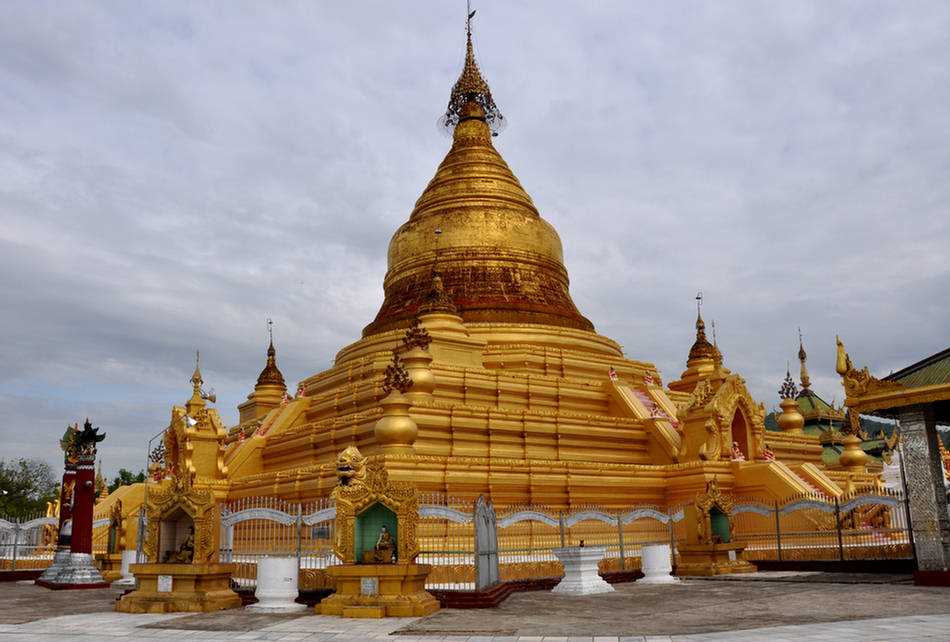
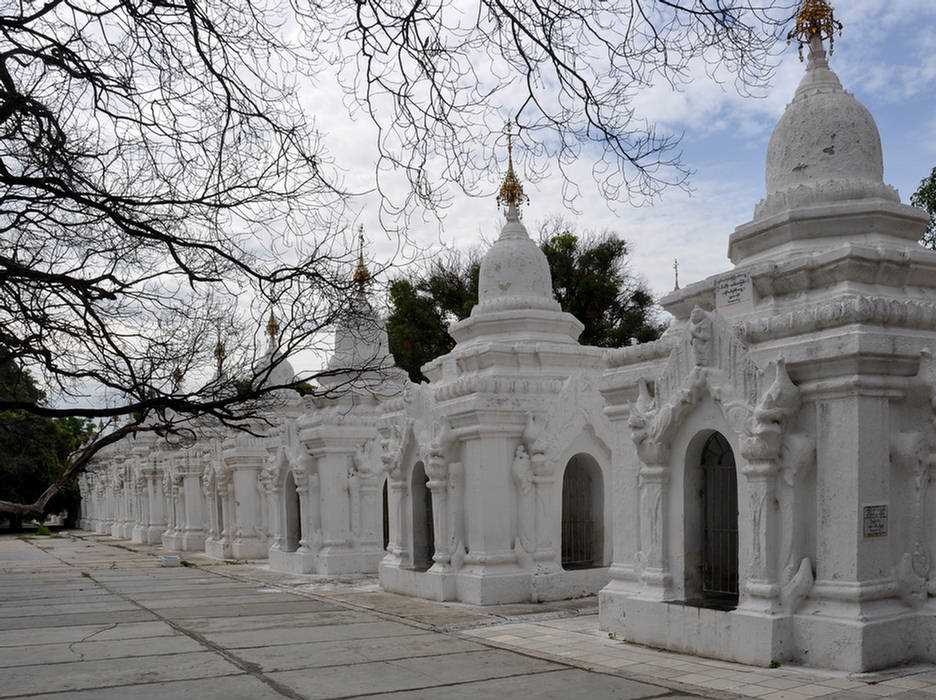
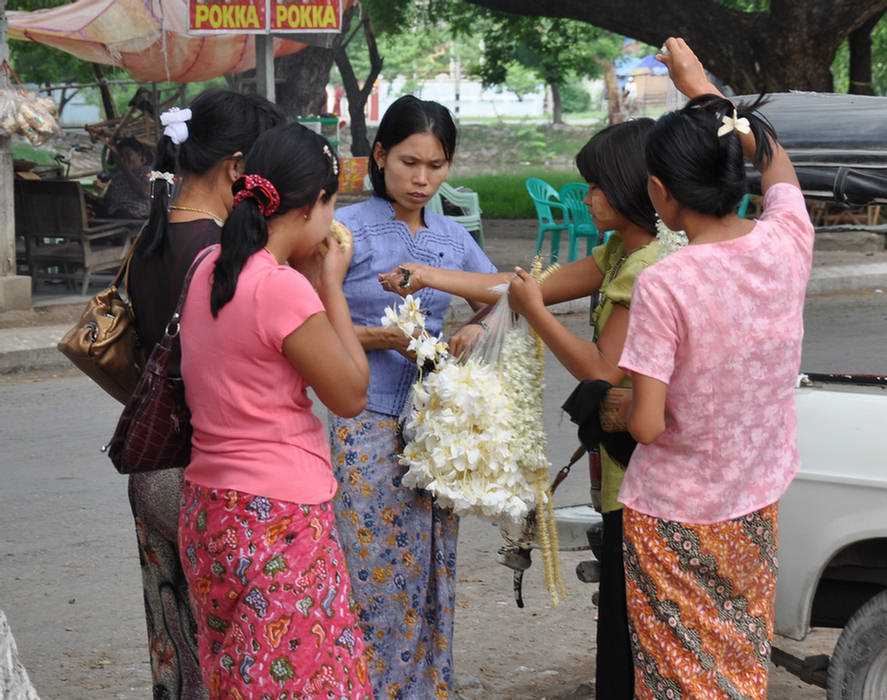
The Mandalay Palace was the last palace of the last Burmese Monarchy.
It occupied a 2km by 2km area in the centre of Mandalay.
It was a walled fort surrounded by a 64m wide moat.
The palace was constructed, between 1857 and 1859 as part of King Mindon's
founding of the new royal capital city of Mandalay.
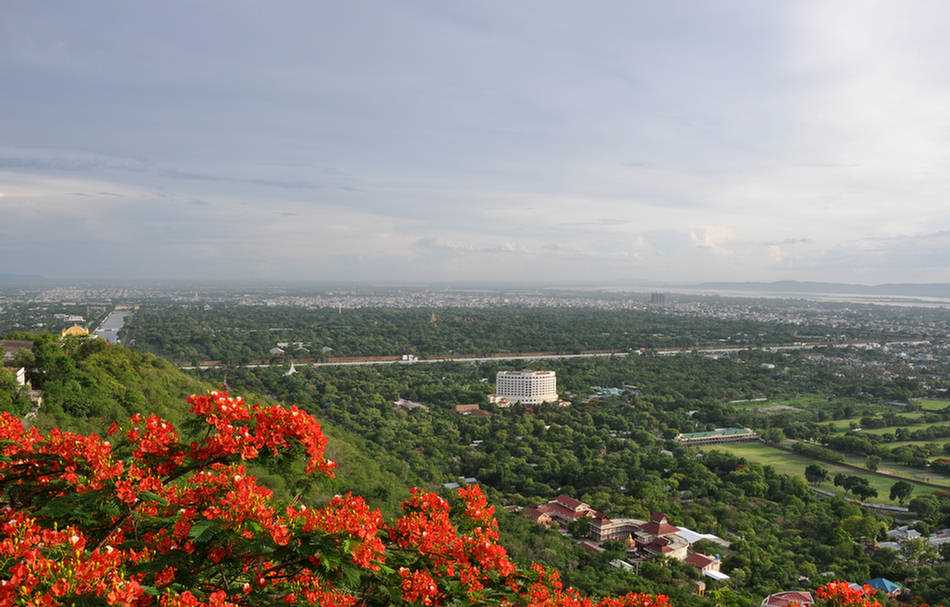
In 1885 the British entered the palace and captured the royal family,
officially ending the Third Anglo-Burmese War.
The British looted the palace, and turned the palace compound into Fort Dufferin.
It was occupied by the Japanese during World War 2 and most of it was destroyed by Allied bombing.
This is a replica of part of the palace which was built in the 1990s.
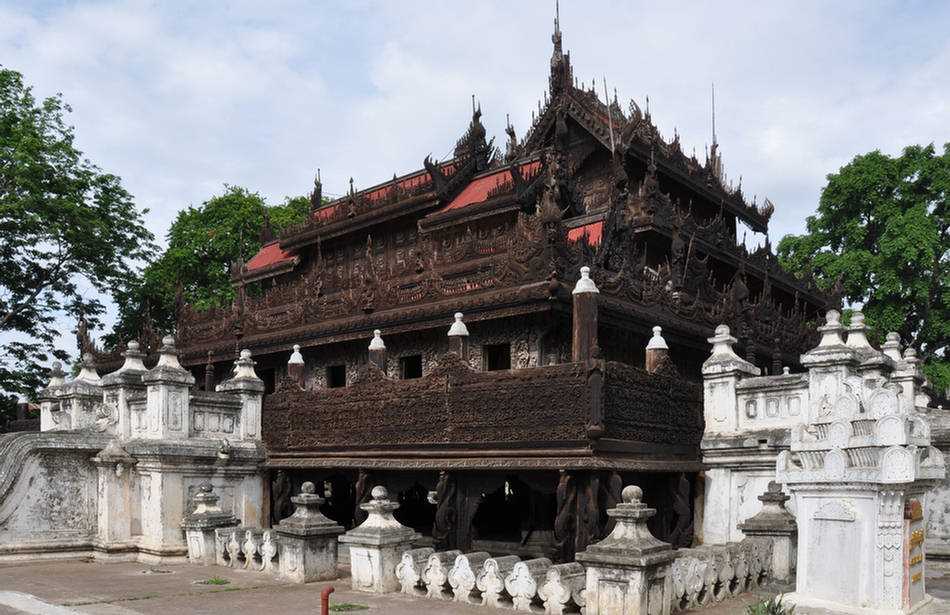
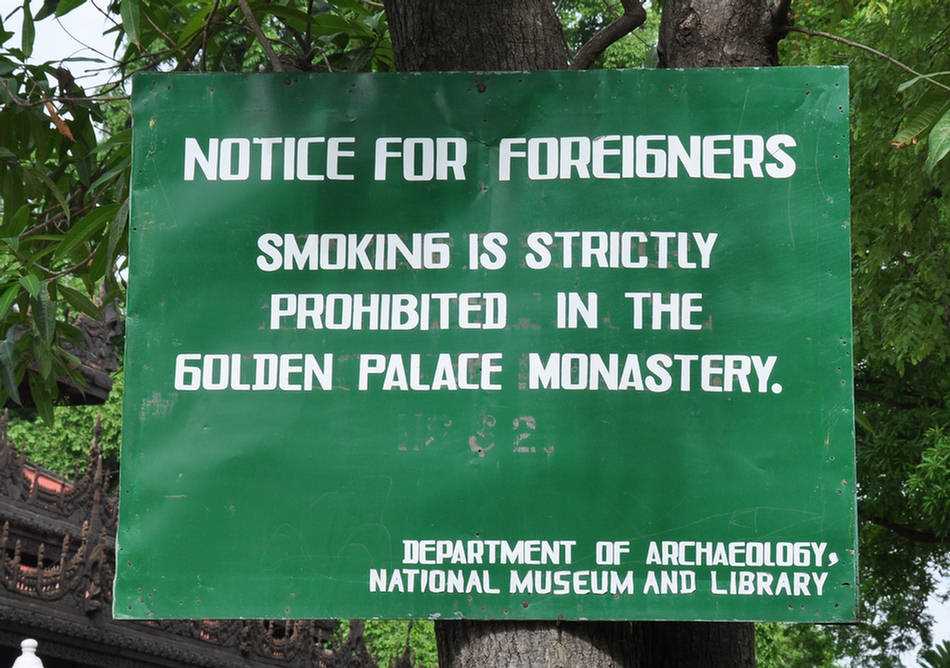
Sandamuni Pagoda, which was constructed from 1874, bears a resemblance to the nearby Kuthodaw Pagoda
because of the large number of slender whitewashed ancillary stupas.
The stupas enclose marble slabs which have commentaries about the Tripitaka (the "Buddhist Bible") on them.
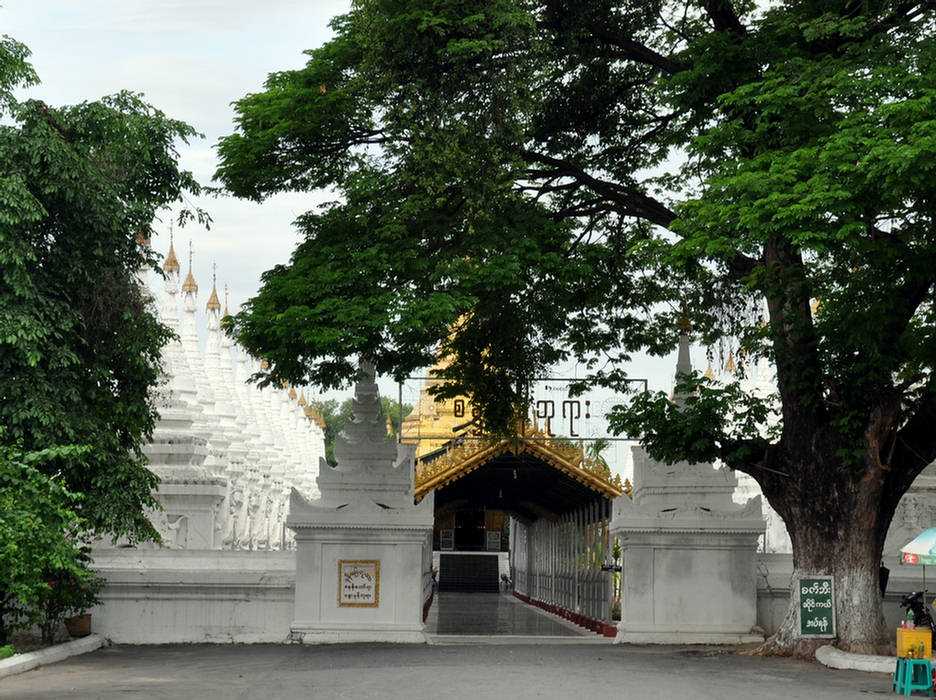
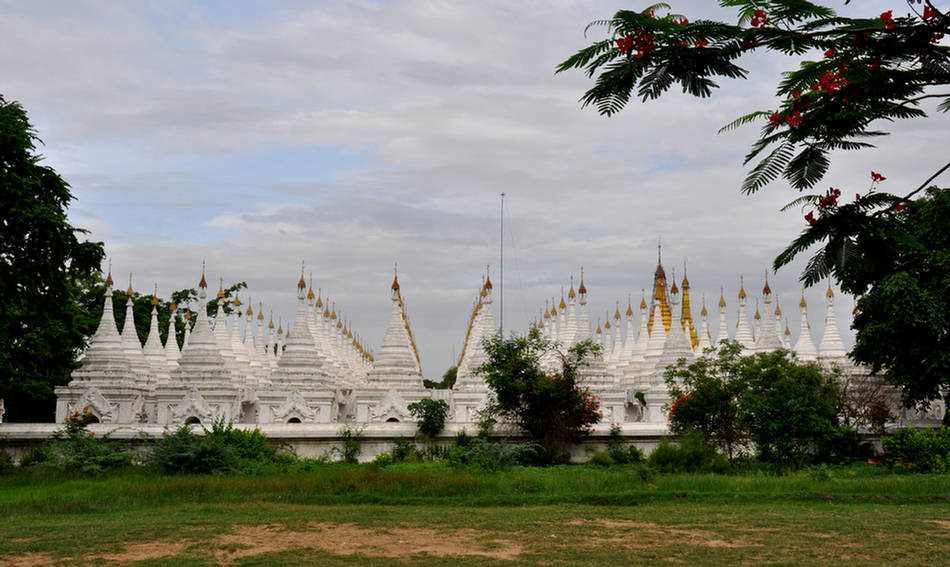
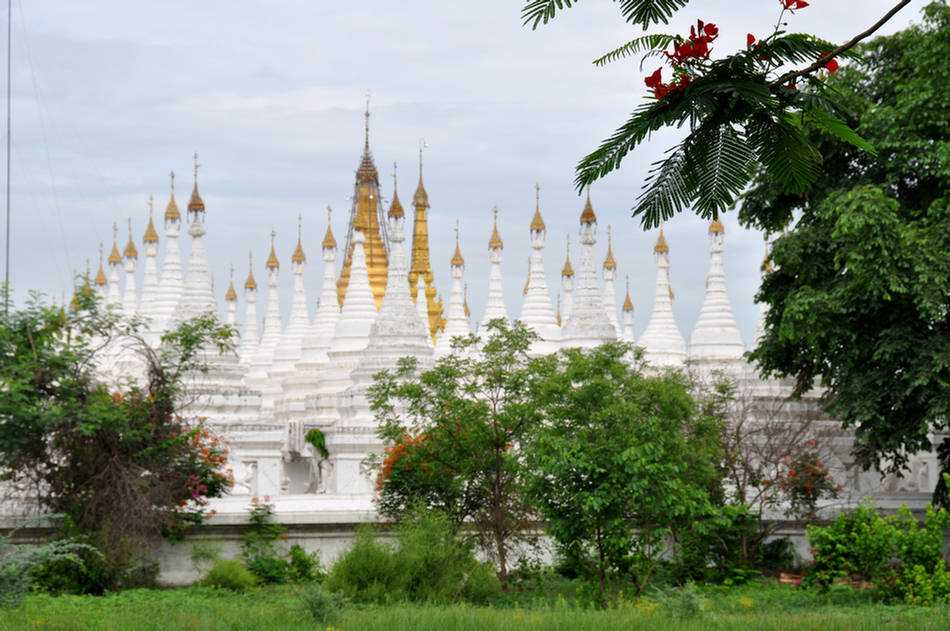
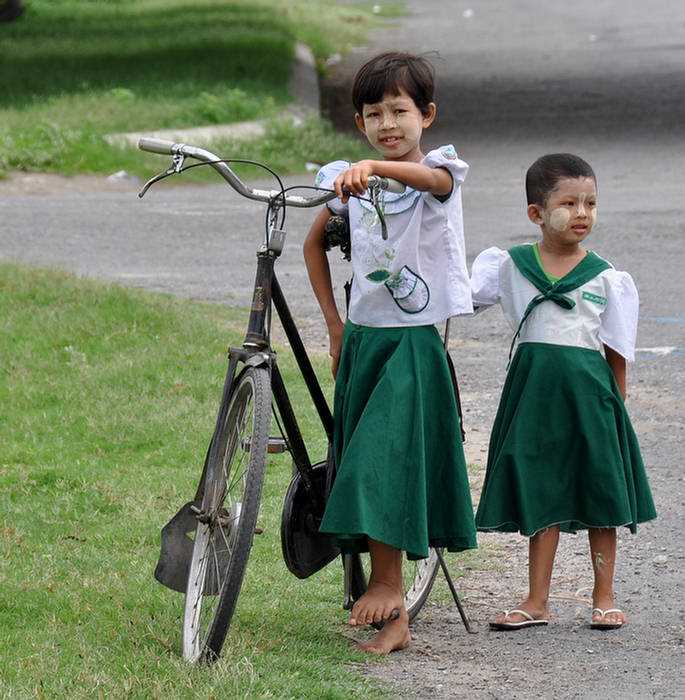
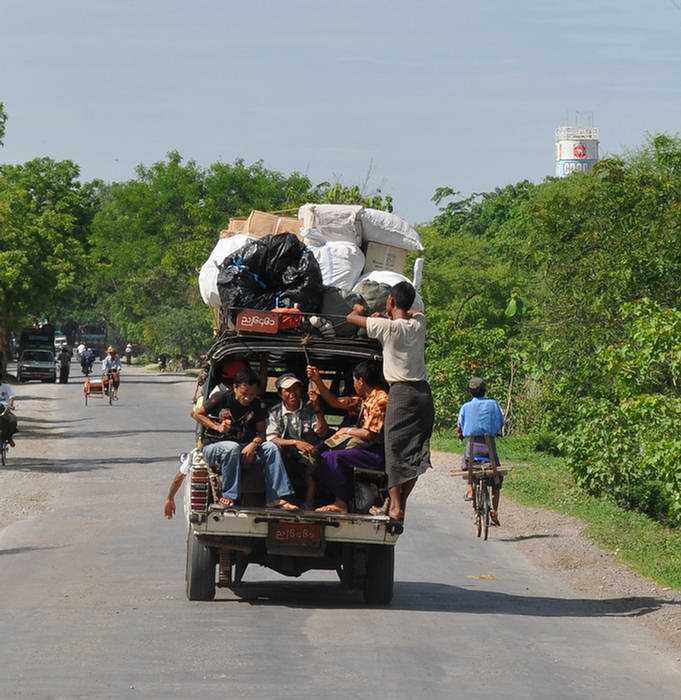
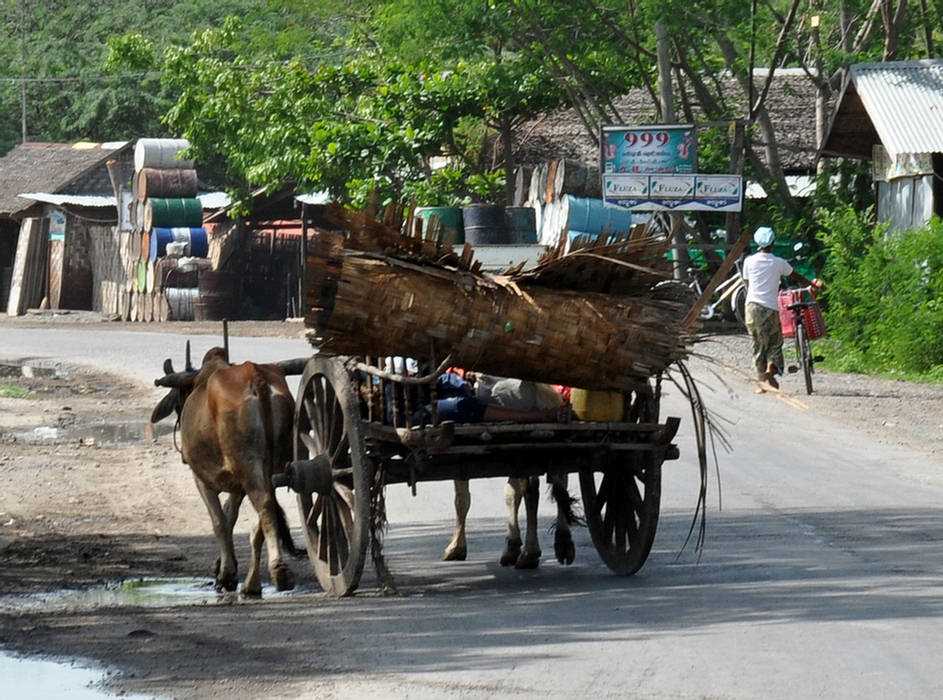
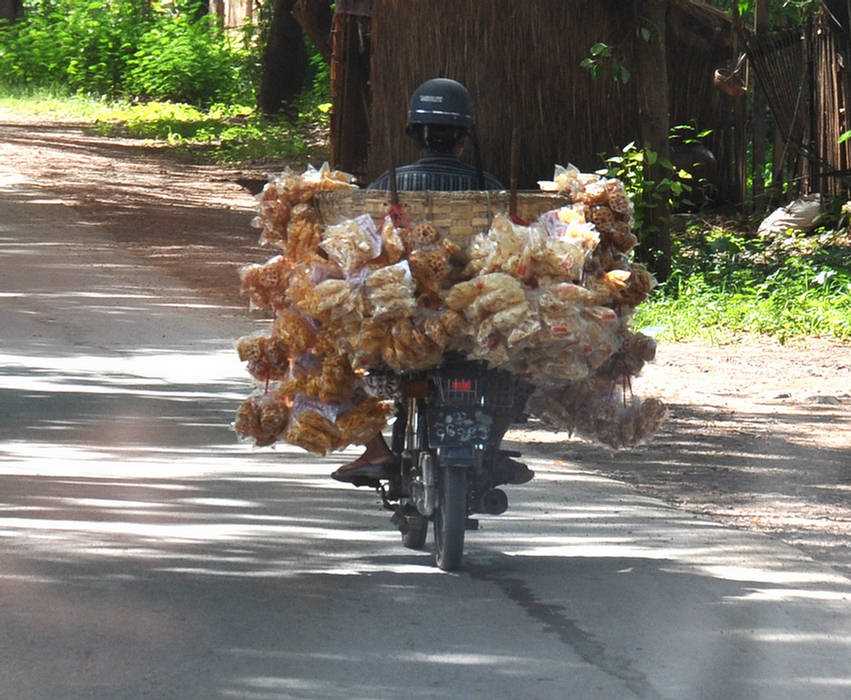
Pyin Oo Lwin
To escape the summer heat, the British established a hill station in the mountains that they called Maymyo.
About 70km east of Mandalay, it was the summer capital of British Burma.
The Burmese regime has renamed it Pyin Oo Lwin.
Many fine colonial buildings remain in the town.
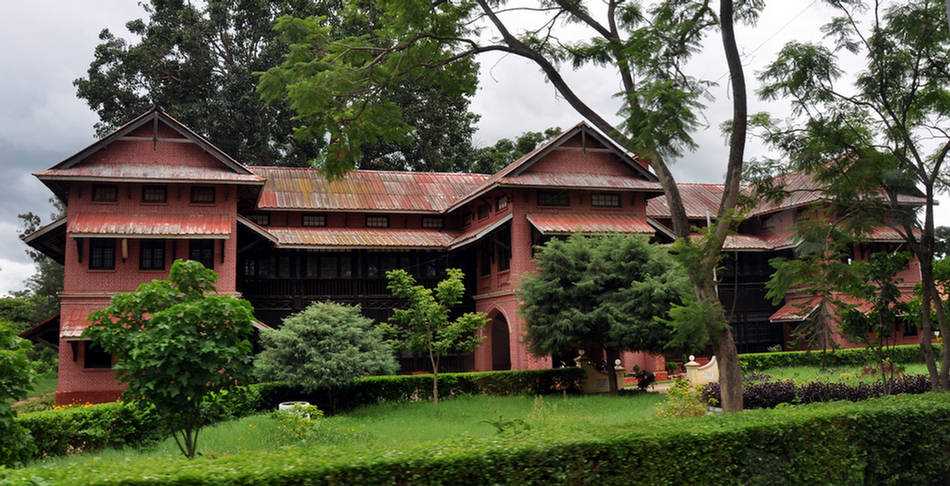
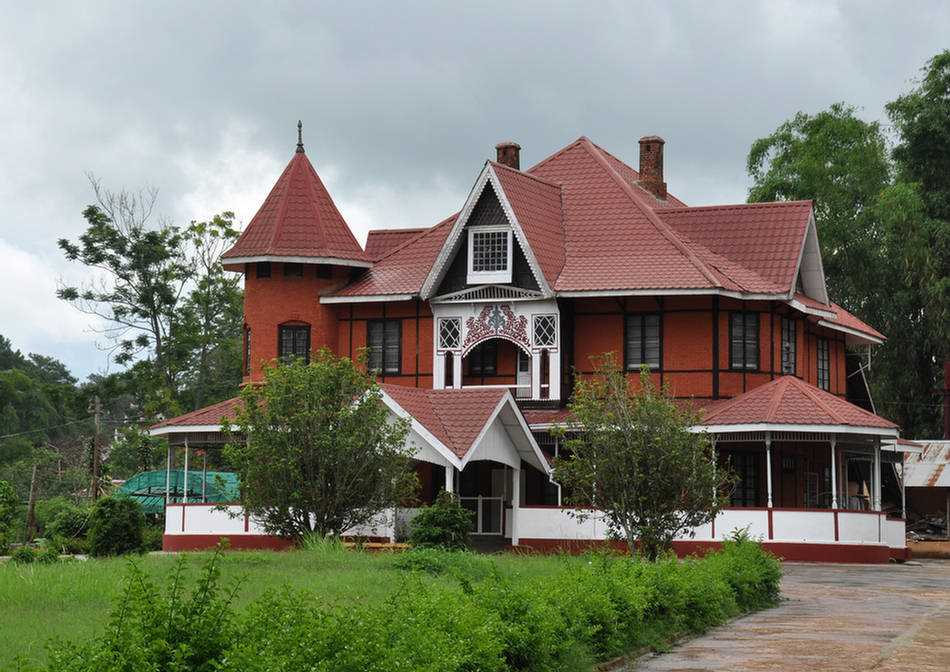
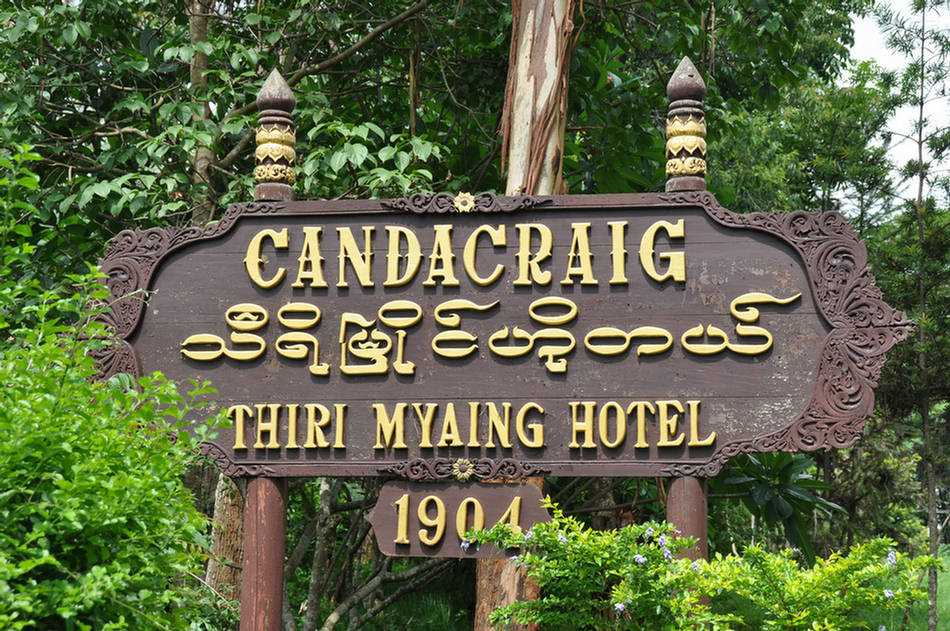
A 106 year old hotel.
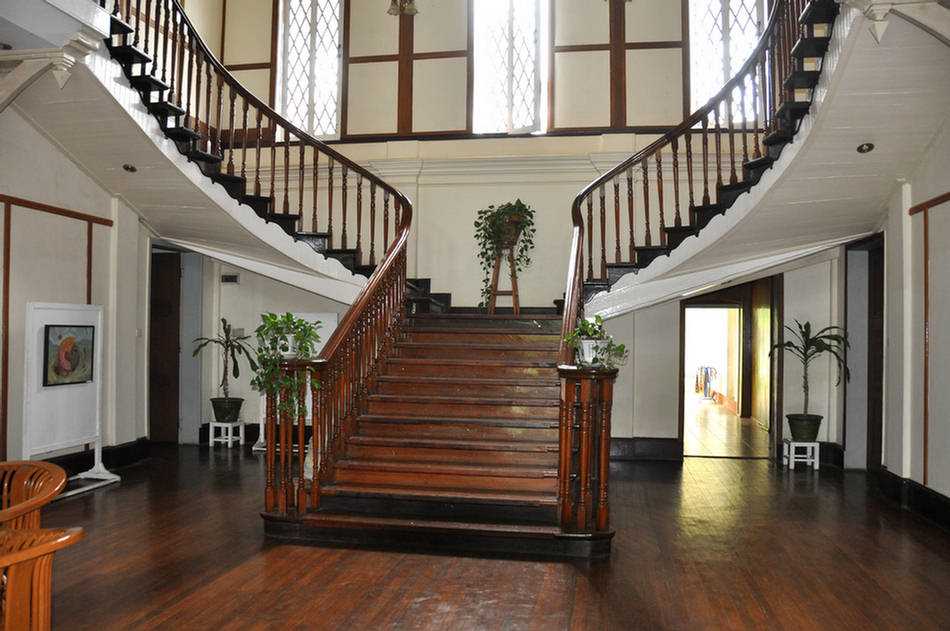
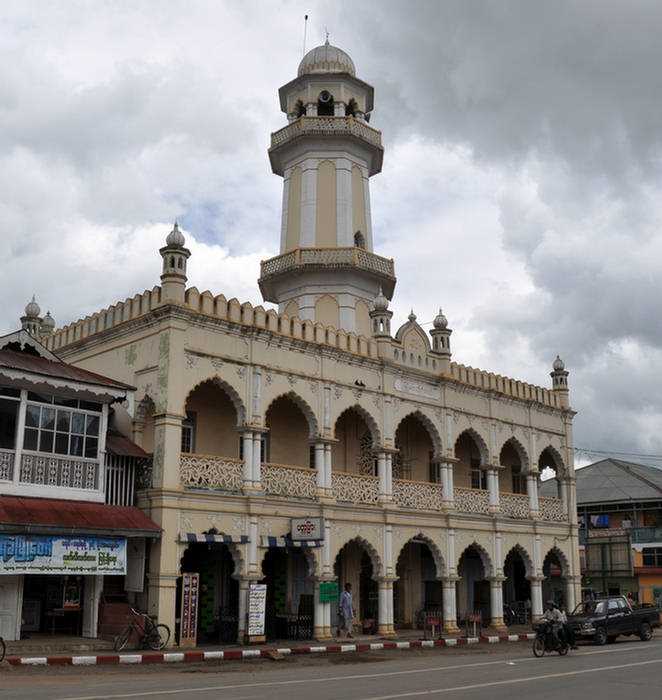
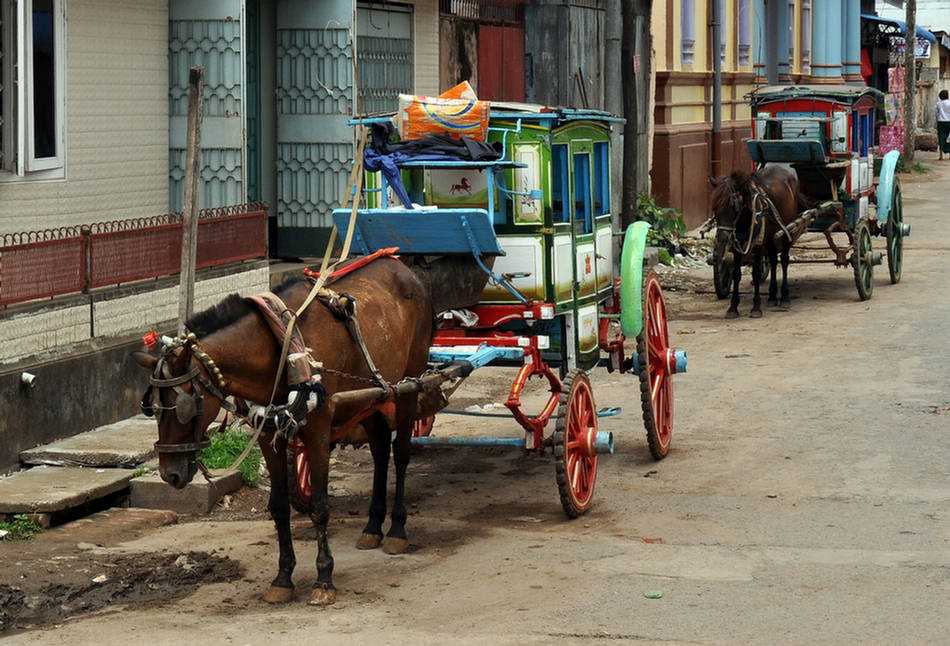
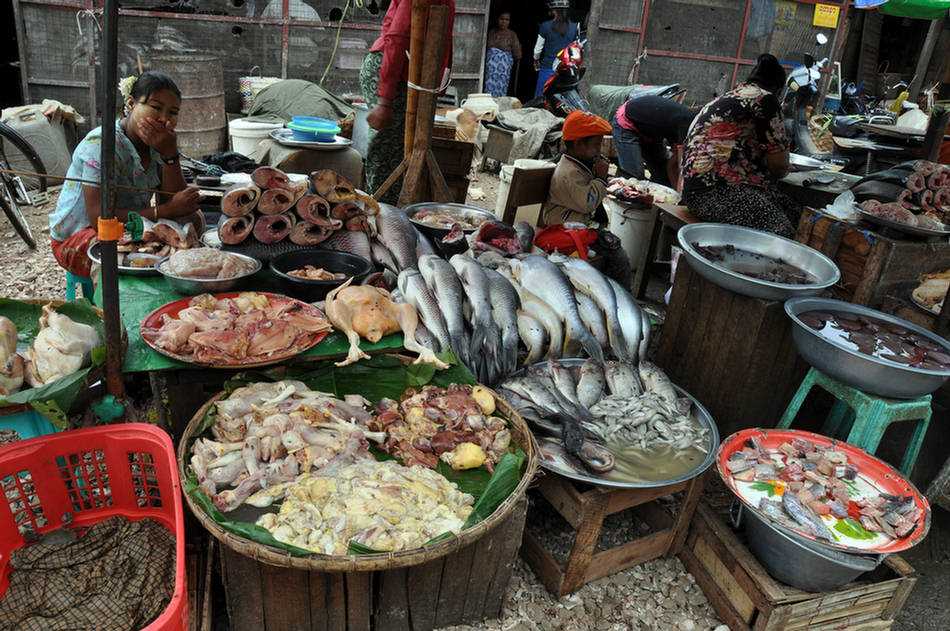
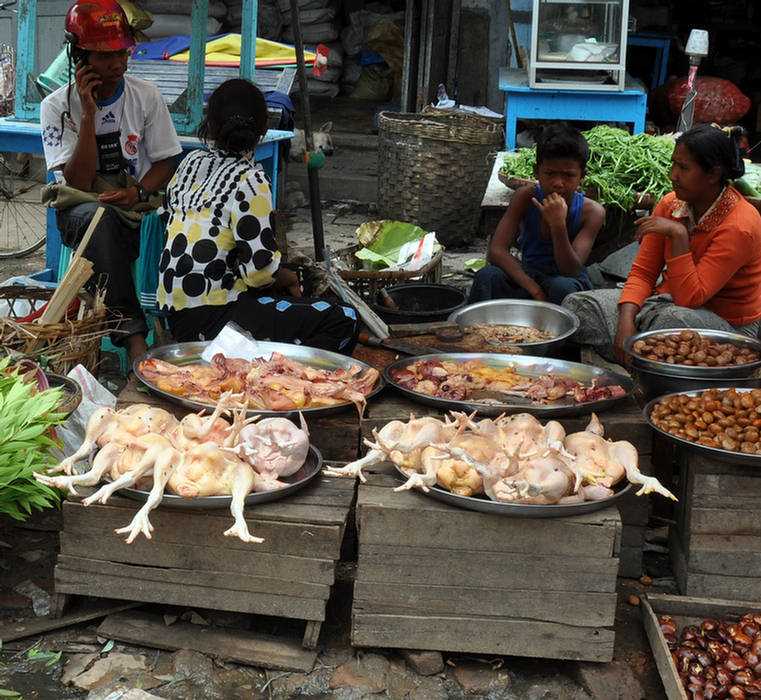
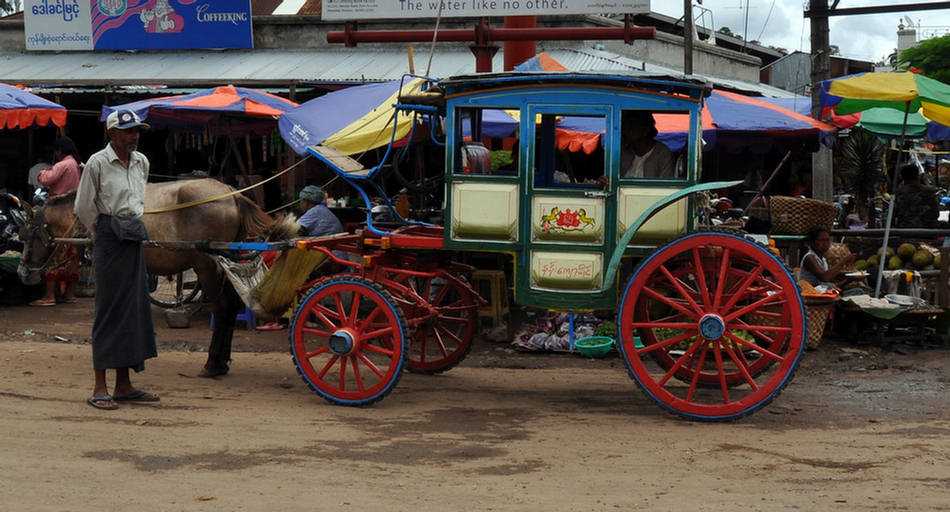
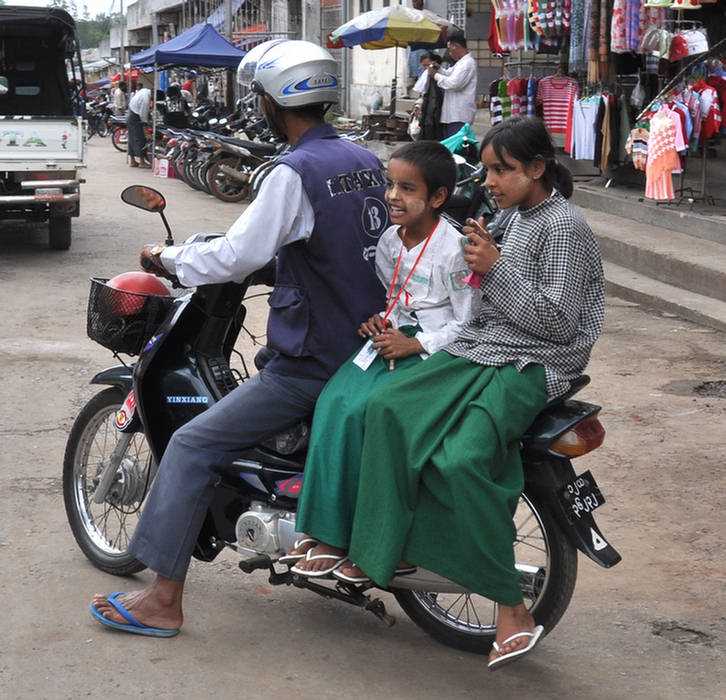
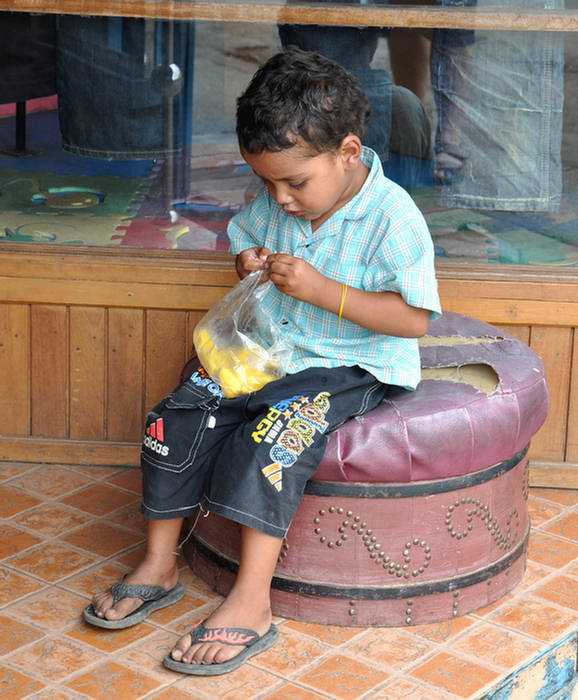
Only in December?
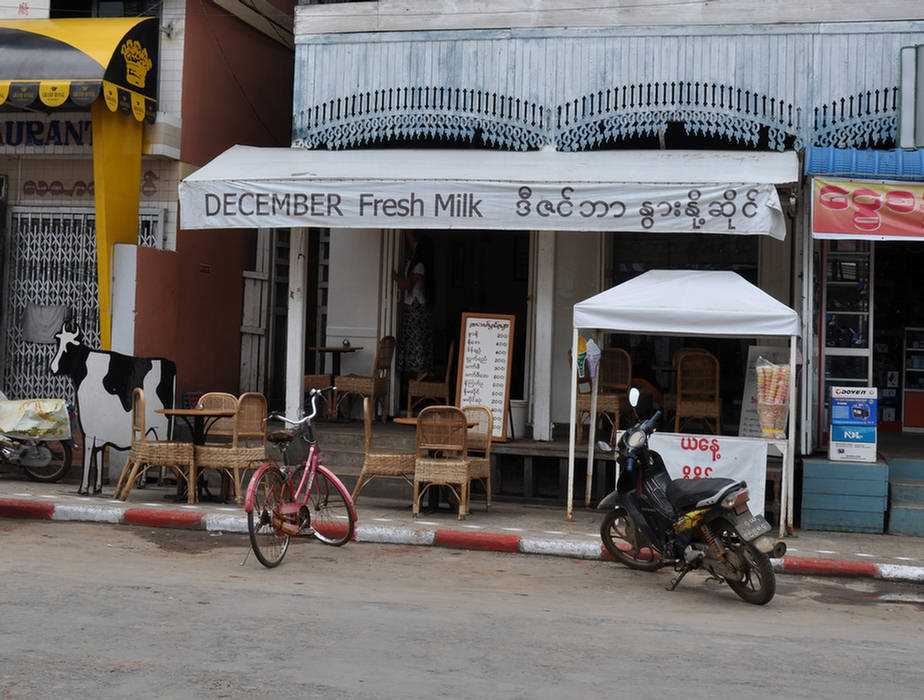
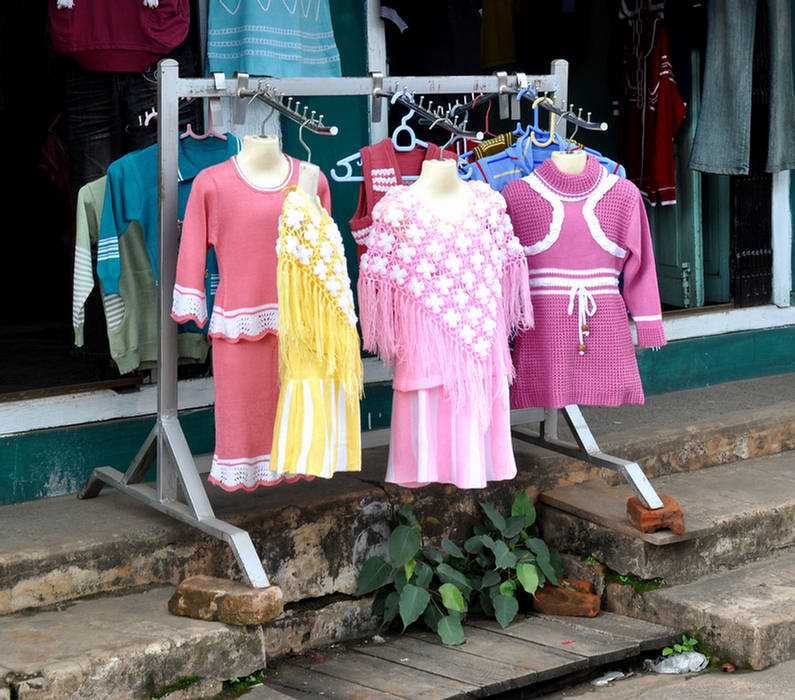
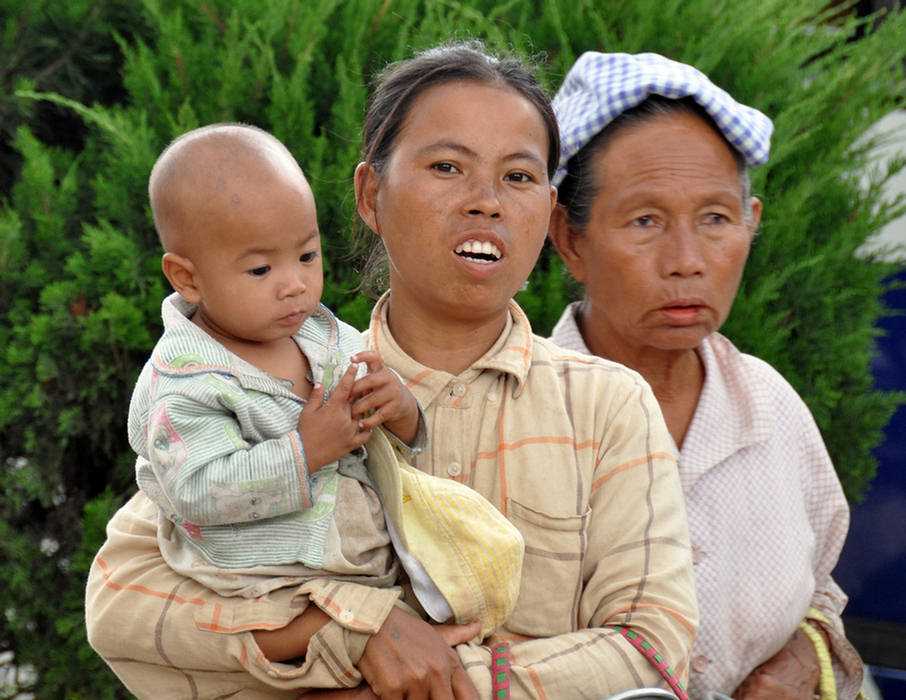
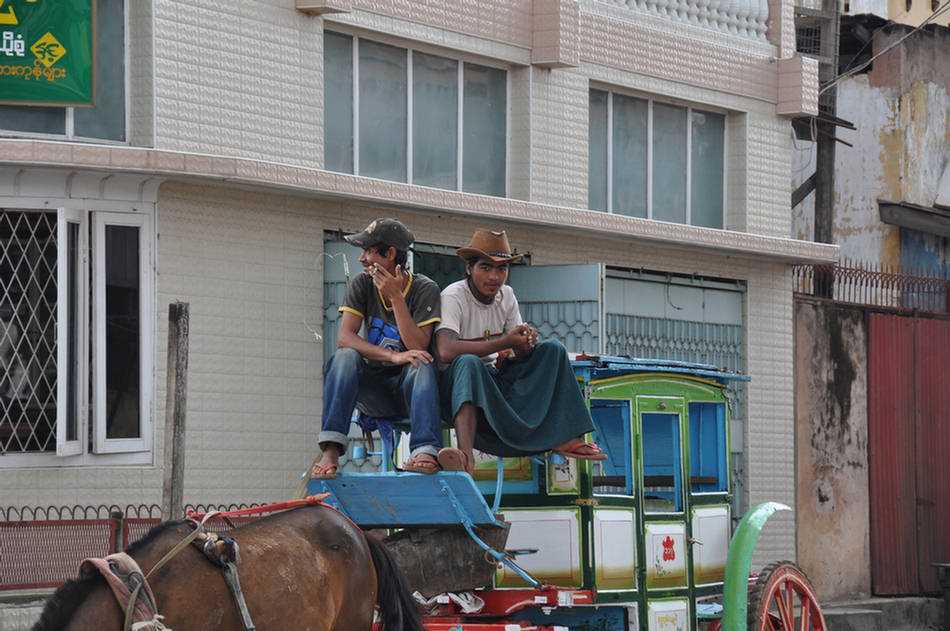
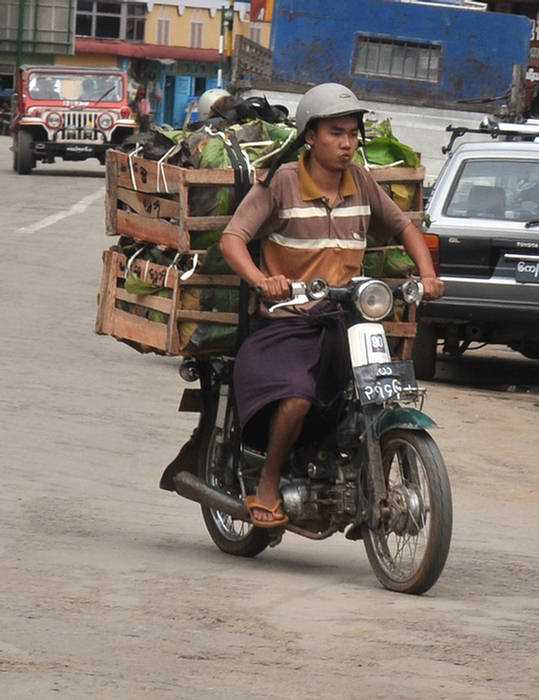
Jackfruit.
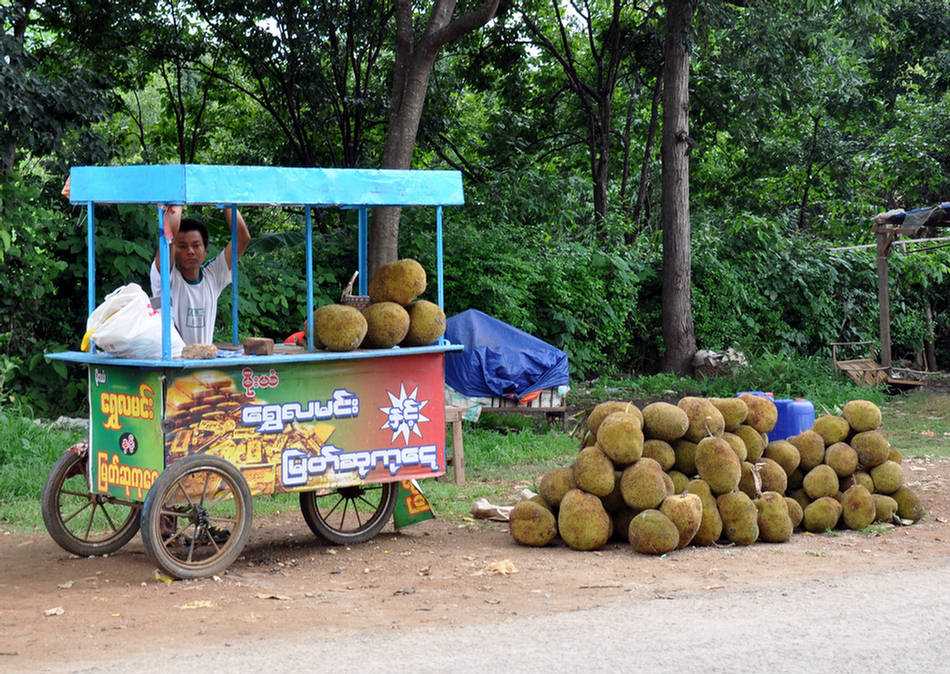
At this Buddhist temple in Pyin U Lwin they were studying traditional medicine.
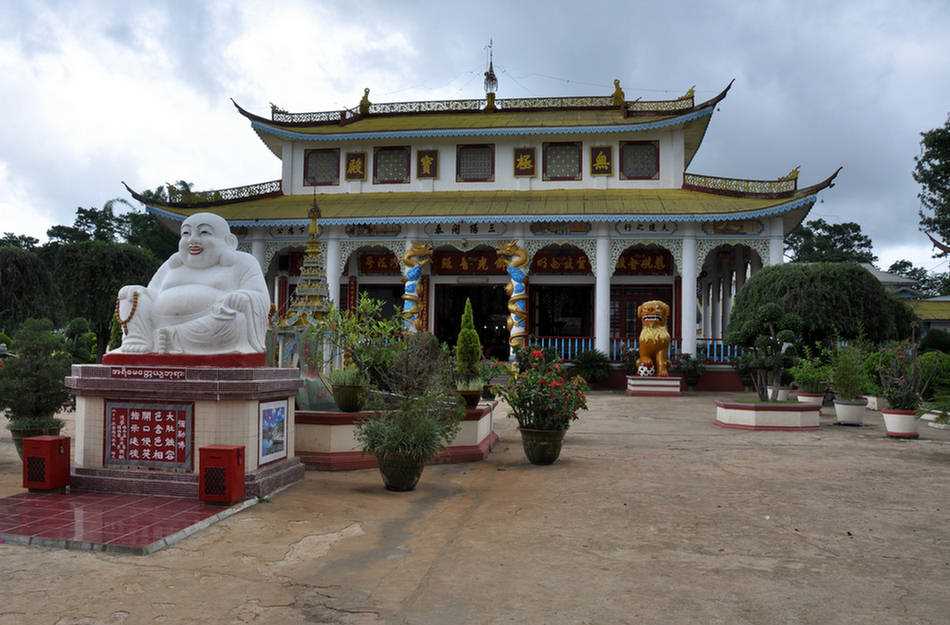
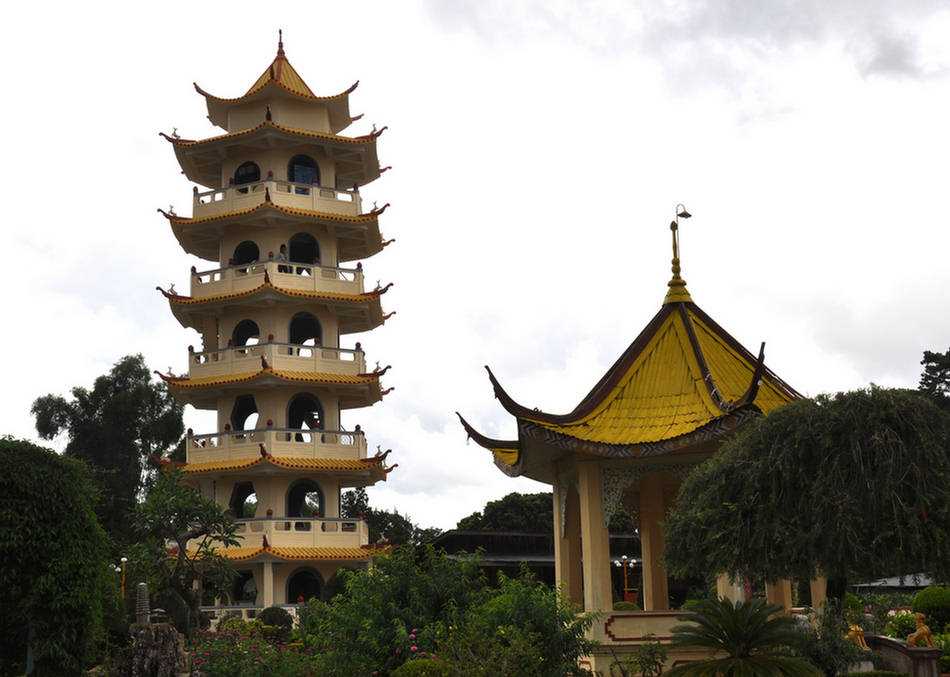
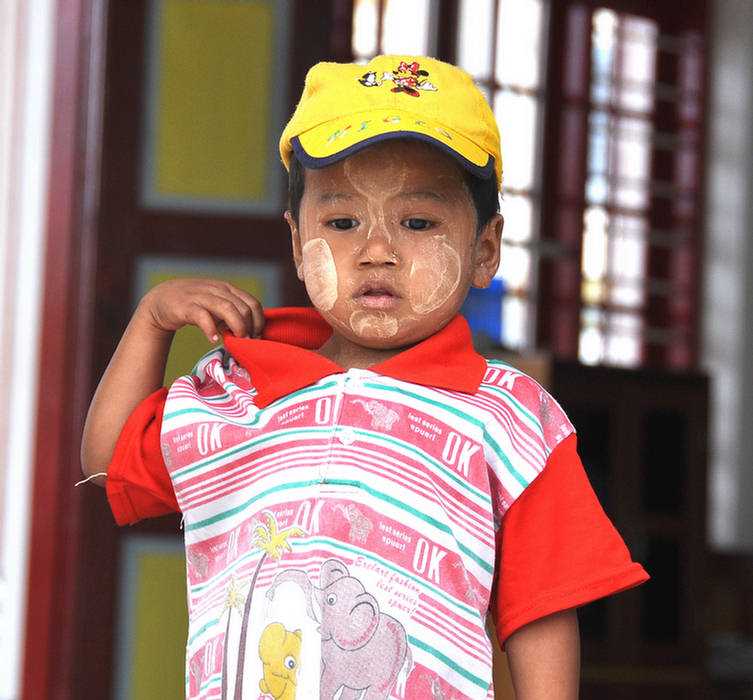
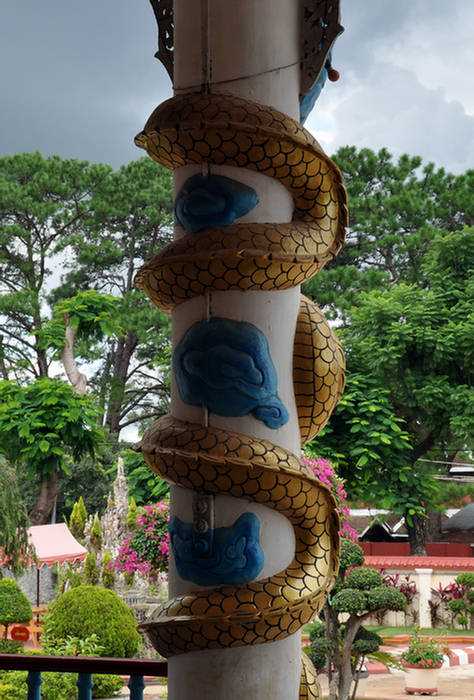
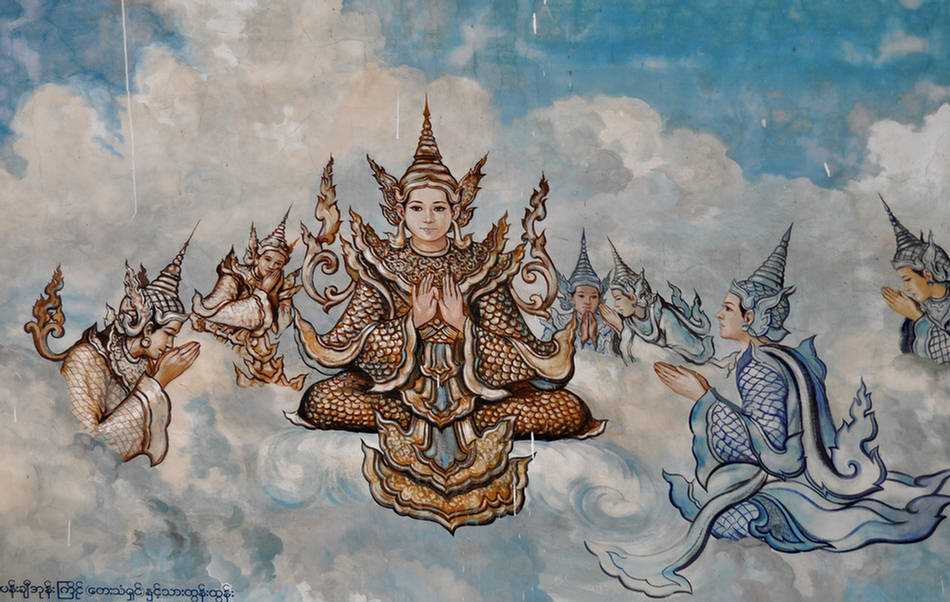
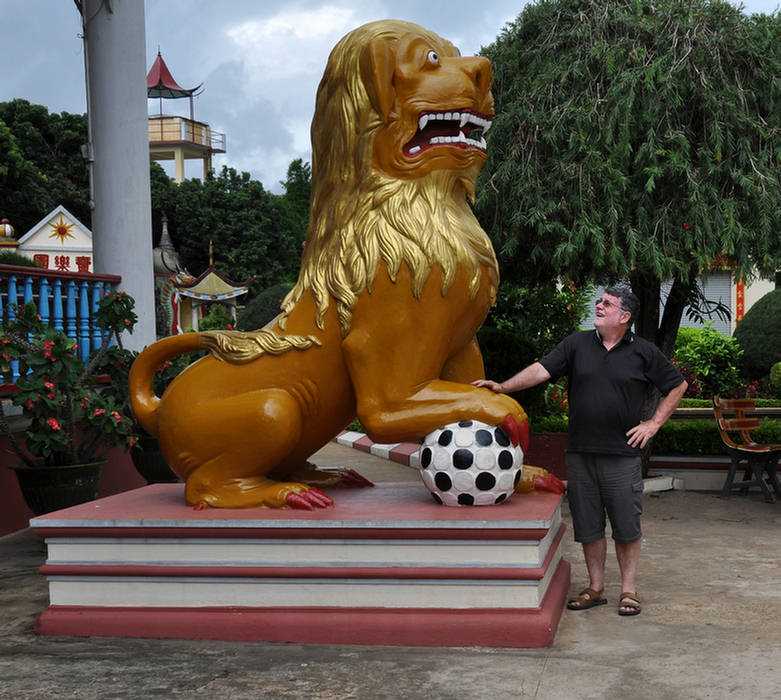
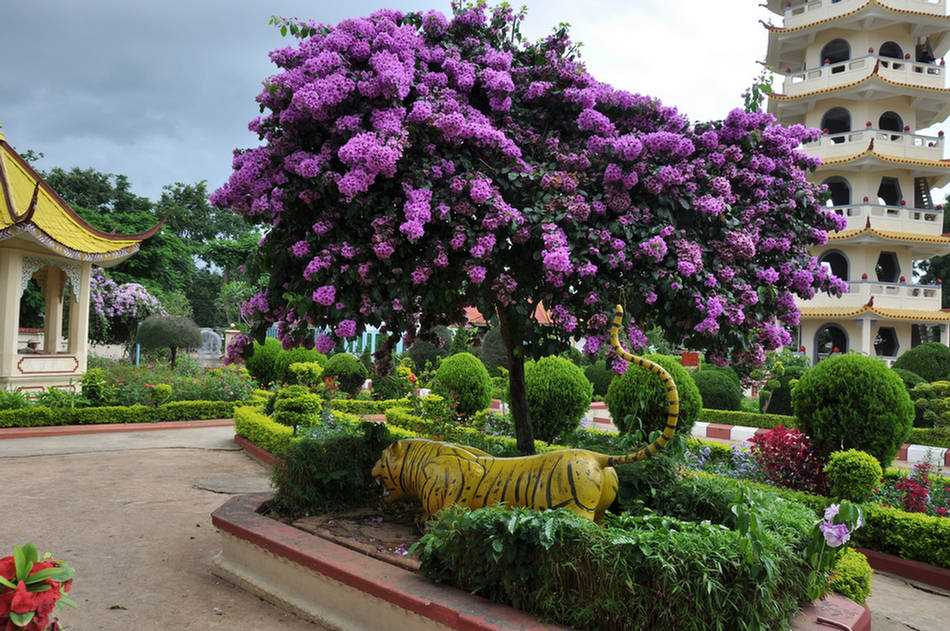
On the way back down the mountain to Mandalay, we stopped at a flower market.
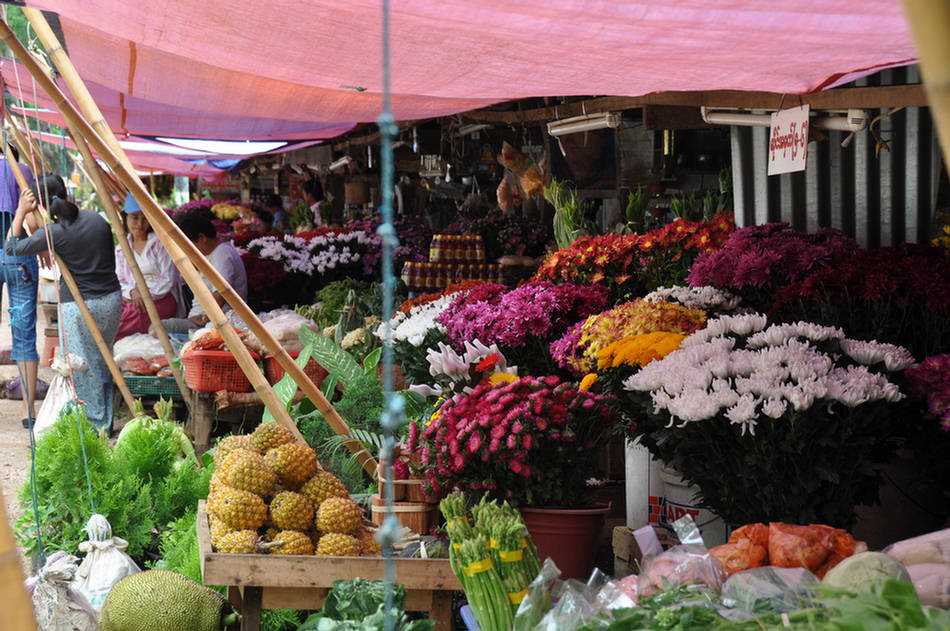
Mandalay Hill
240m high, Mandalay Hill has been a major pilgrimage site for 2 centuries.
There are 1729 steps to climb to the top.
Two gigantic leogryphs (stylised lion figures) stand guard at the southern and main approach at the foot of the hill.
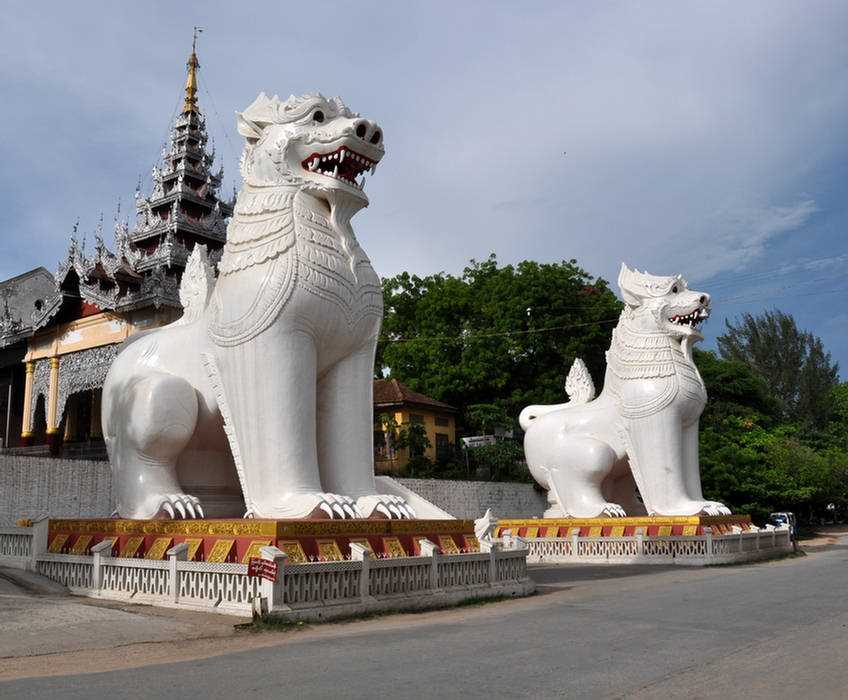
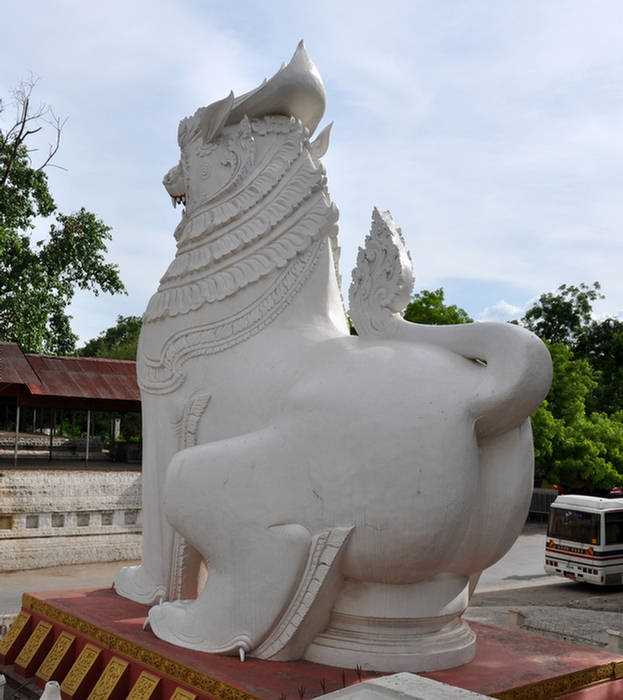
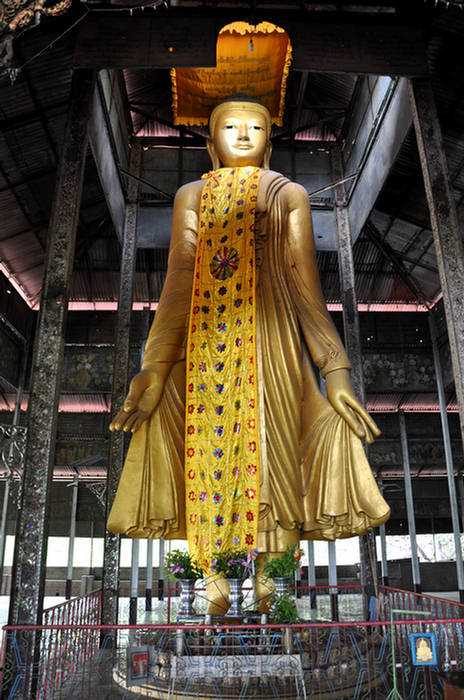
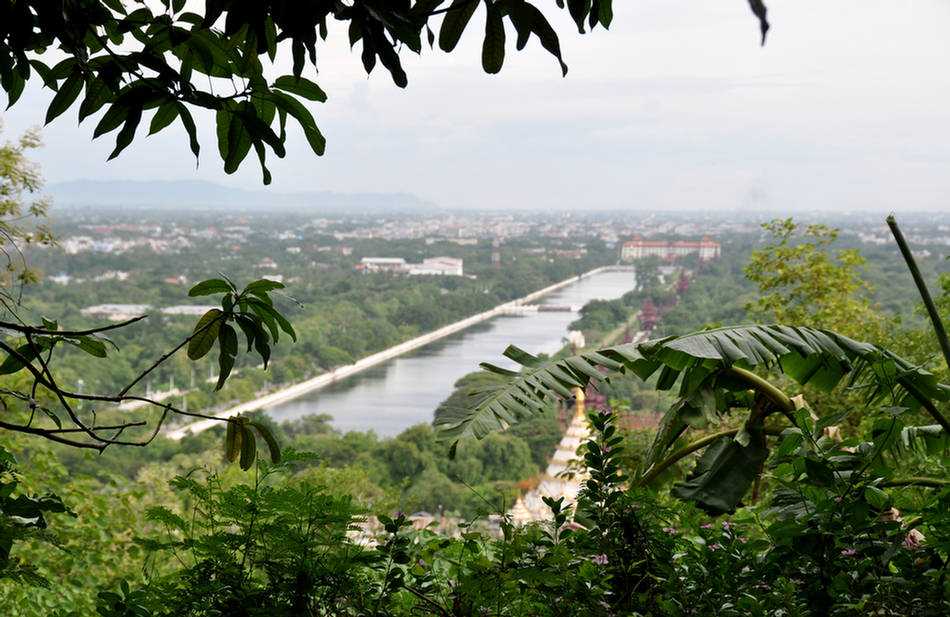
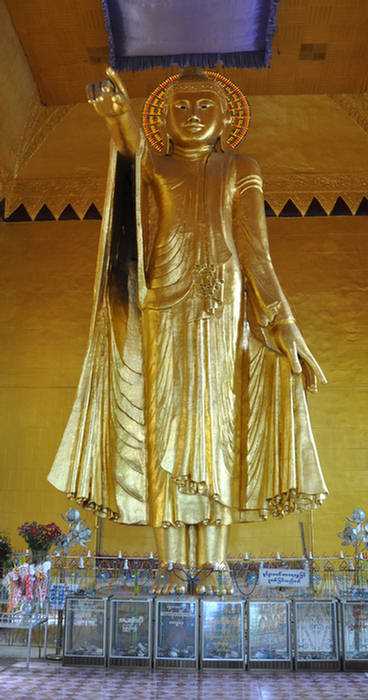
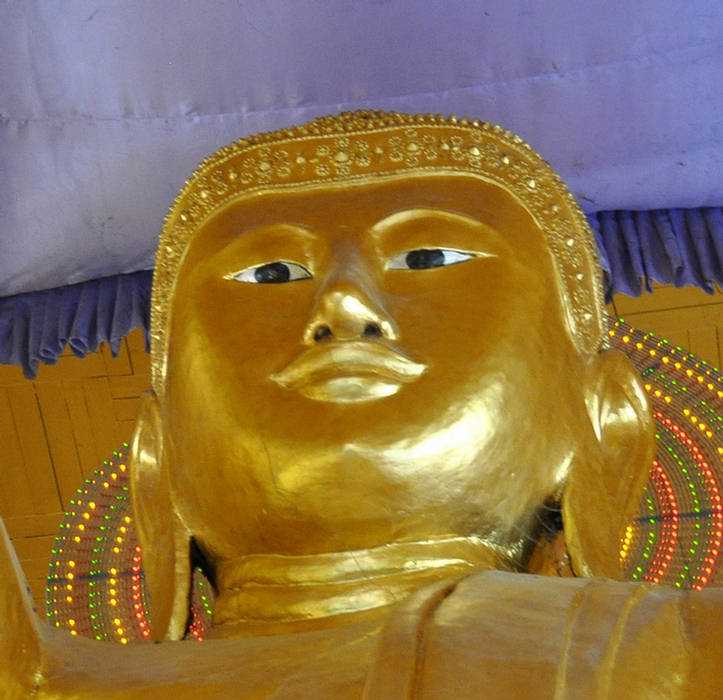
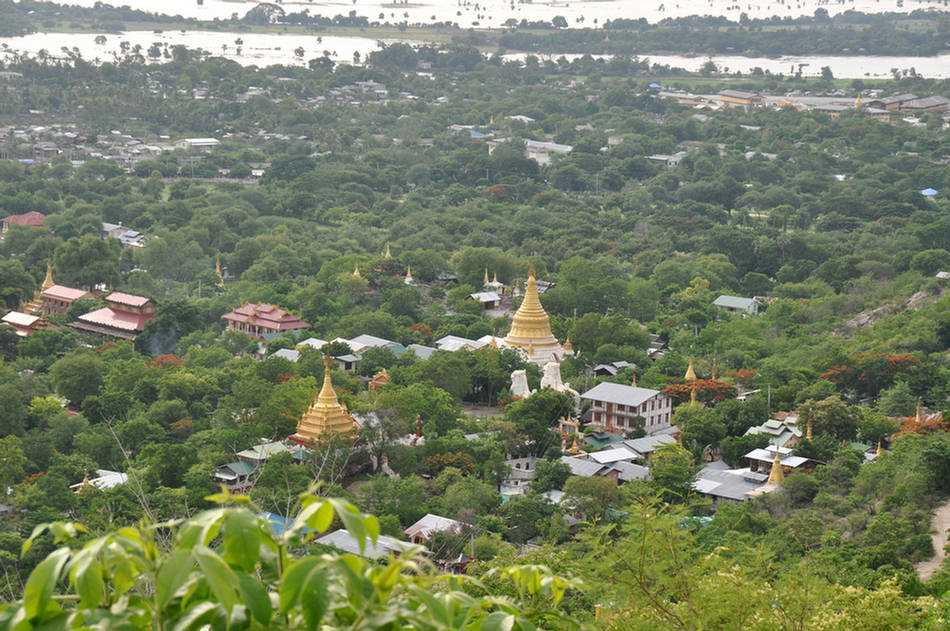
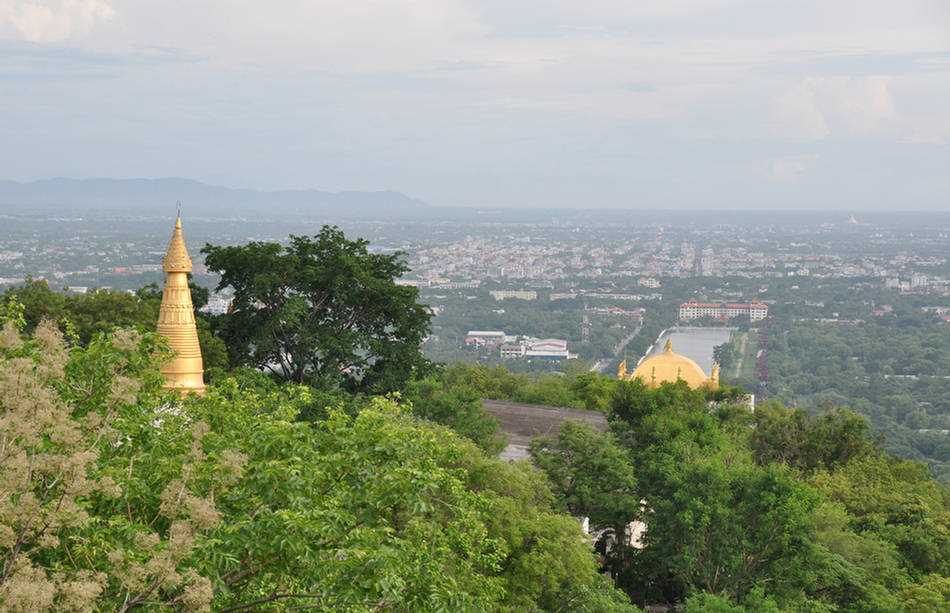
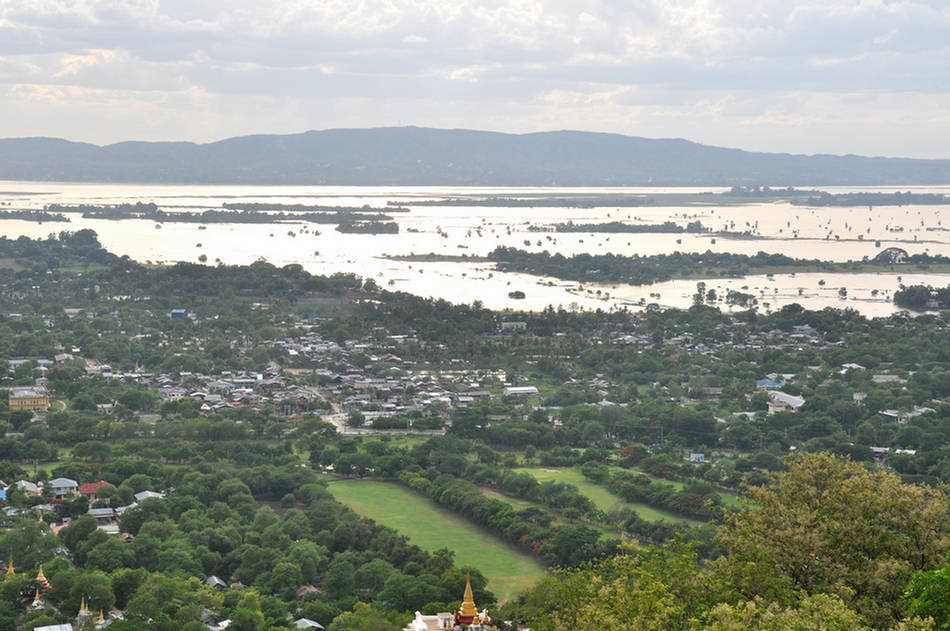
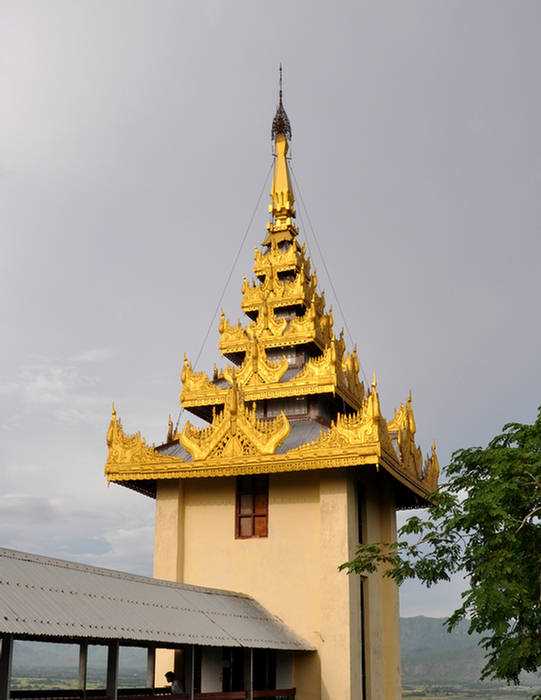
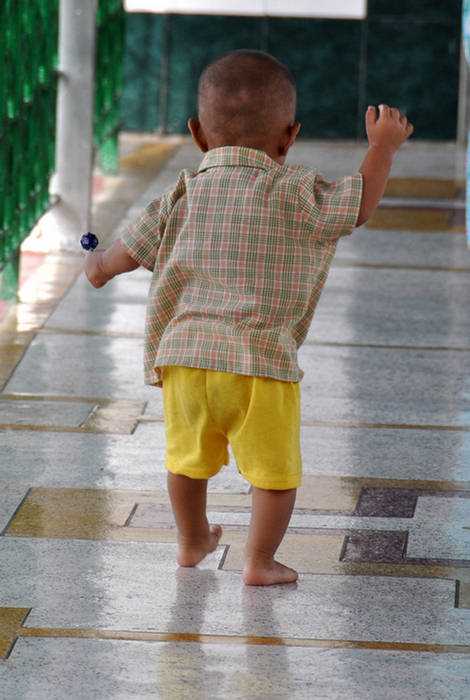
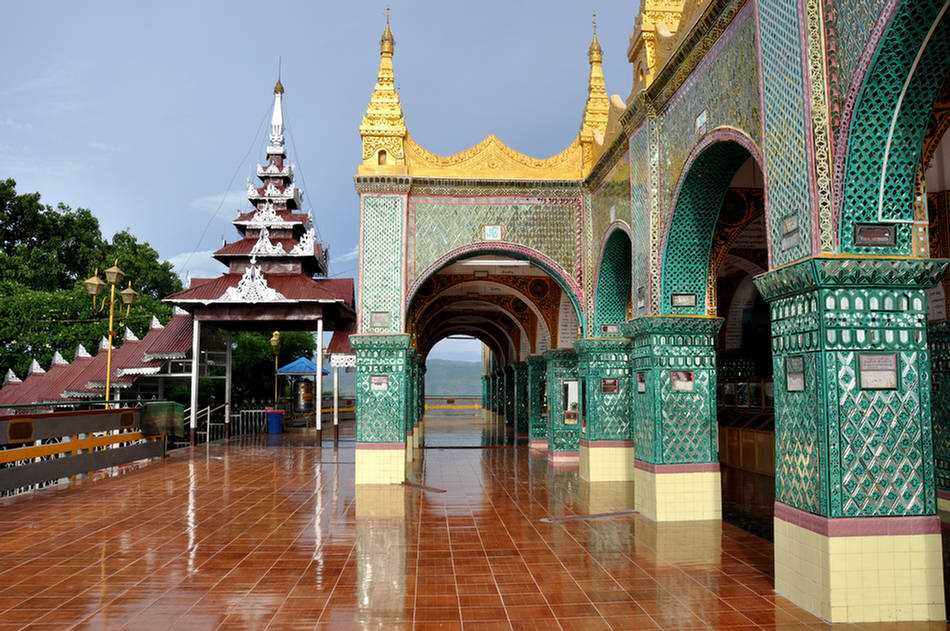
You can see the moat around the former Mandalay Palace in the distance.
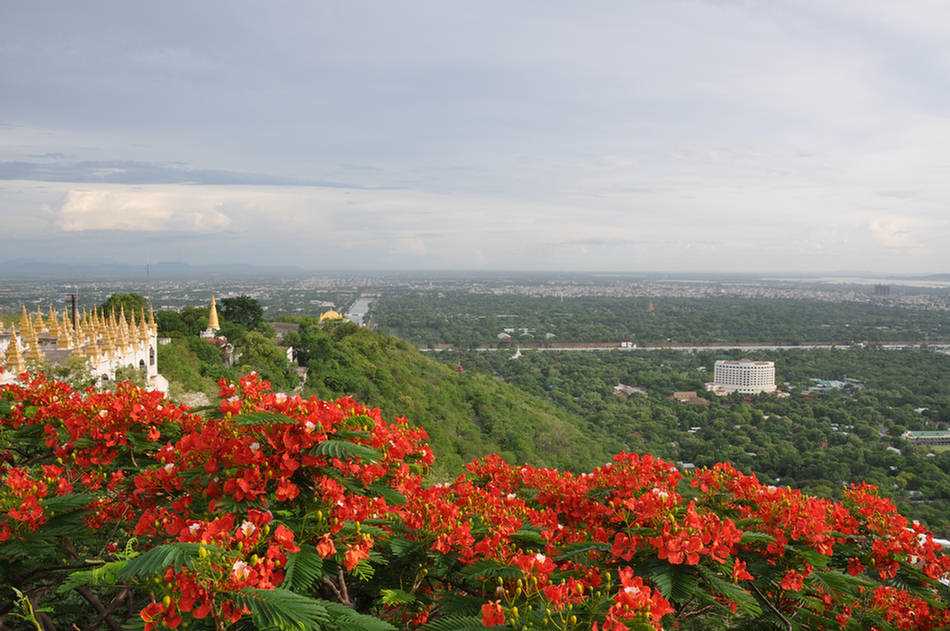
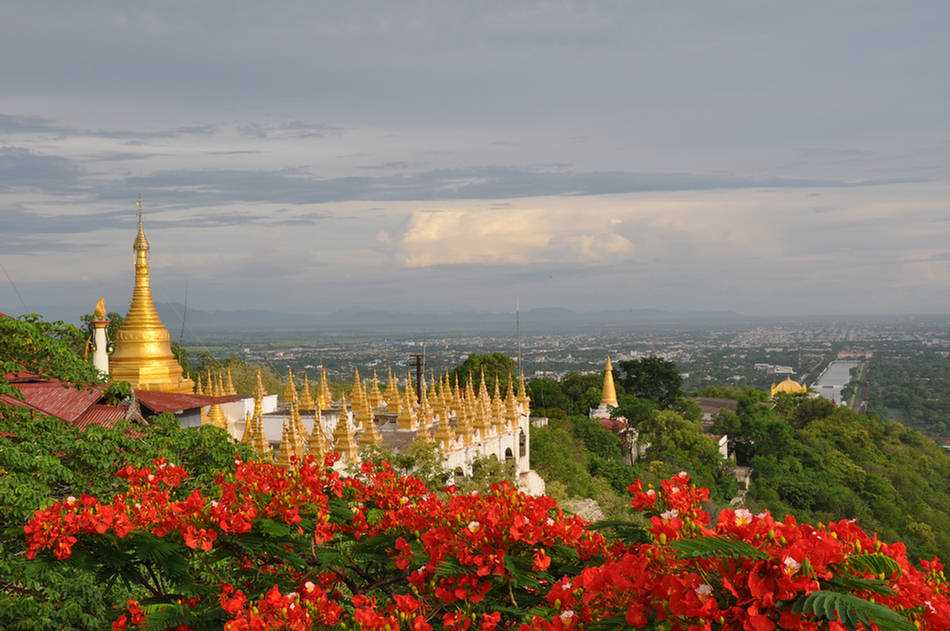
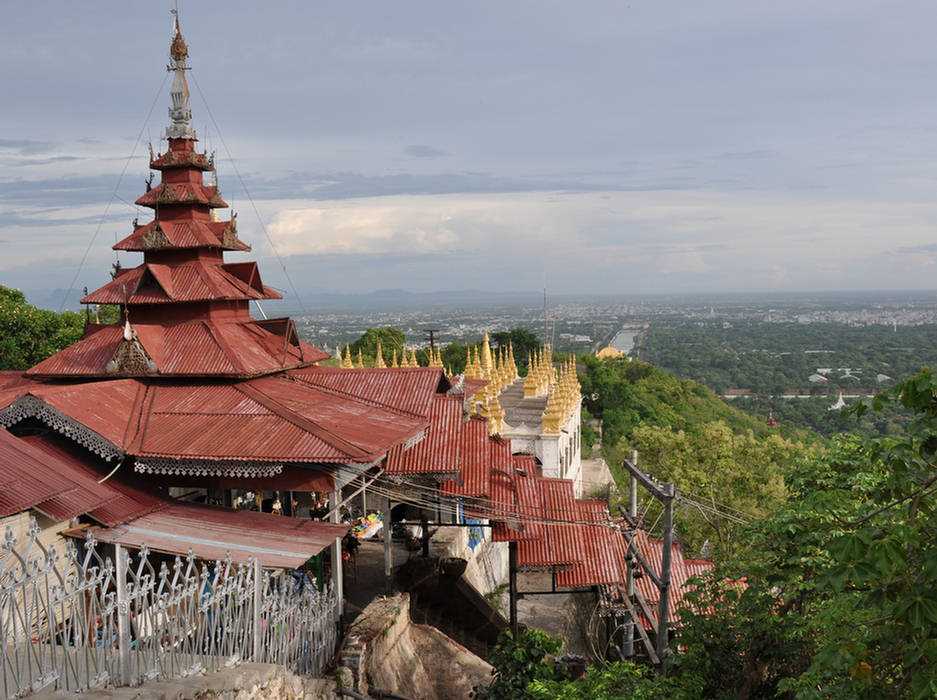
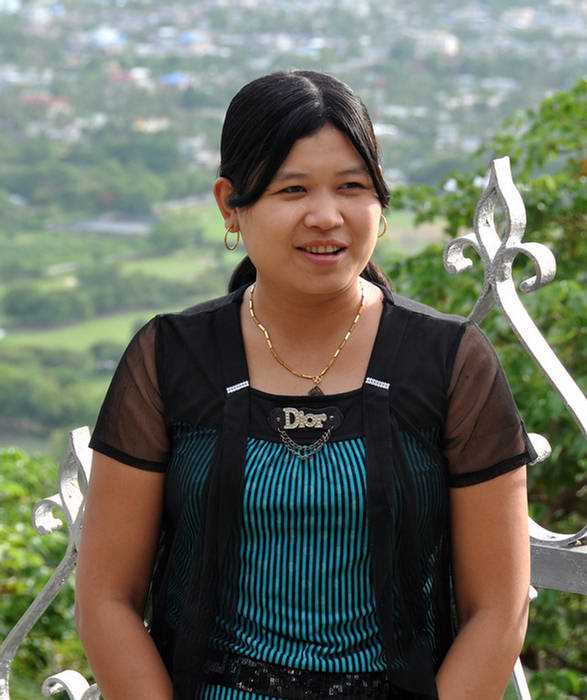
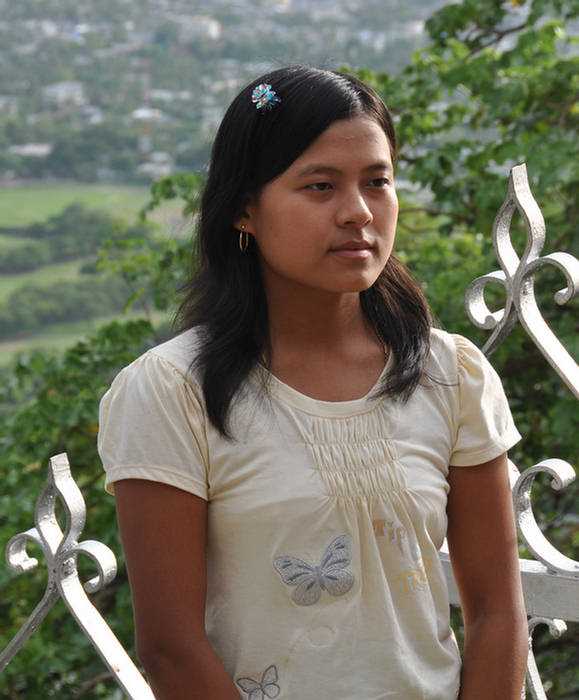
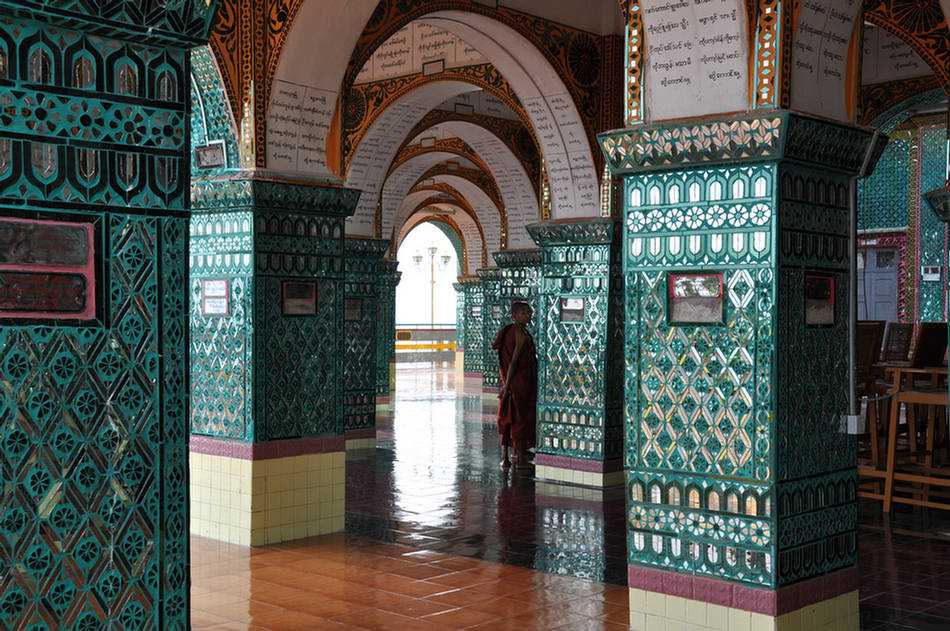
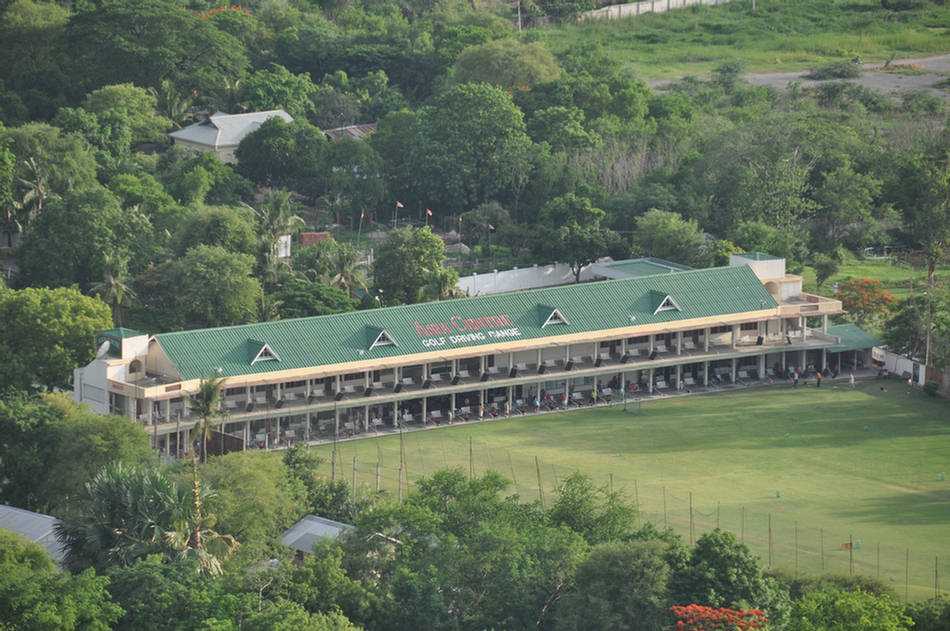
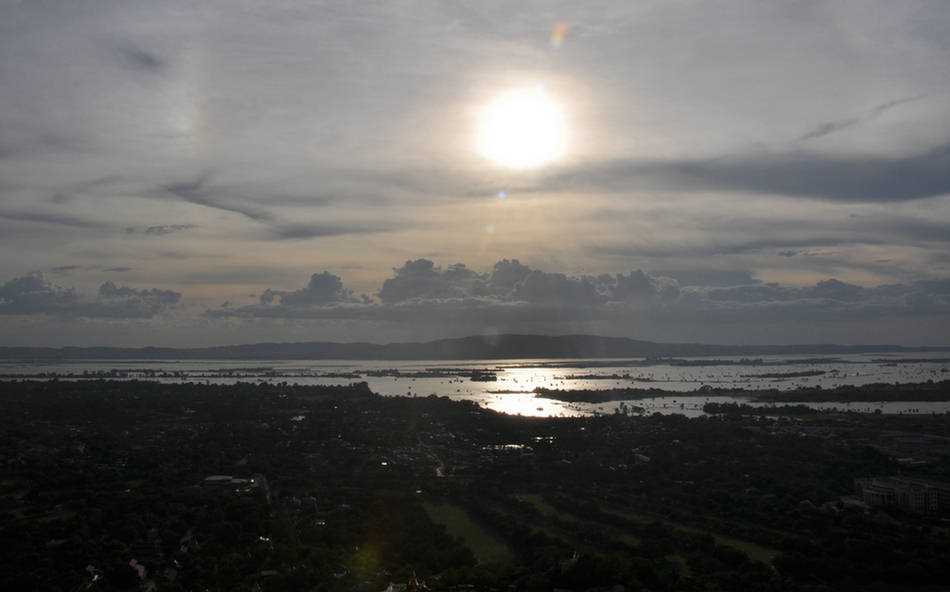
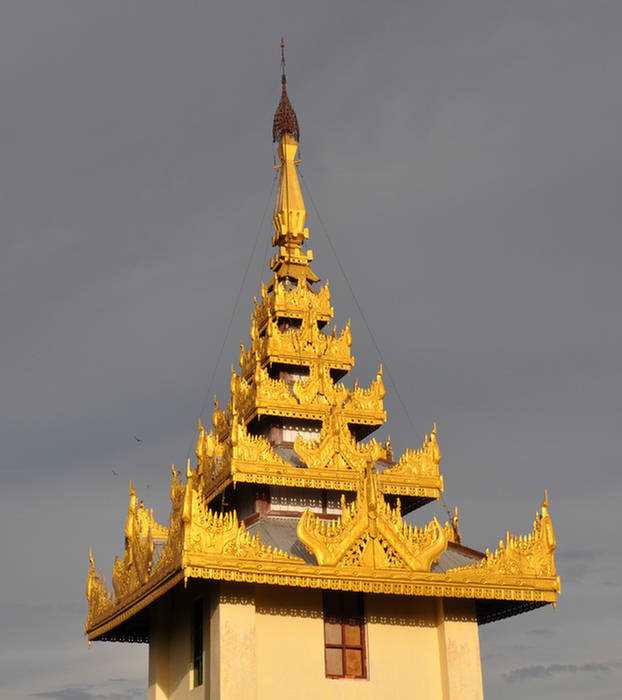
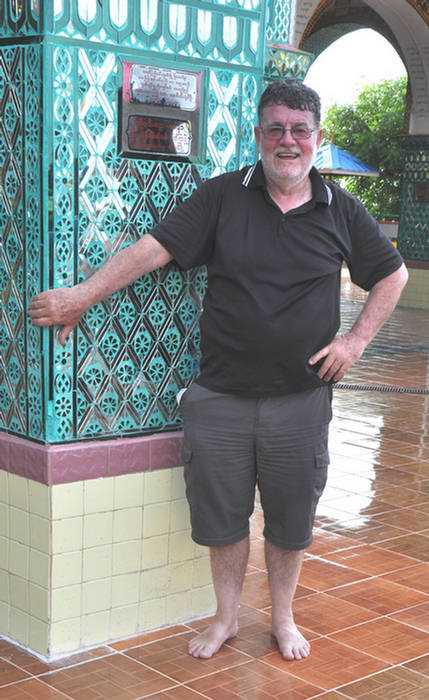
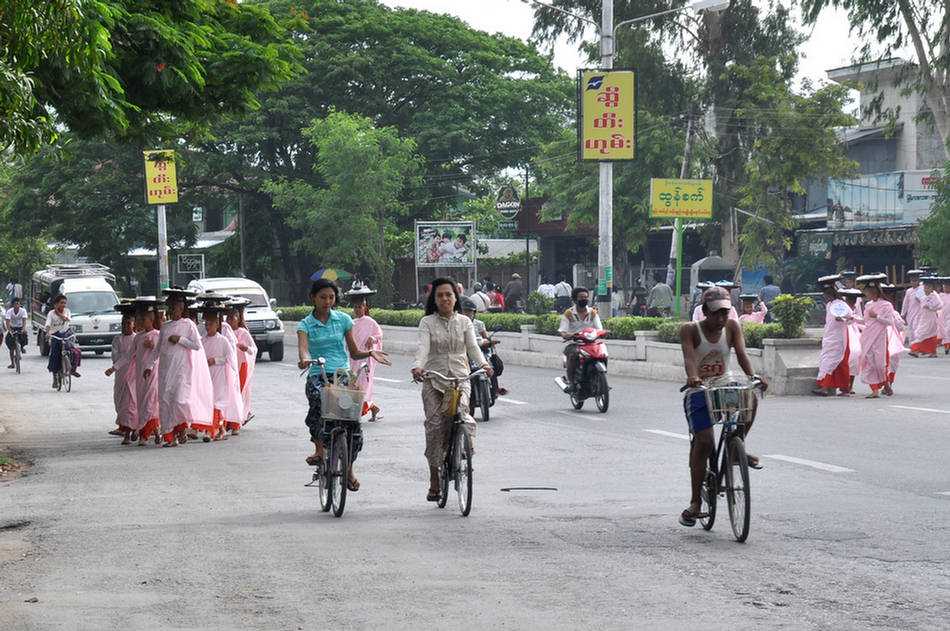
Buddhist Nuns
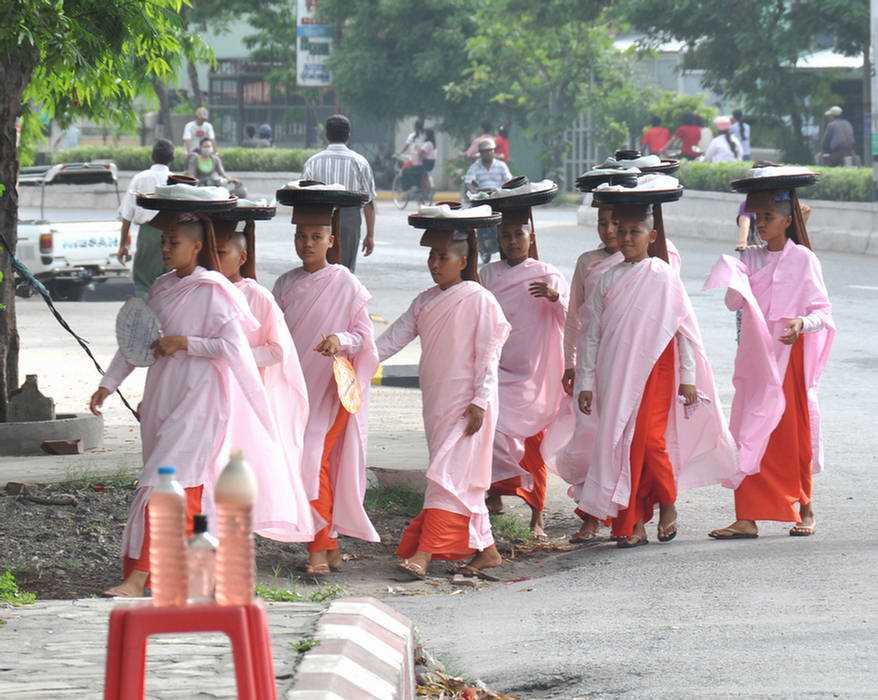
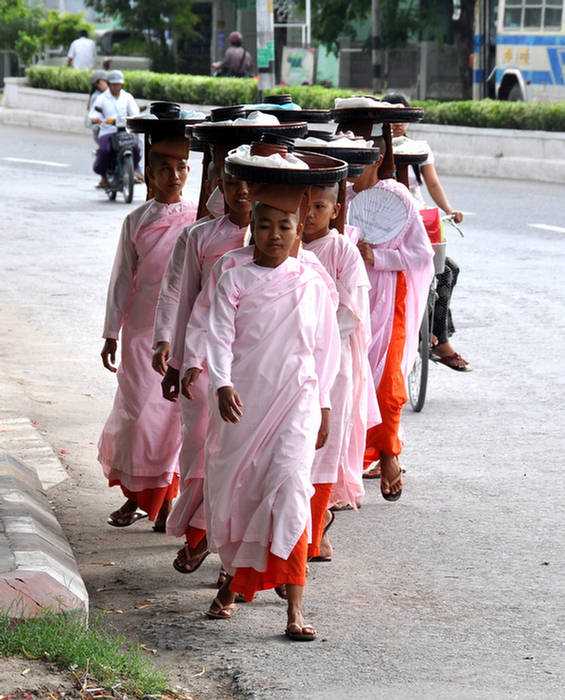
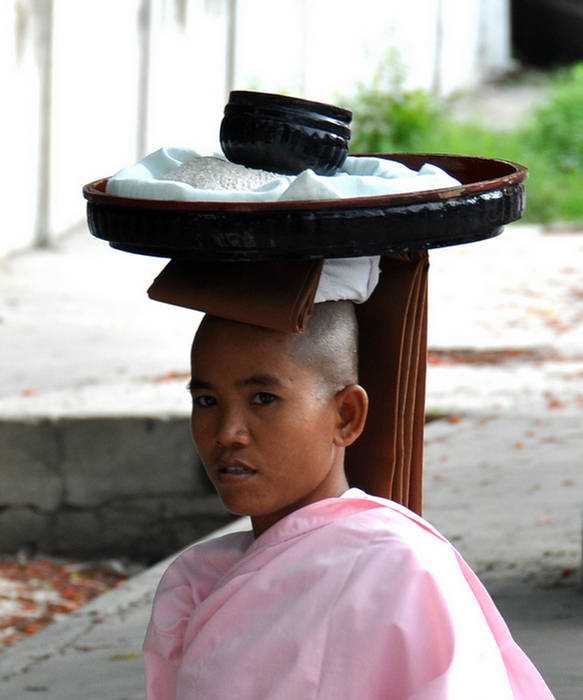
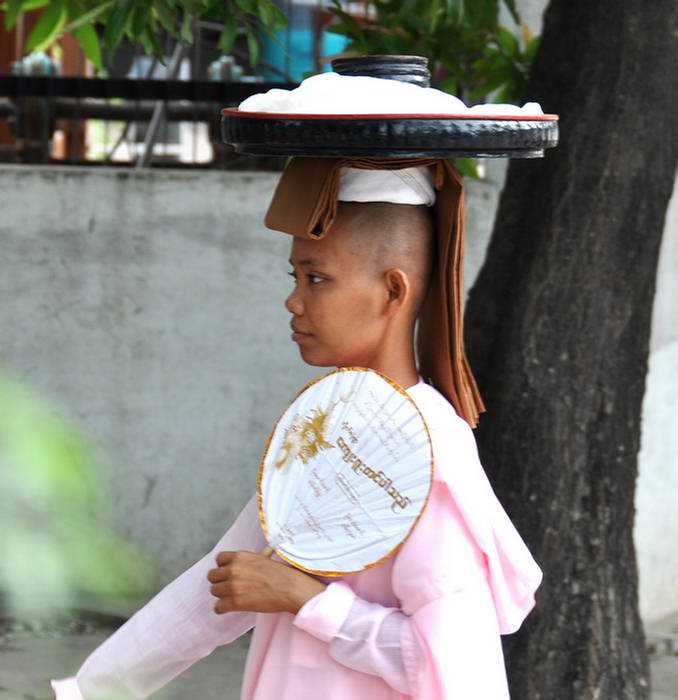
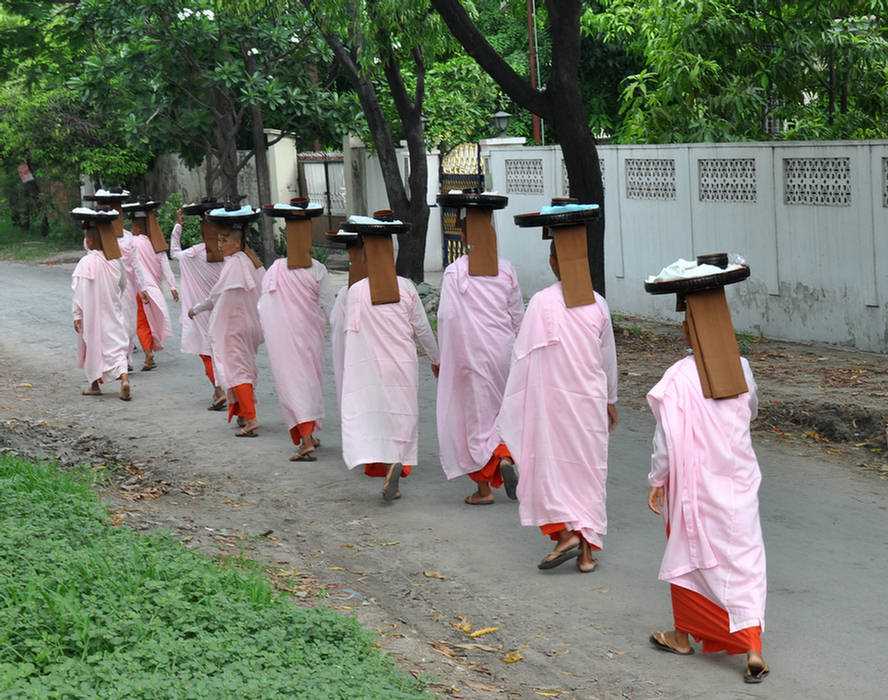
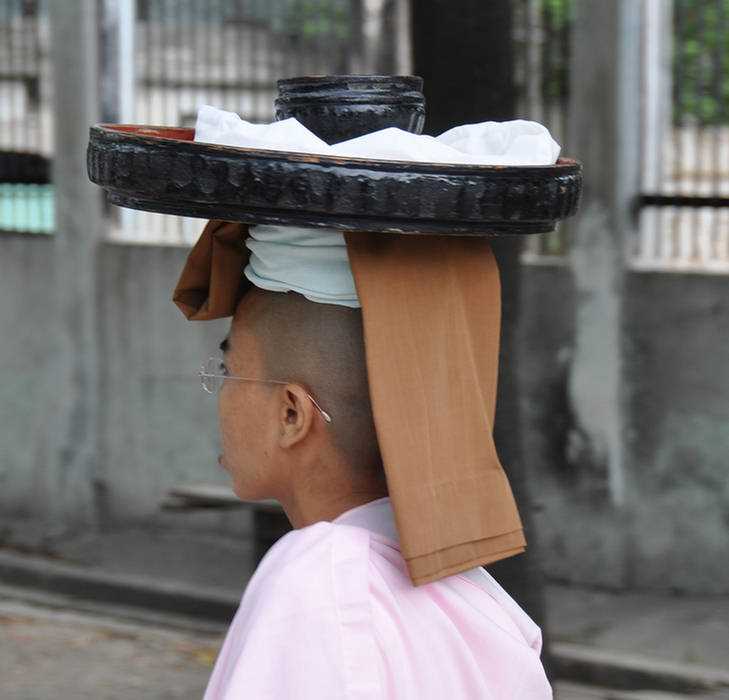
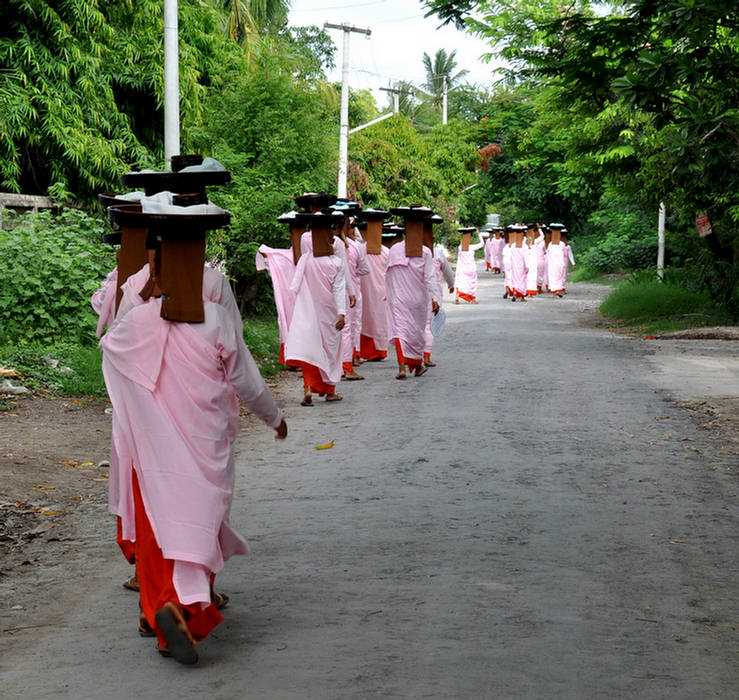
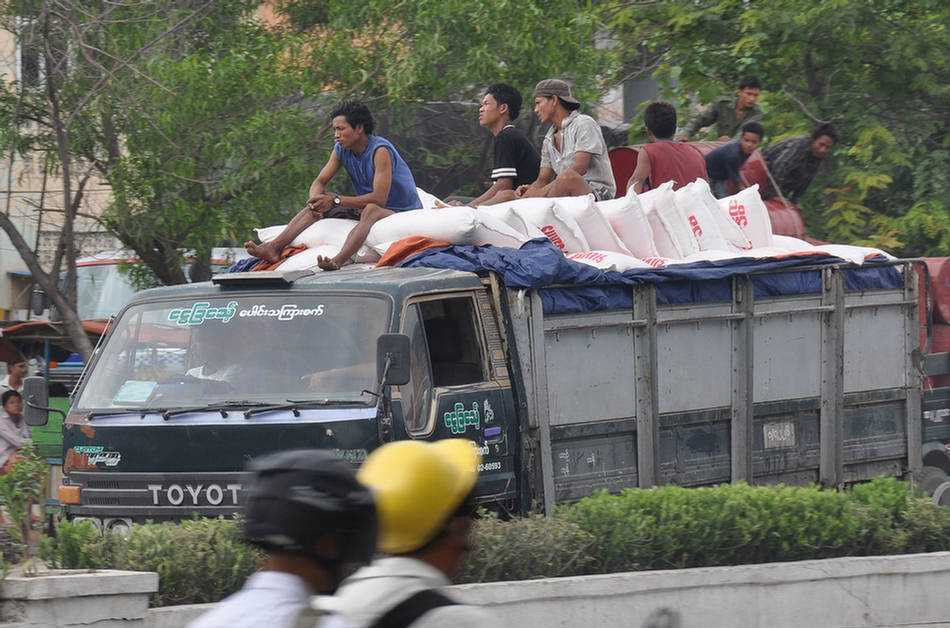
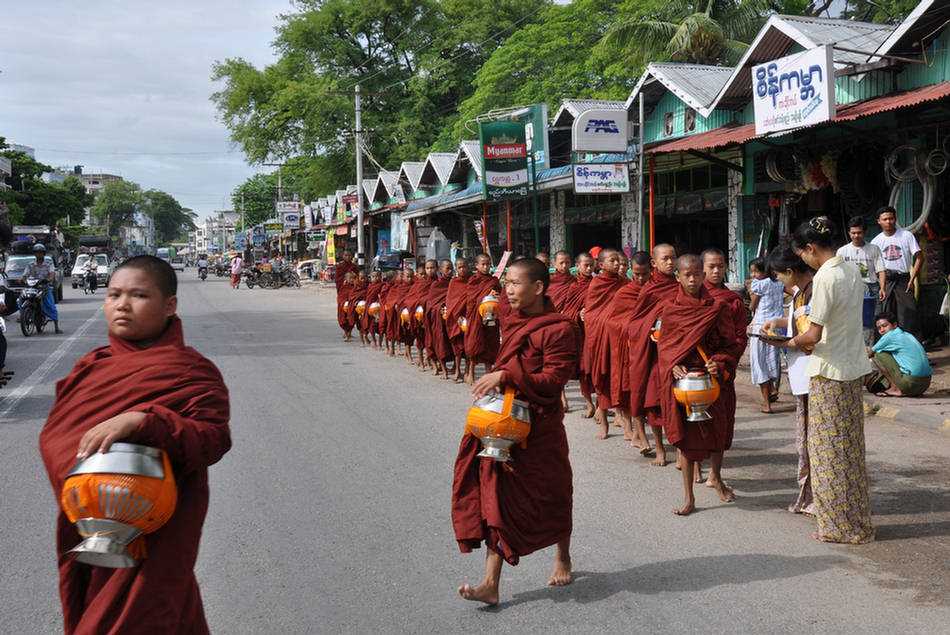
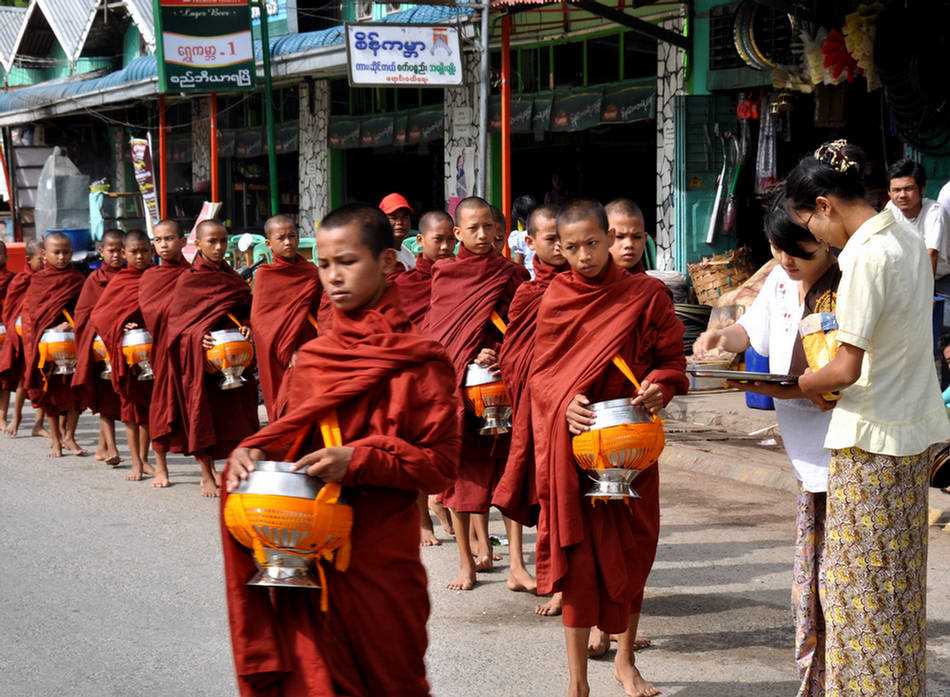
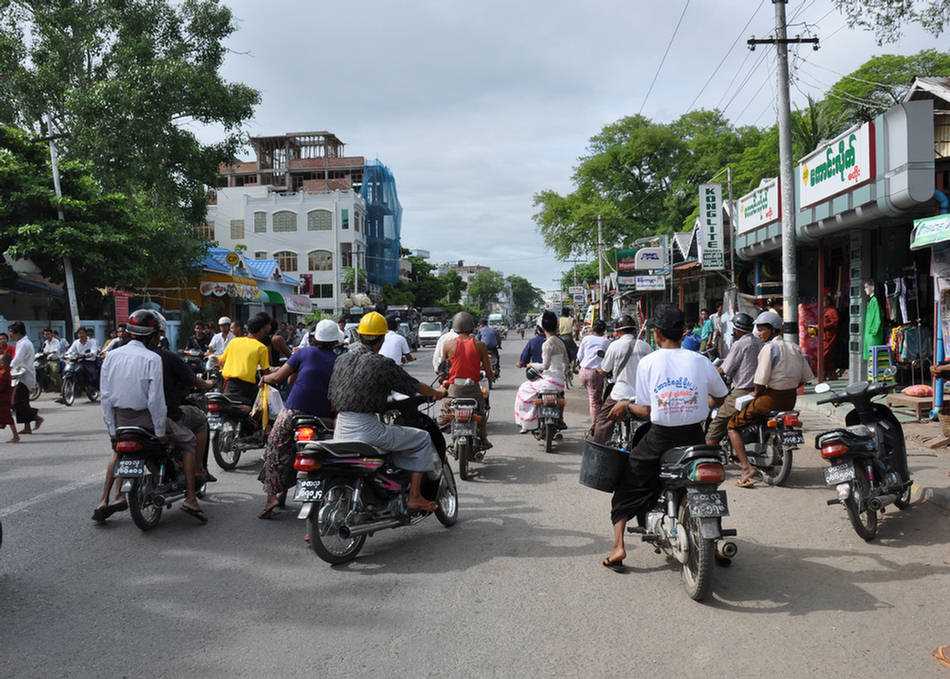
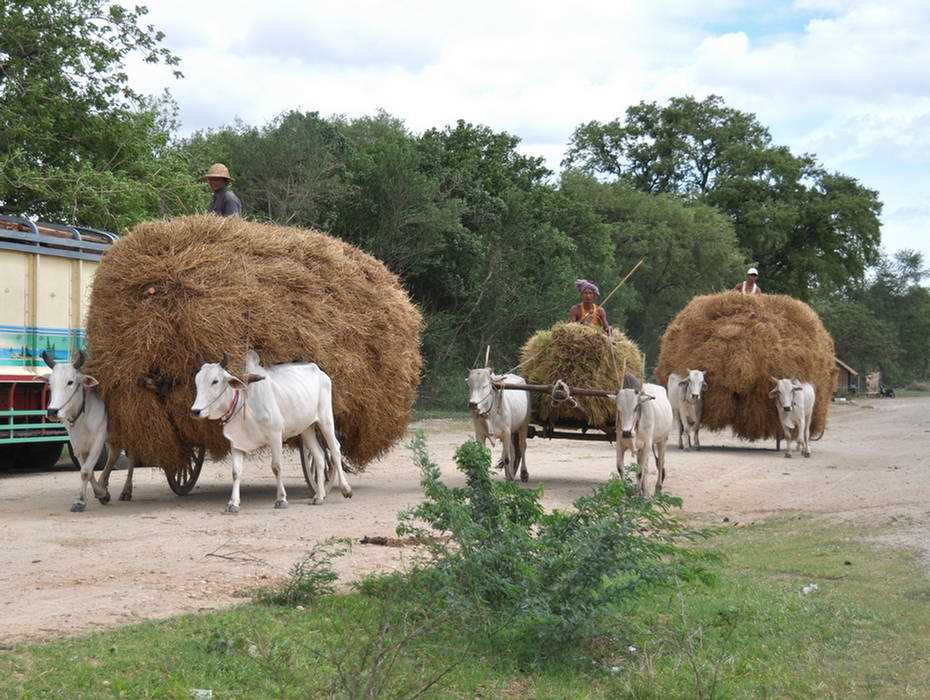
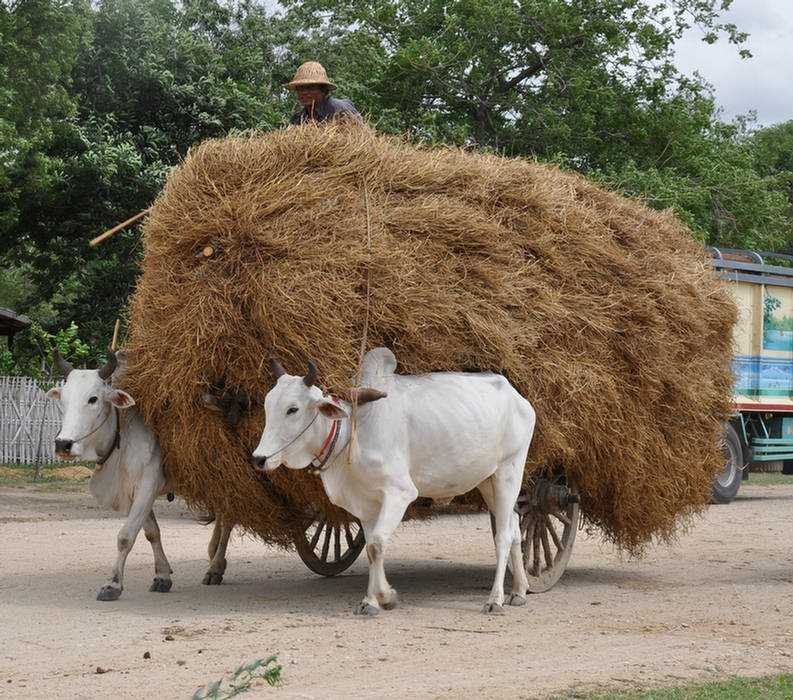
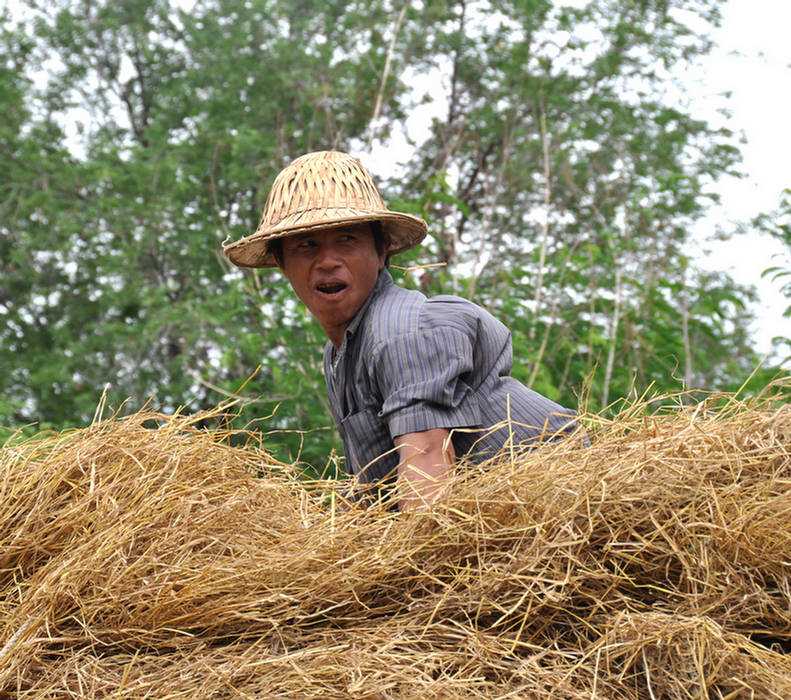
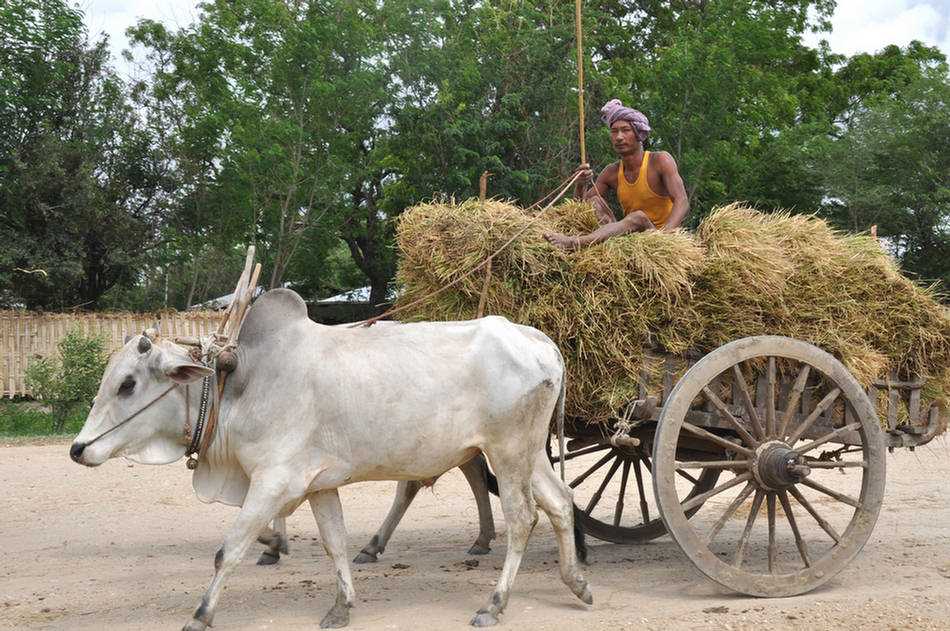
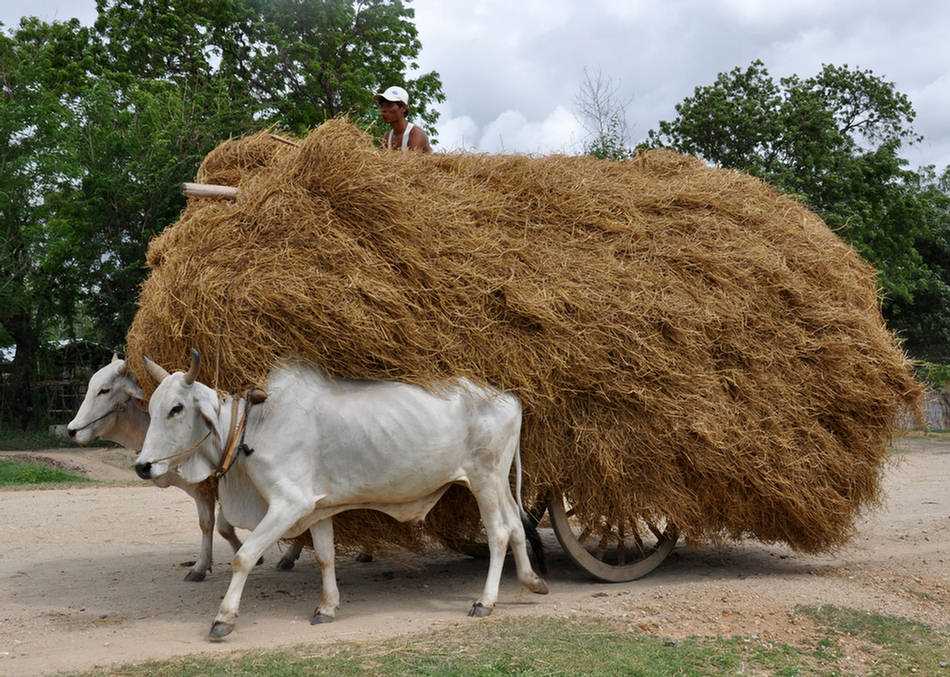
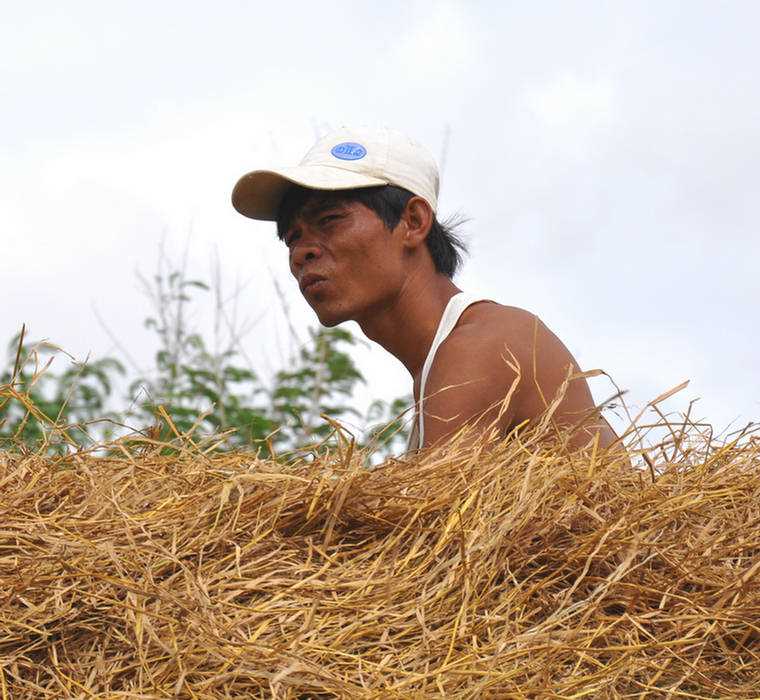
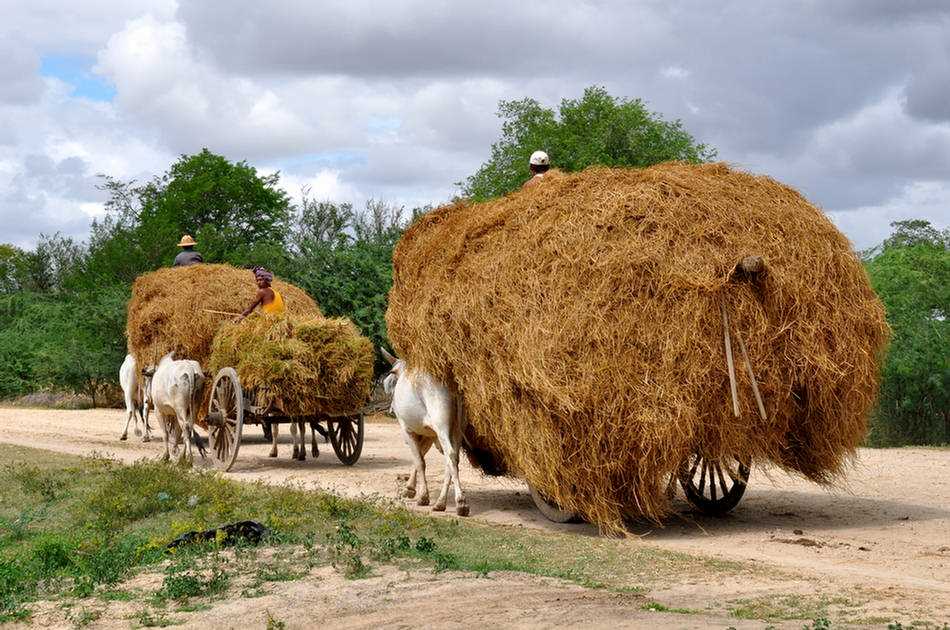
On the way from Mandalay to Bagan we had lunch at a roadside restaurant.
The family were proud of their children, who had graduated as engineers in Singapore.
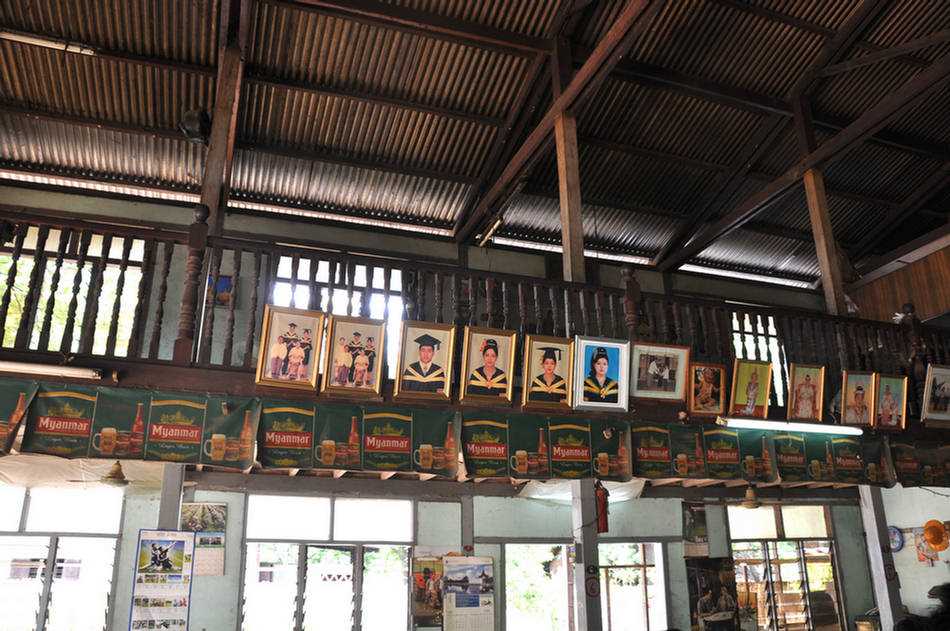
We had a 30 minute flight from Yangon to Mandalay.
Before checking into our hotel we had a cruise on the Irrawaddy River.
The Ayeyarwady River is the major river and most important commercial waterway in Myanmar.
It flows north-south through the country past former capitals, Mandalay and Bagan before emptying
through the Irrawaddy Delta into the Andaman Sea.
Note the hand-rail for our gang-plank.








An old reprobate taking it easy.





Mingun Pahtodawgyi
Mingun is about 11km north of Mandalay.
The construction of this massive unfinished Buddhist stupa was begun by King Bodawpaya in 1790.
Unfortunately when it had reached 50m, about a third of its intended height, he died, and construction stopped.
If it had been completed it would have been the highest Buddhist stupa in the world.
The remains are impressive, however, and claimed to be the largest pile of bricks in the world.






This model shows what the stupa would have looked like if it had been completed.
As you can see the rectangular base had almost been completed.



The were good views from the top.



An old reprobate on the top.

Once there were 2 giant stone lions guarding the entrance to the stupa from the river.
They were almost destroyed in an earthquake in 1839 which also caused damage to the stupa.
This picture shows part of one of the lion's paw.








Ringing the world's largest ringable bell.









Beating gold into gold-leaf.
Pilgrims use it to gild Buddhist statues in the temples, hoping for good fortune.


You can see the accumulation of gold on this Buddha.

Carving stone Buddhas on the street.


For a price you can have your face carved on one.

Tapestry.

Carved teak.


School children.

For a large price you could have a bronze Buddha of yourself cast.


U-Bin Bridge
Claimed to be the world's longest wooden bridge, this 200 year old bridge is 1.2km long.
It is a pleasant place to watch the sun set.













Some of the original 984 teak posts have been replaced by concrete.












"World's Largest Book"
In the grounds of Kuthodaw Pagoda the Tipitaka Pali canon of Theravada Buddhism
(the "Buddhist Bible") is inscribed on 729 double-sided stone tablets.
Each tablet is housed in its own pagoda.

Work began in 1860 and the site was open to the public in 1868.


In 1900, a copy of the text on the slabs was printed.
There were 38 volumes, each of about 400 pages.




The Mandalay Palace was the last palace of the last Burmese Monarchy.
It occupied a 2km by 2km area in the centre of Mandalay.
It was a walled fort surrounded by a 64m wide moat.
The palace was constructed, between 1857 and 1859 as part of King Mindon's
founding of the new royal capital city of Mandalay.

In 1885 the British entered the palace and captured the royal family,
officially ending the Third Anglo-Burmese War.
The British looted the palace, and turned the palace compound into Fort Dufferin.
It was occupied by the Japanese during World War 2 and most of it was destroyed by Allied bombing.
This is a replica of part of the palace which was built in the 1990s.


Sandamuni Pagoda, which was constructed from 1874, bears a resemblance to the nearby Kuthodaw Pagoda
because of the large number of slender whitewashed ancillary stupas.
The stupas enclose marble slabs which have commentaries about the Tripitaka (the "Buddhist Bible") on them.







Pyin Oo Lwin
To escape the summer heat, the British established a hill station in the mountains that they called Maymyo.
About 70km east of Mandalay, it was the summer capital of British Burma.
The Burmese regime has renamed it Pyin Oo Lwin.
Many fine colonial buildings remain in the town.



A 106 year old hotel.








Only in December?





Jackfruit.

At this Buddhist temple in Pyin U Lwin they were studying traditional medicine.







On the way back down the mountain to Mandalay, we stopped at a flower market.

Mandalay Hill
240m high, Mandalay Hill has been a major pilgrimage site for 2 centuries.
There are 1729 steps to climb to the top.
Two gigantic leogryphs (stylised lion figures) stand guard at the southern and main approach at the foot of the hill.












You can see the moat around the former Mandalay Palace in the distance.











Buddhist Nuns


















On the way from Mandalay to Bagan we had lunch at a roadside restaurant.
The family were proud of their children, who had graduated as engineers in Singapore.
